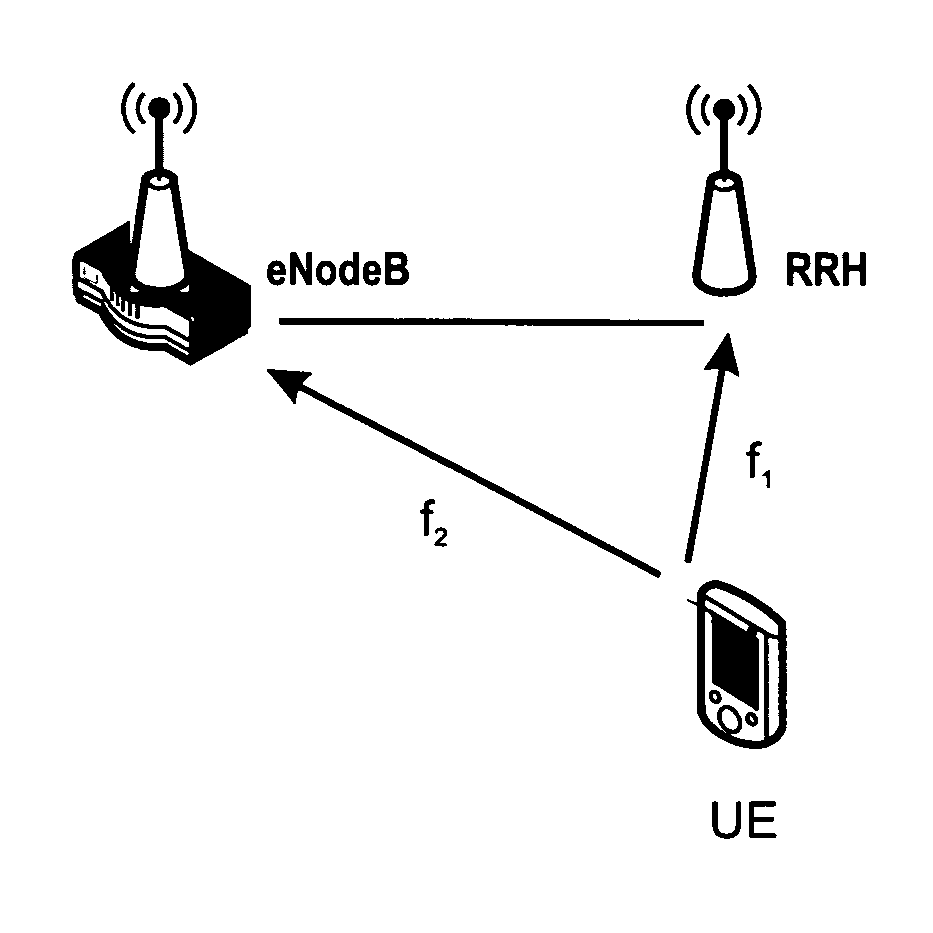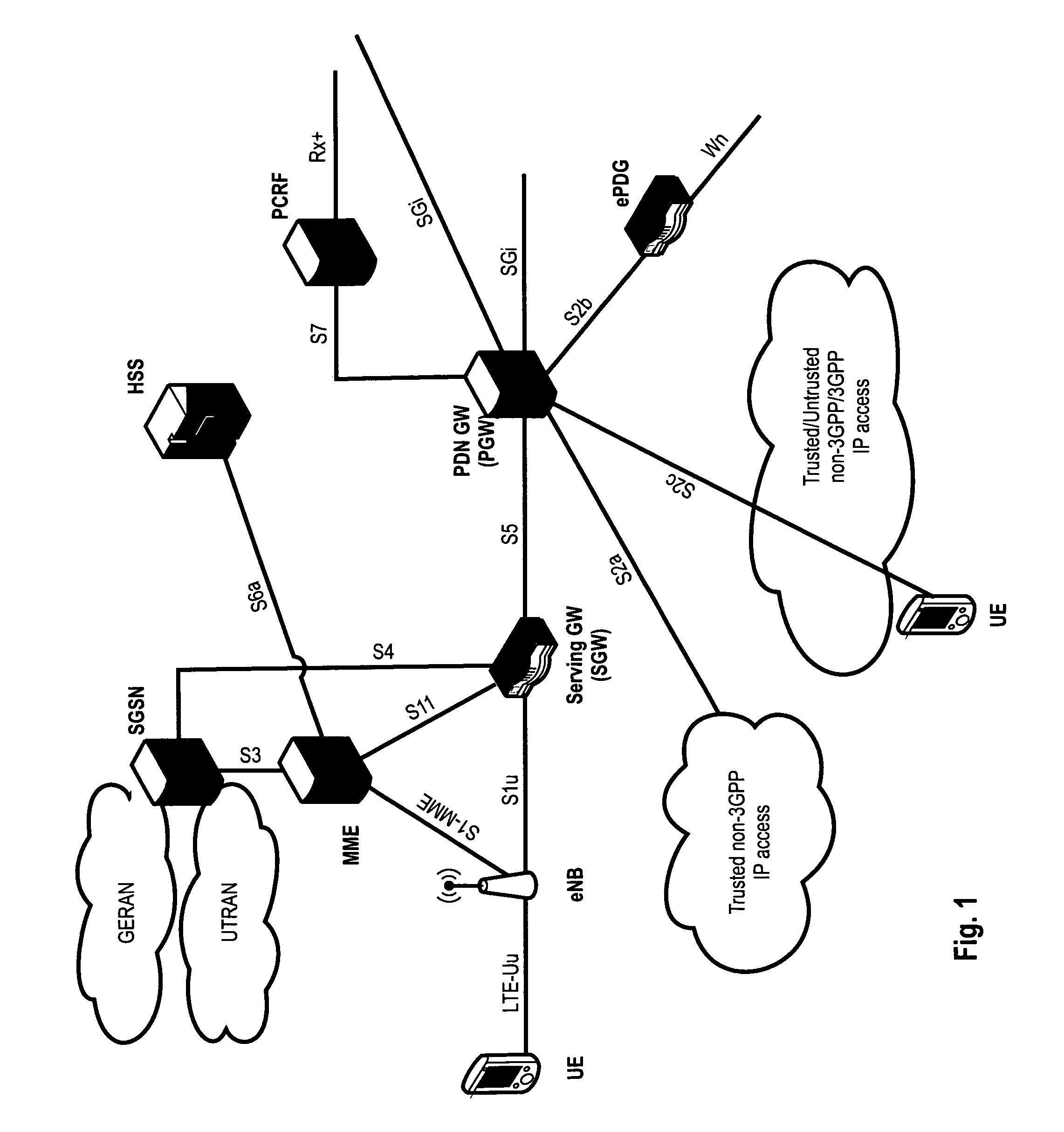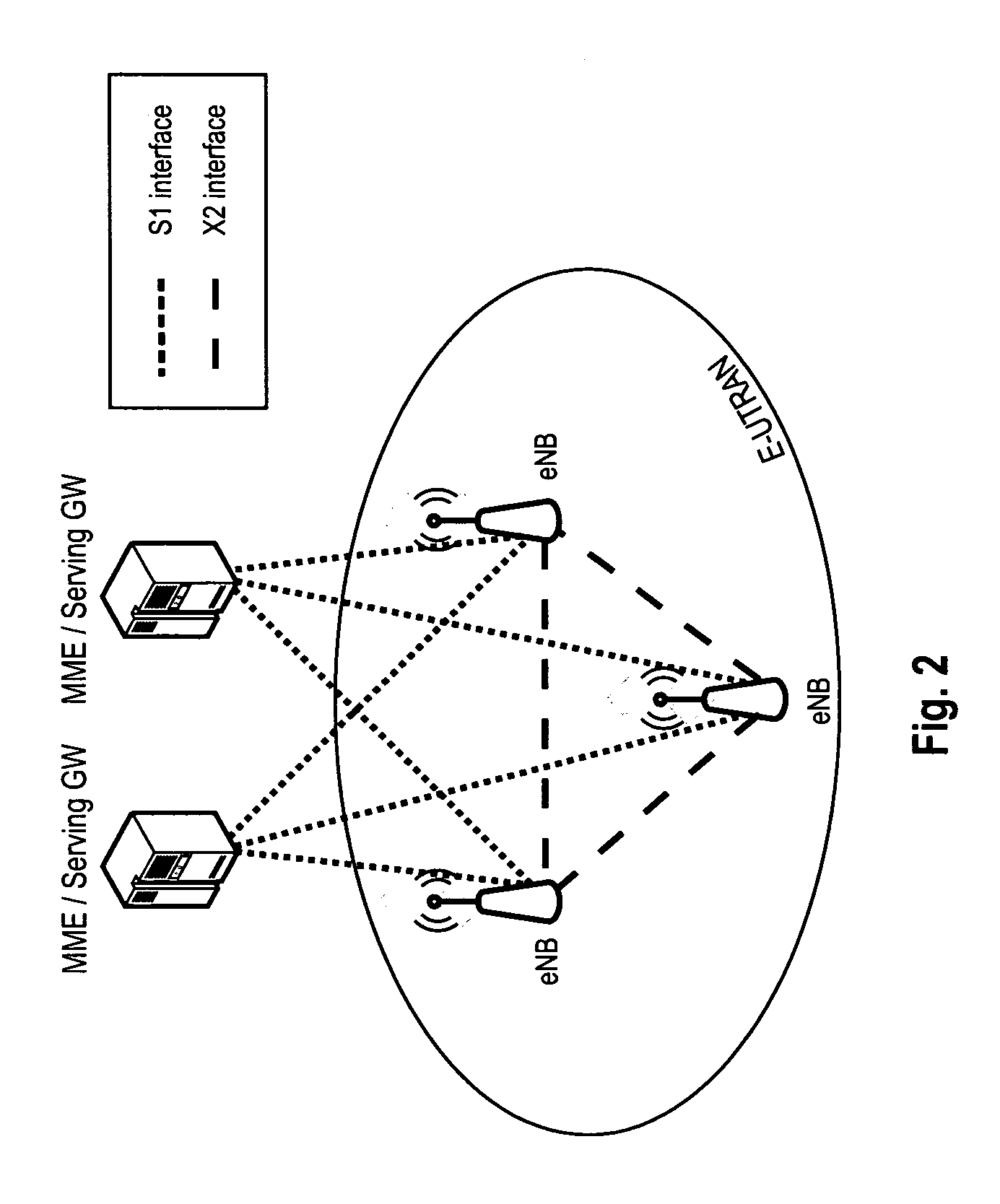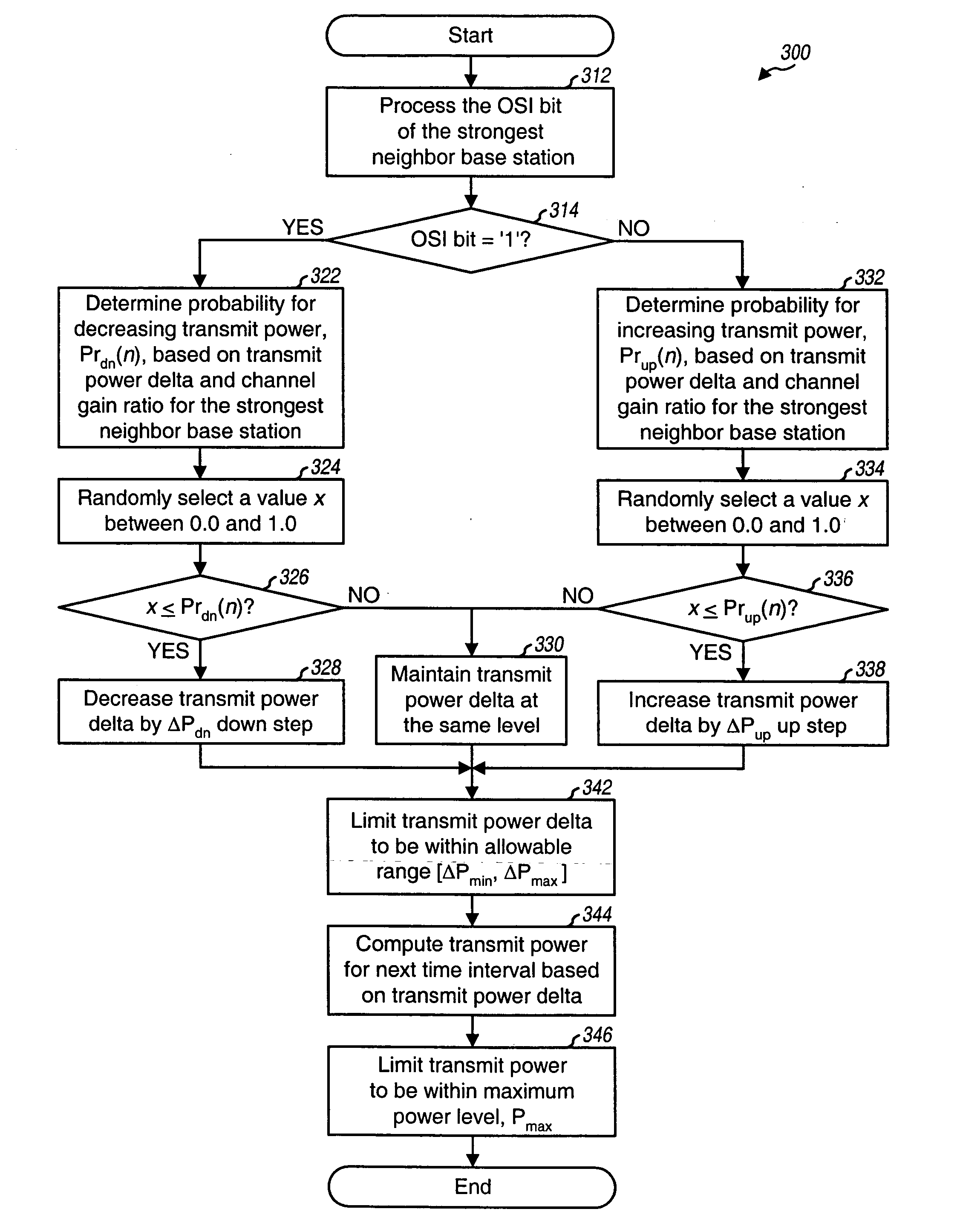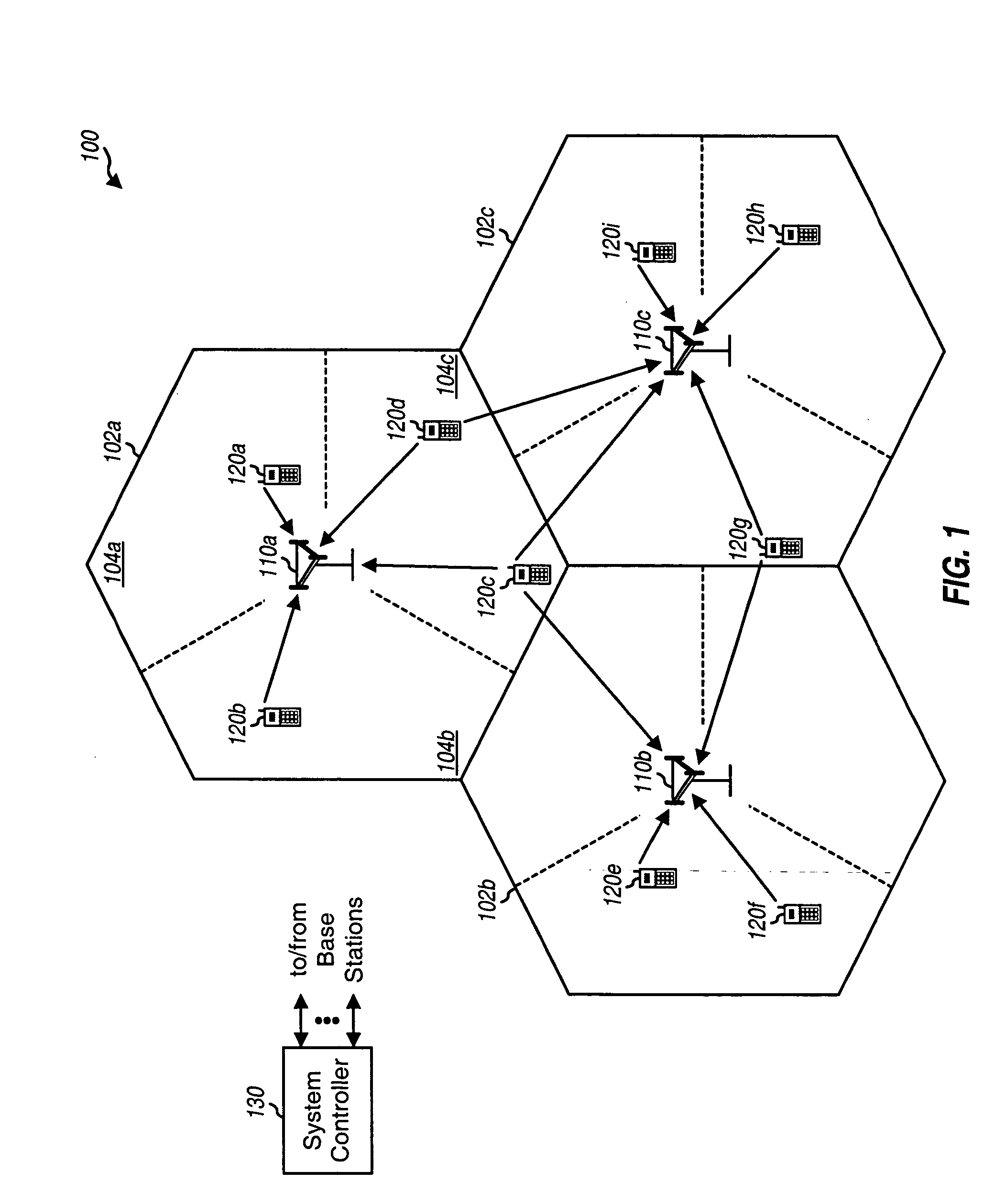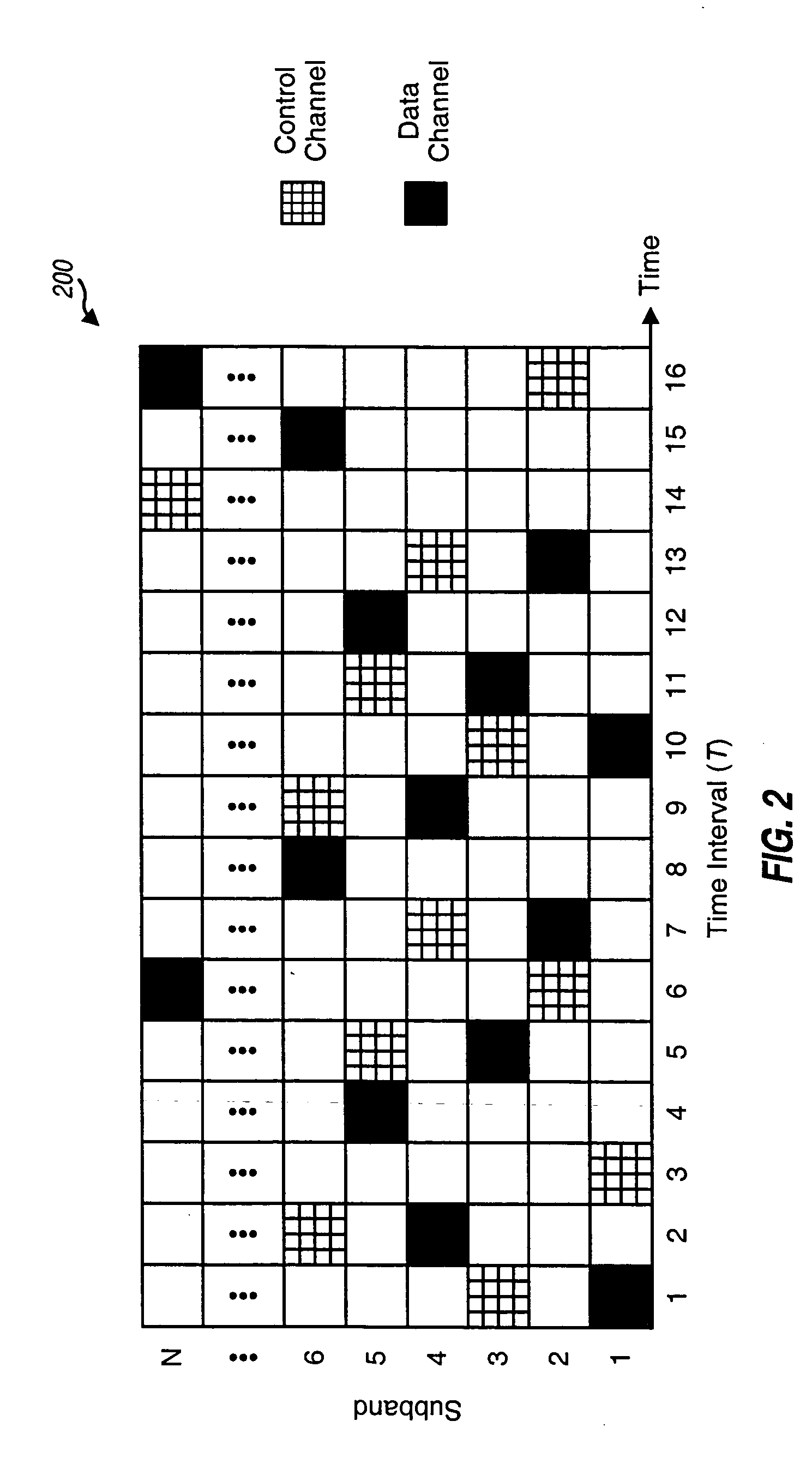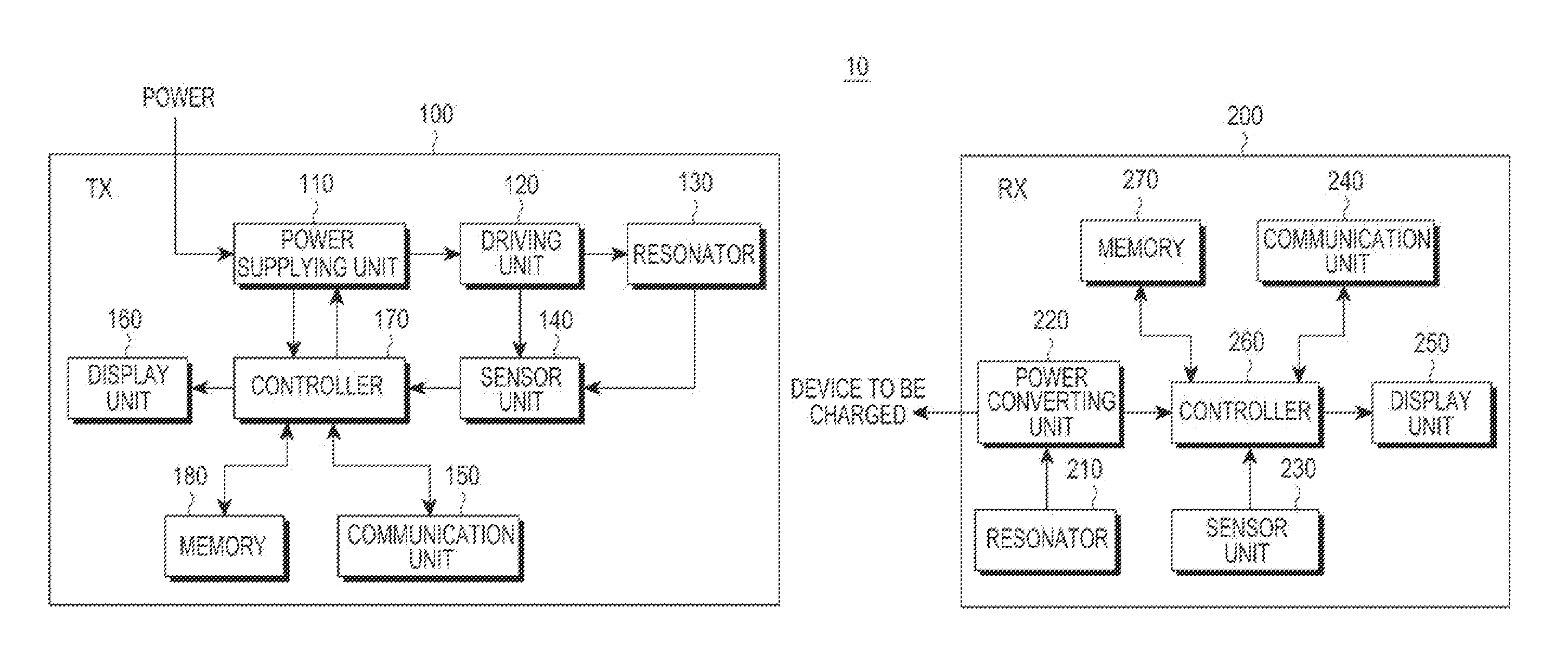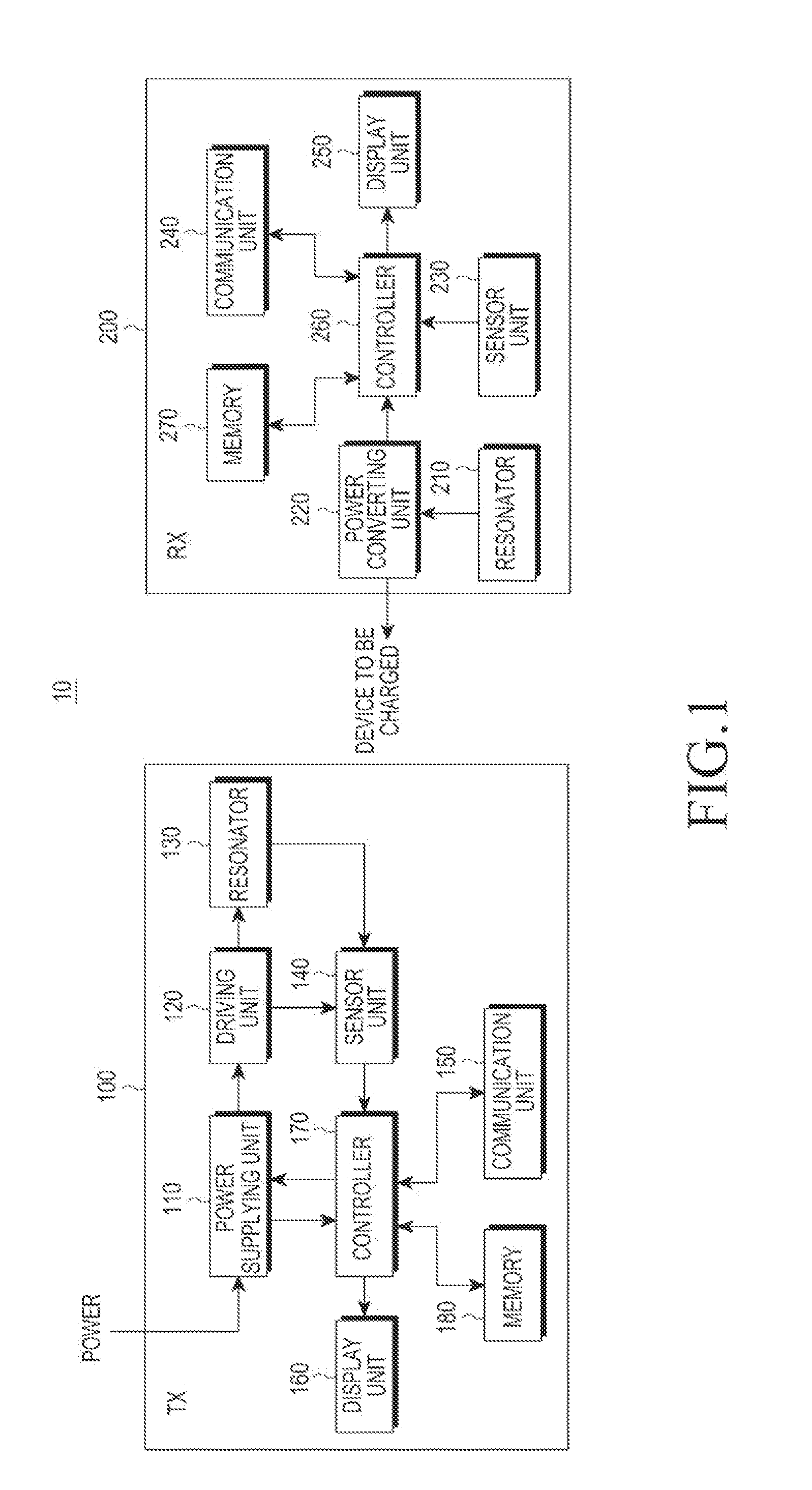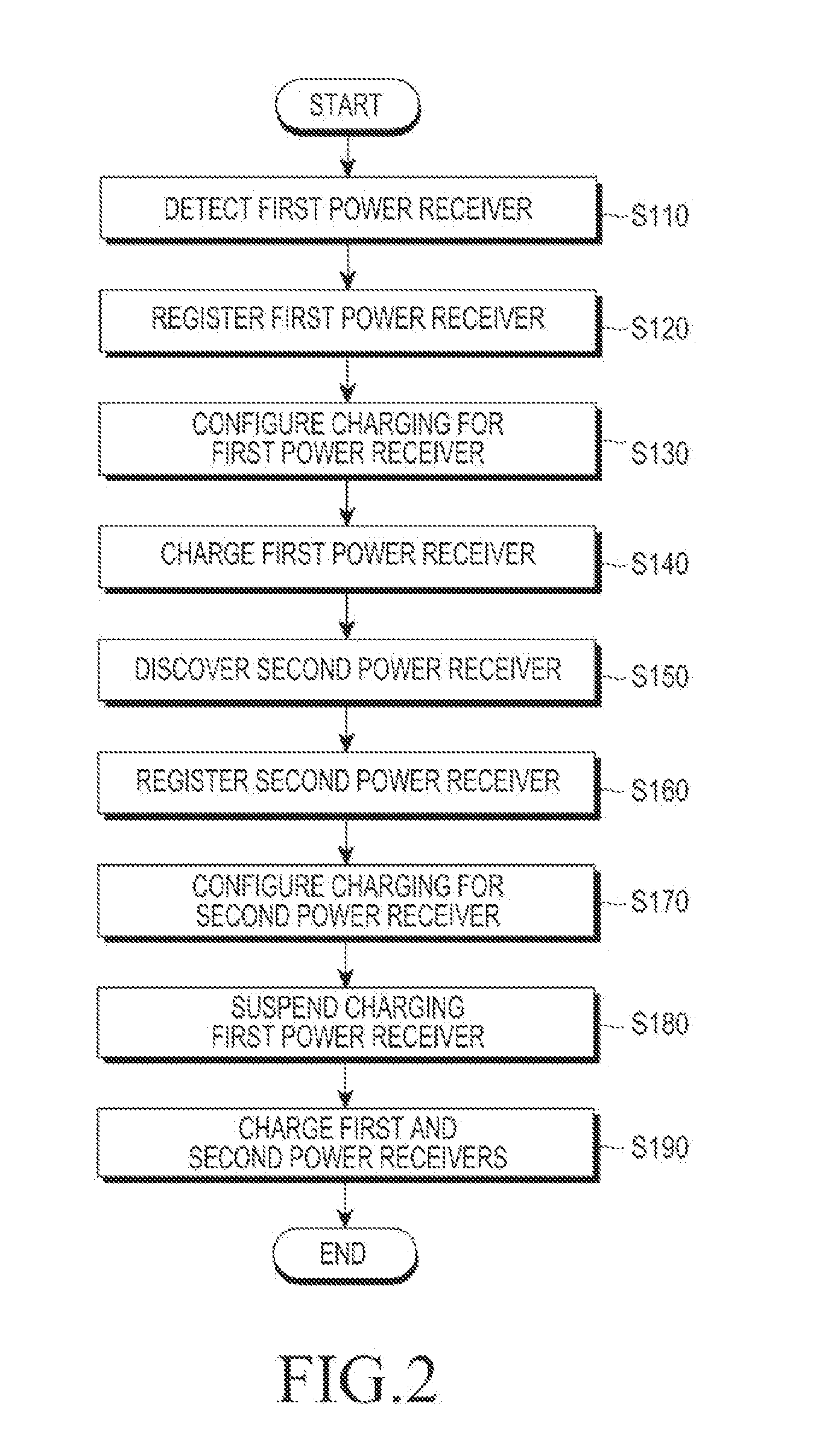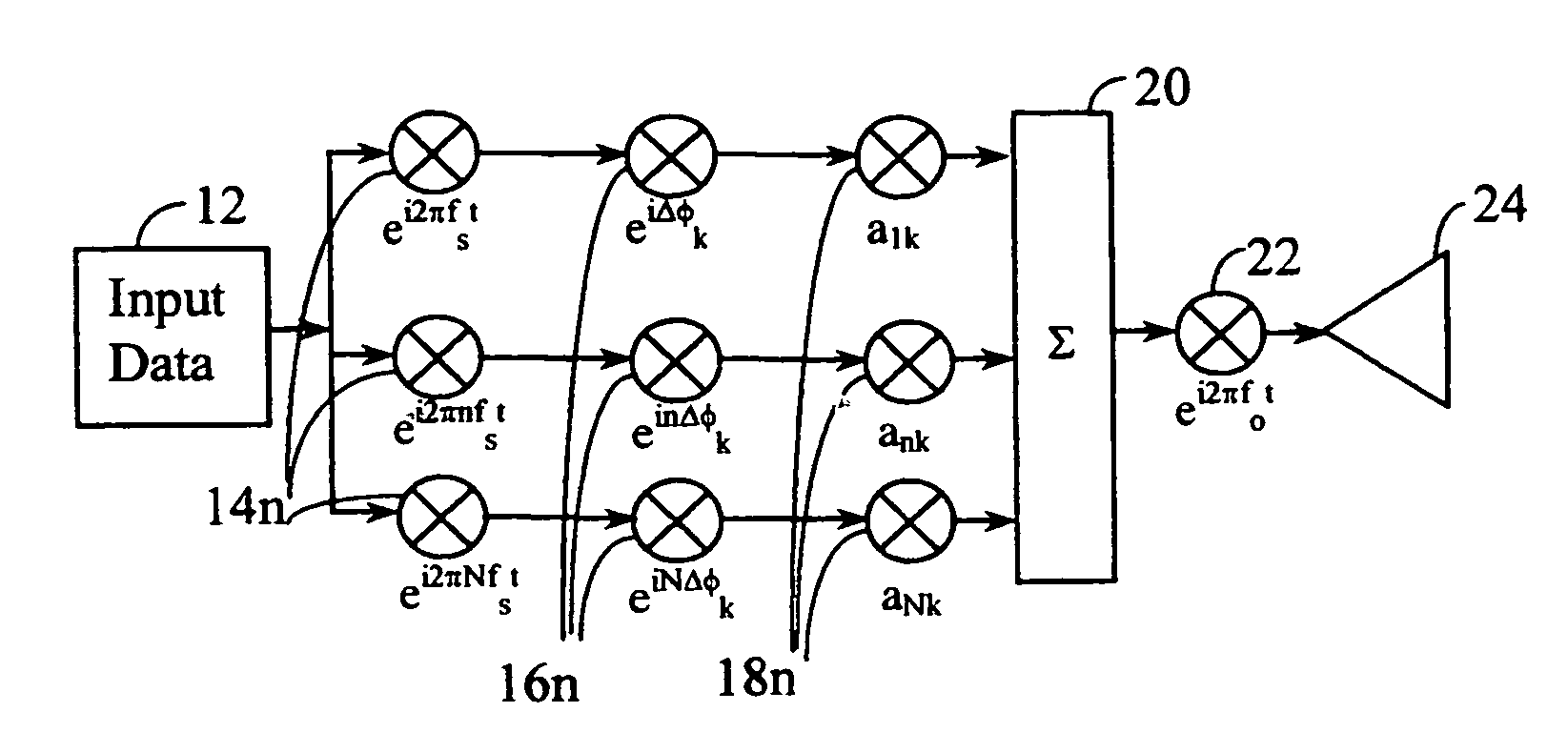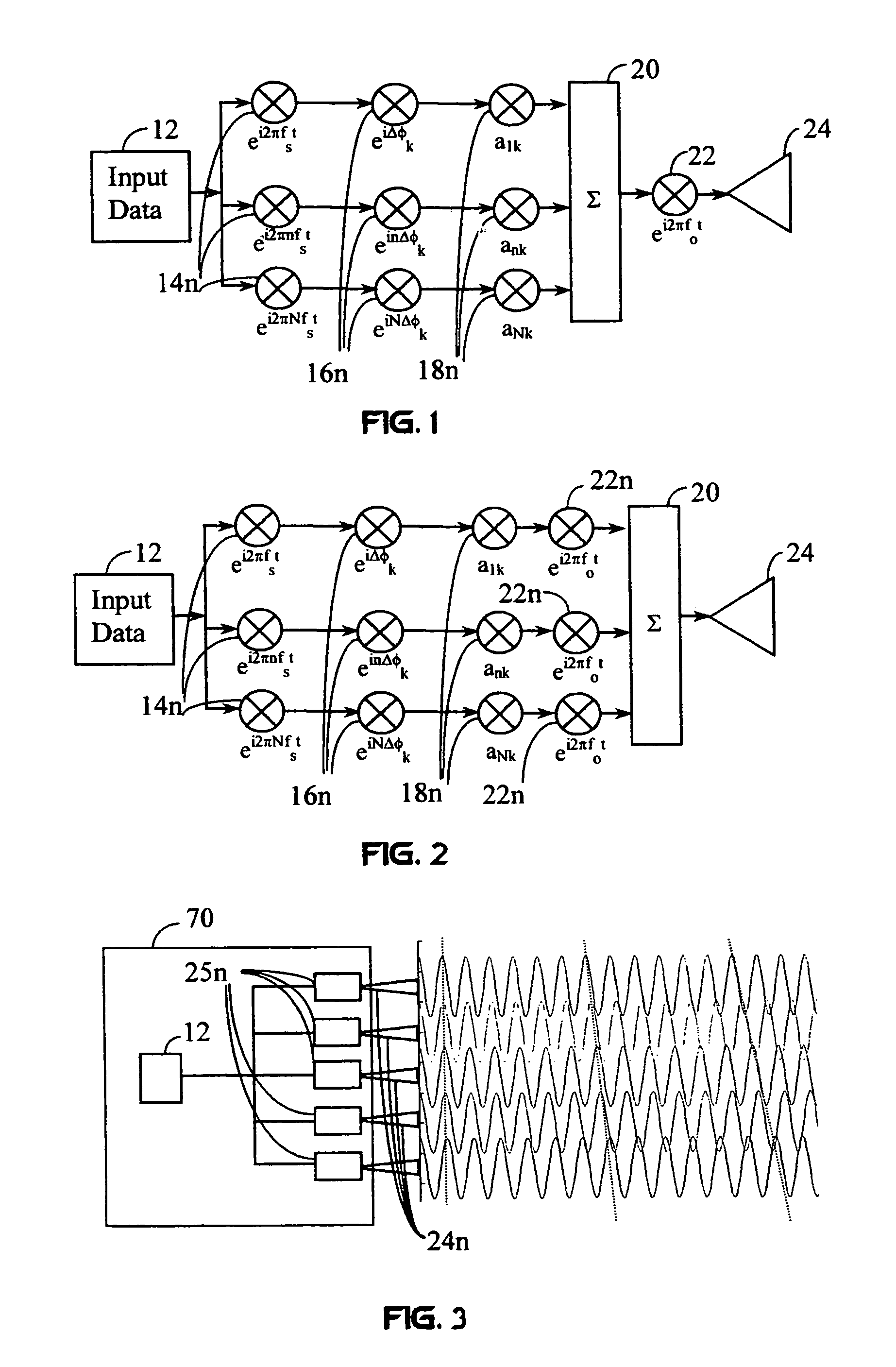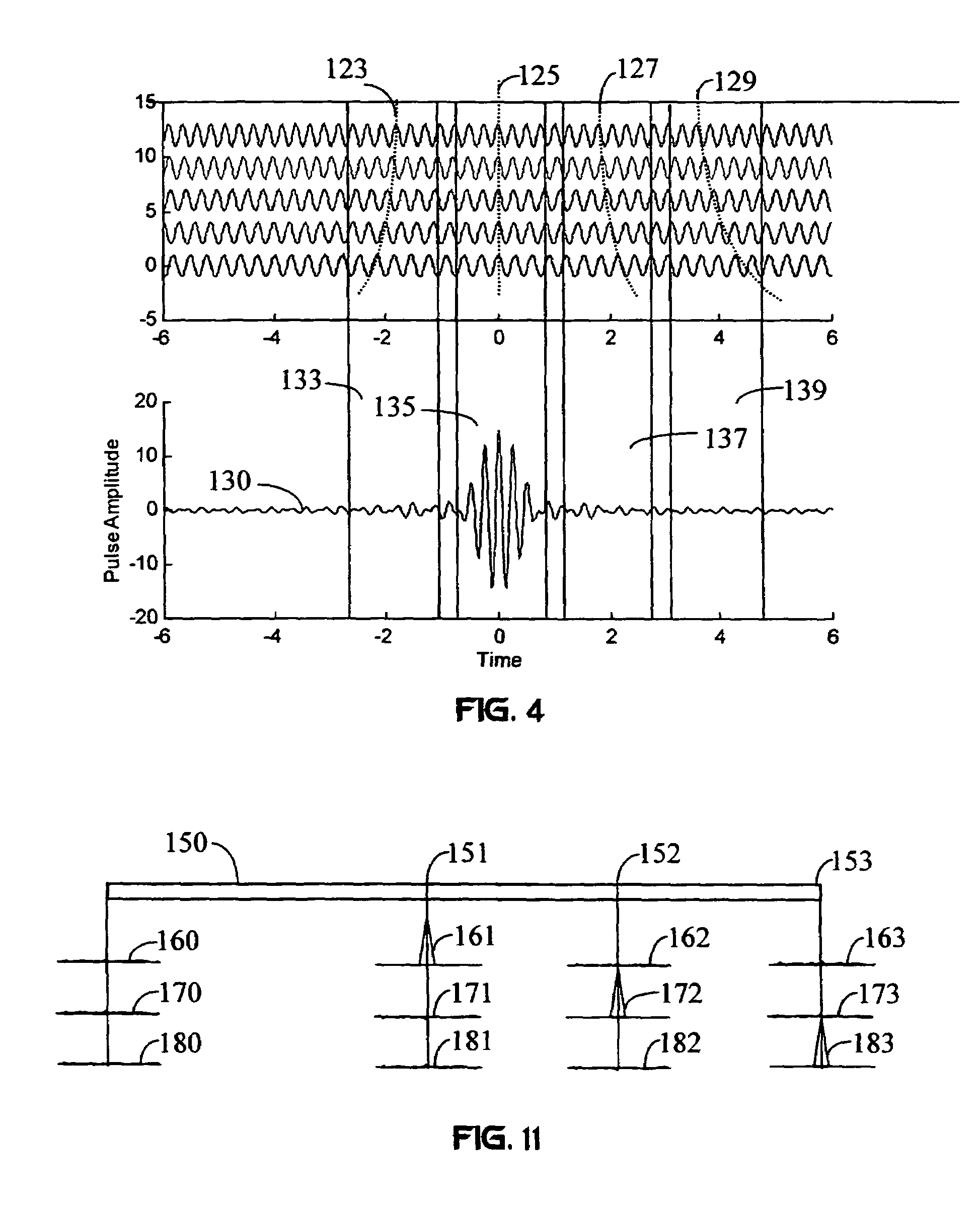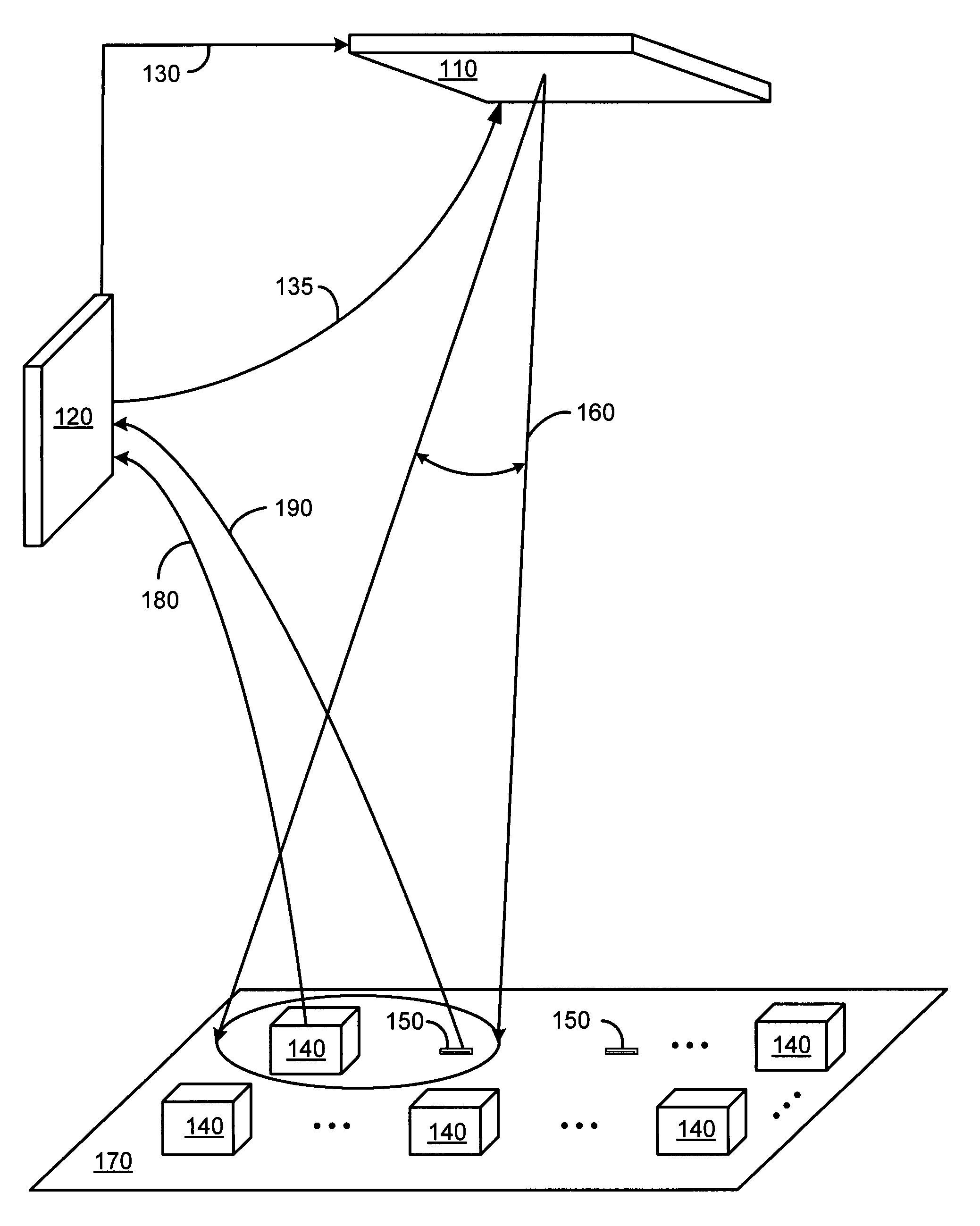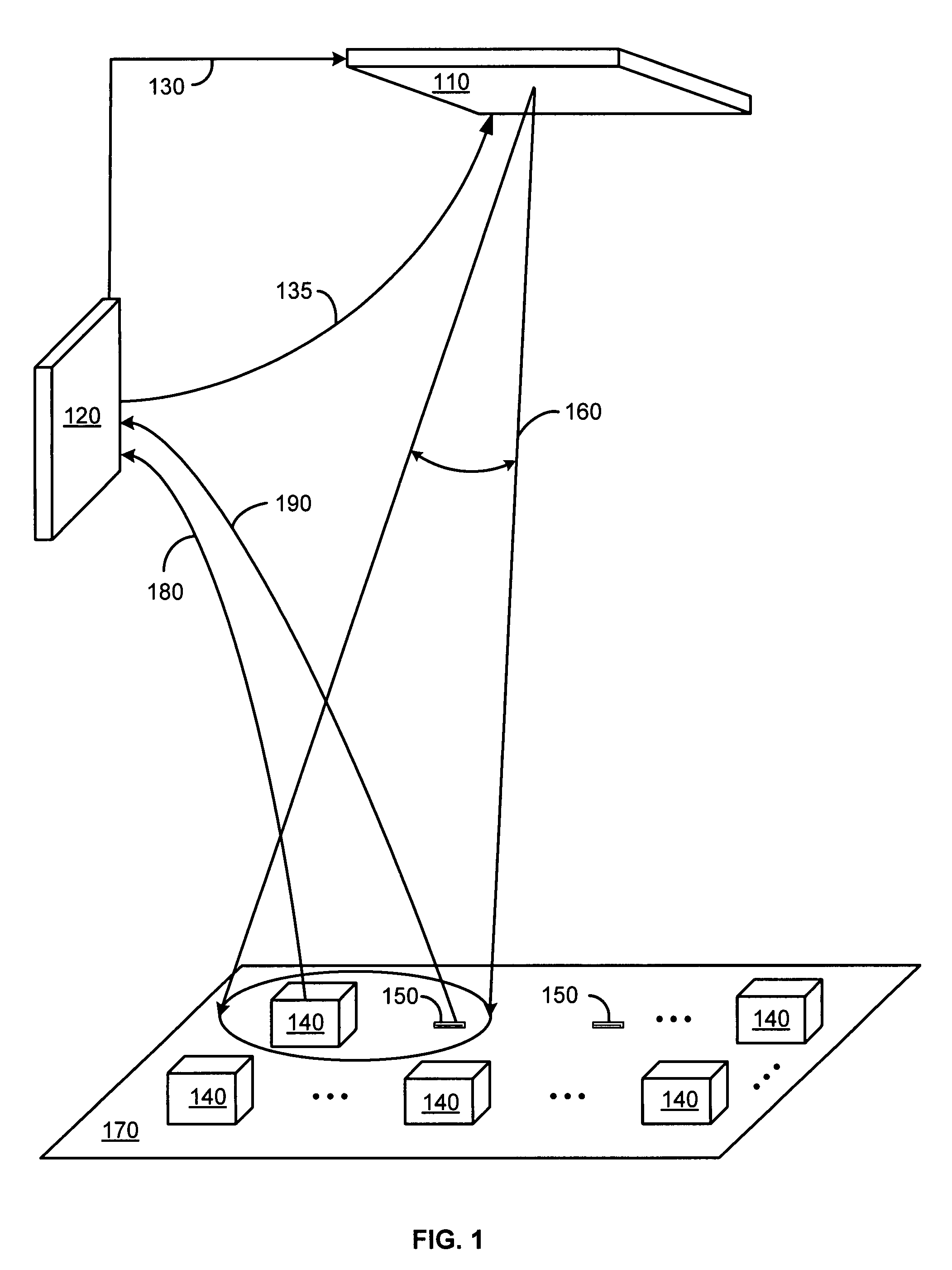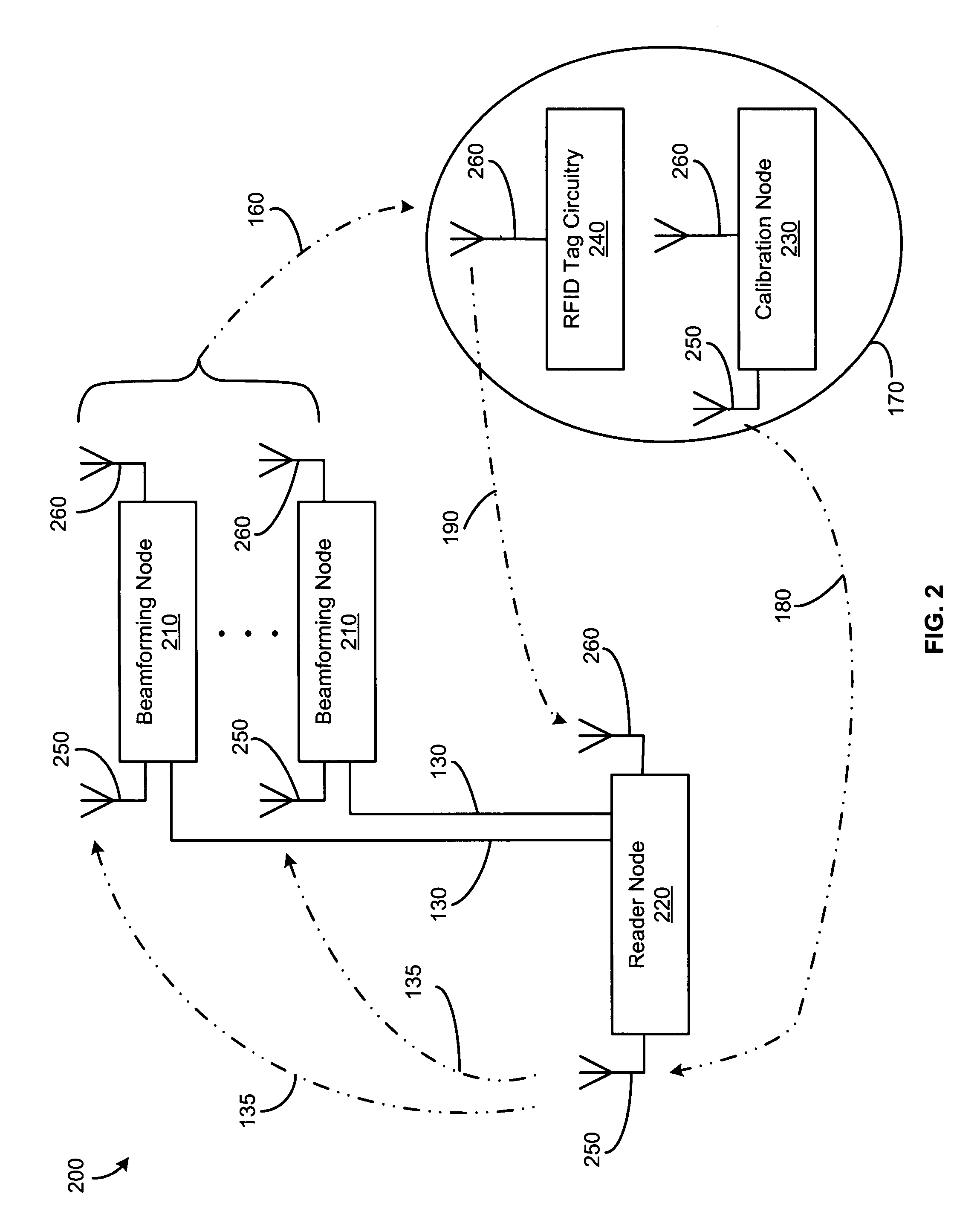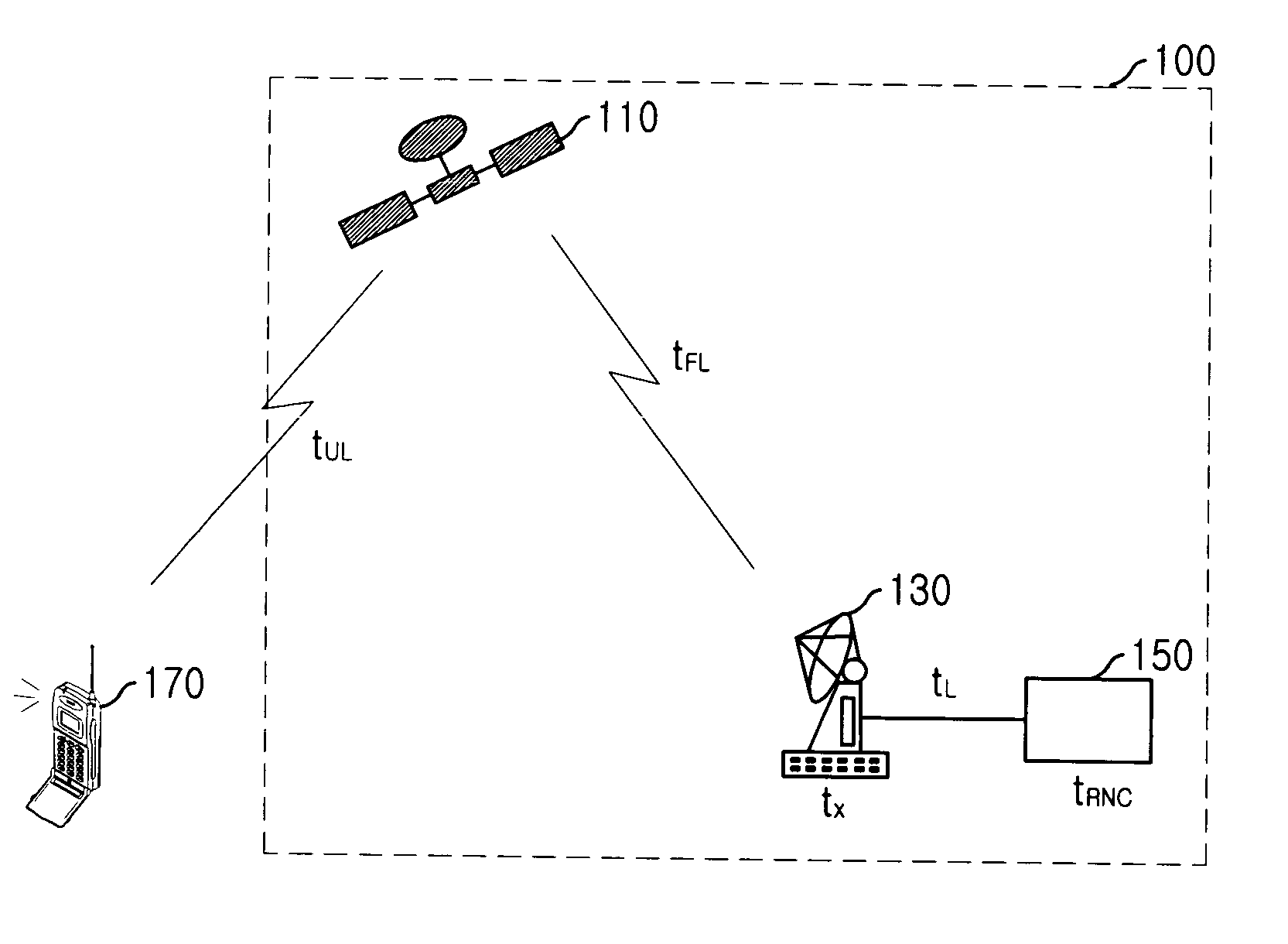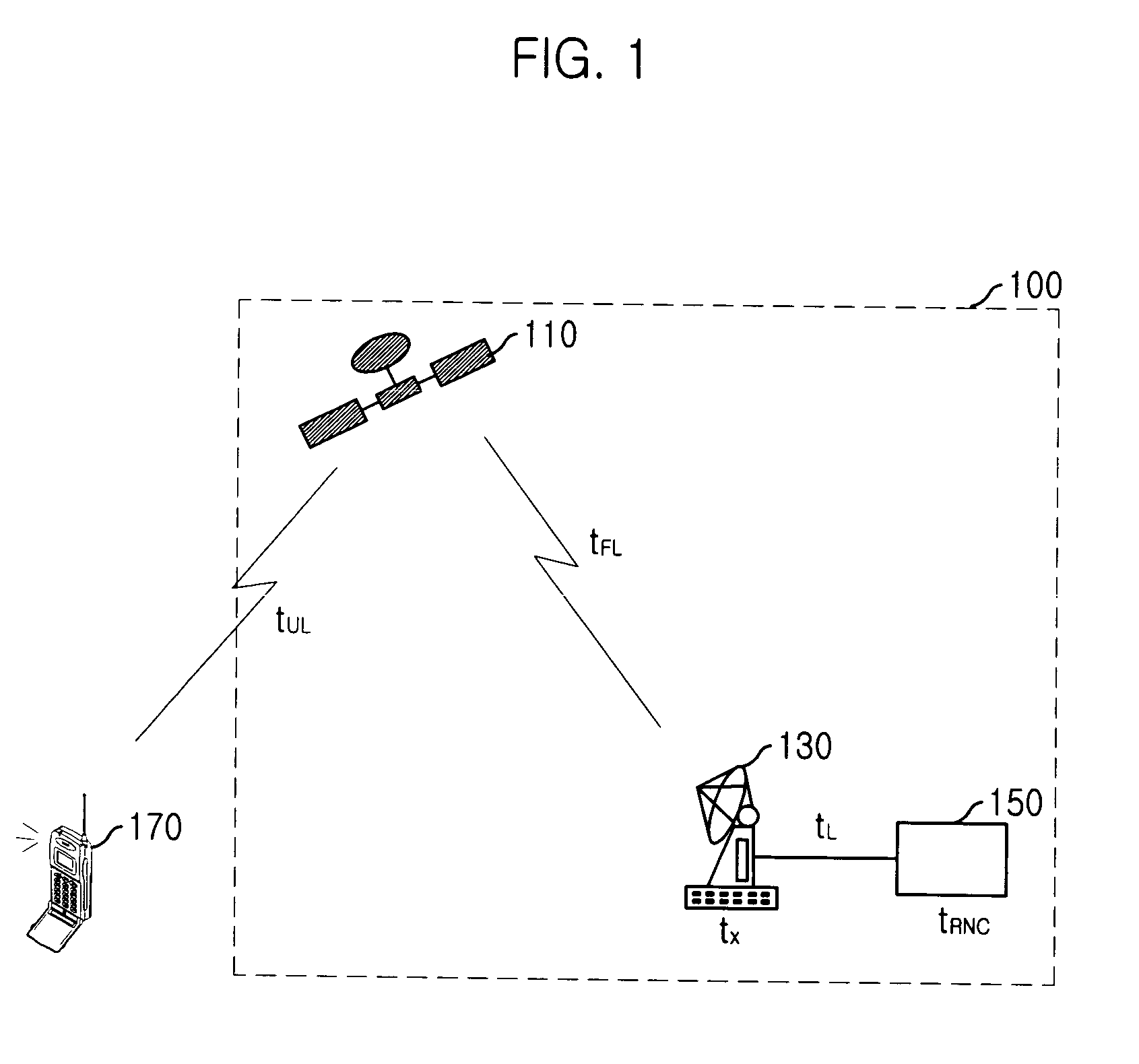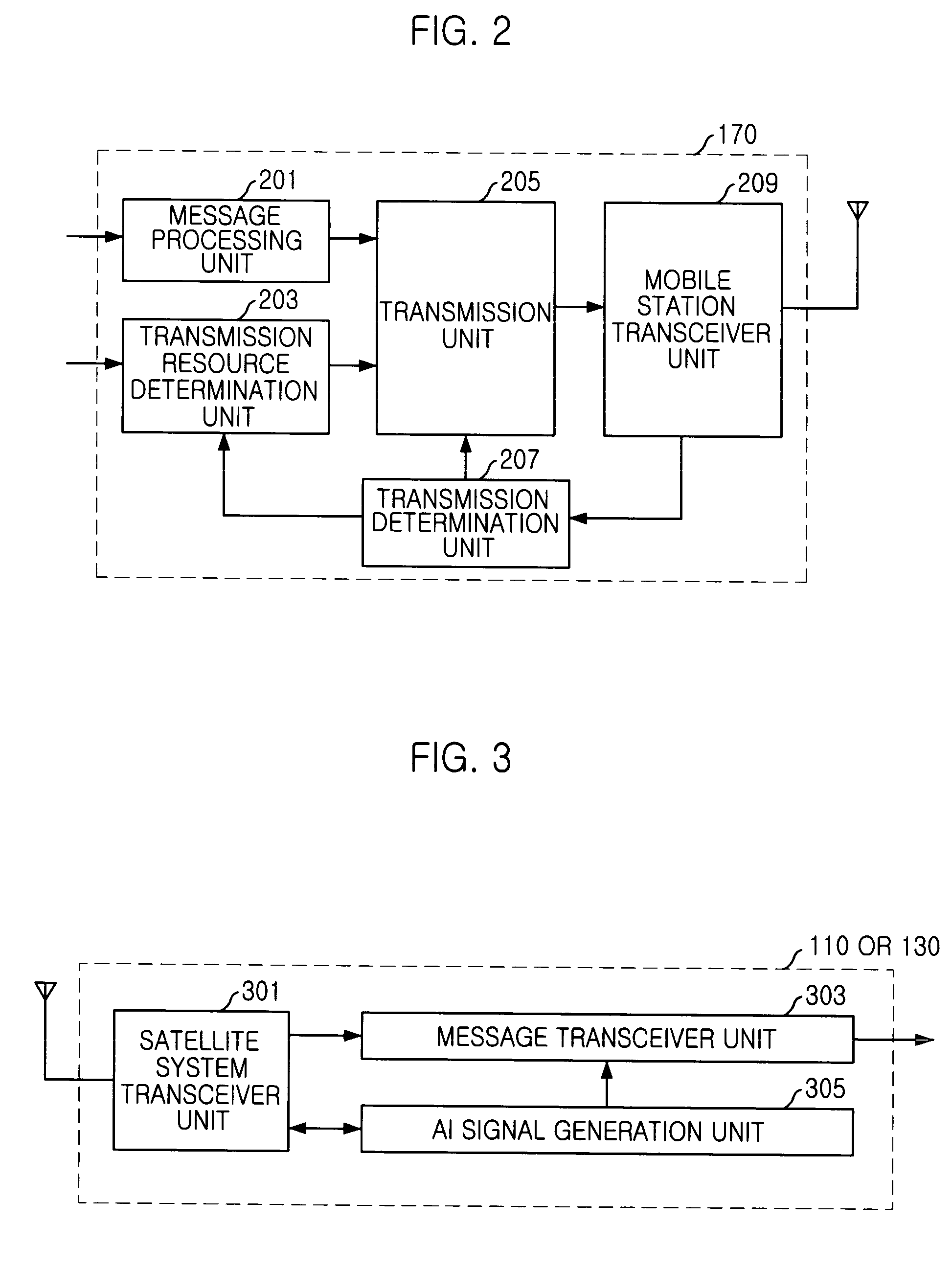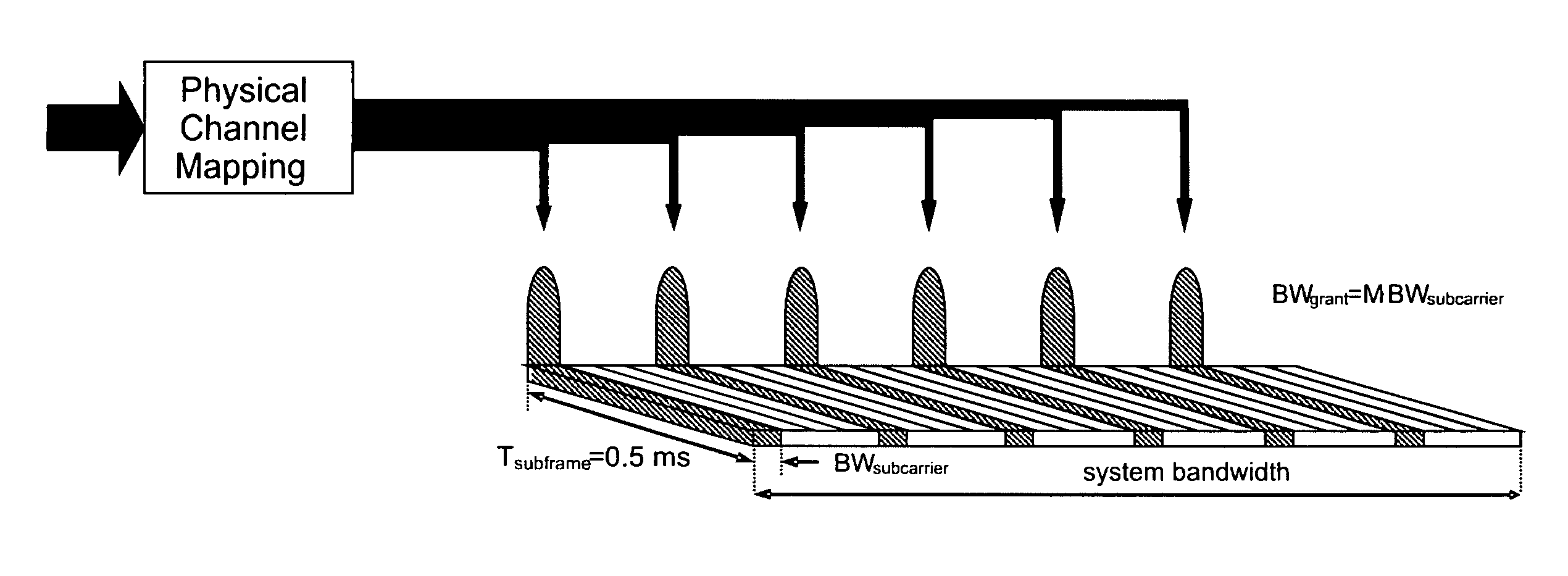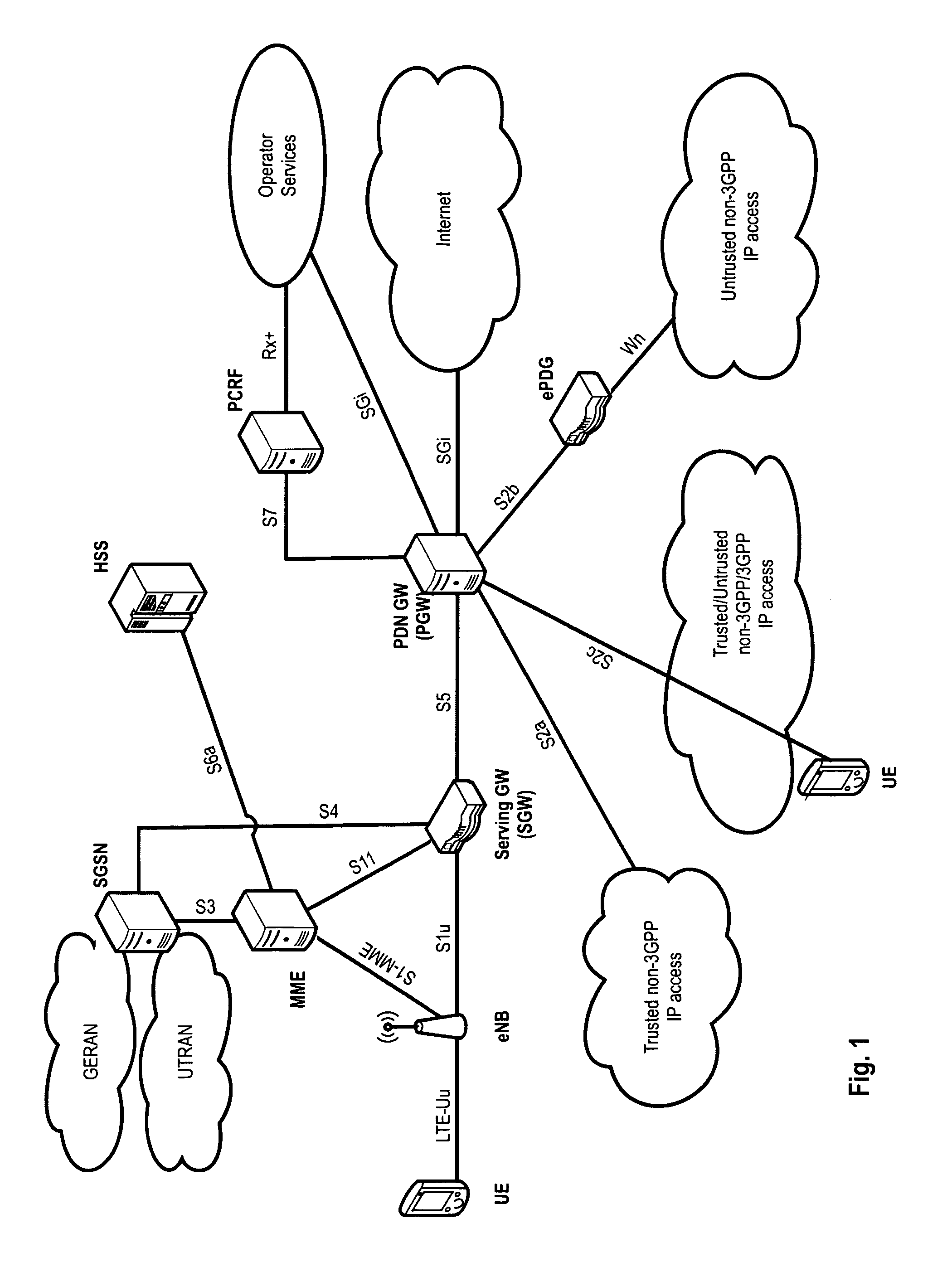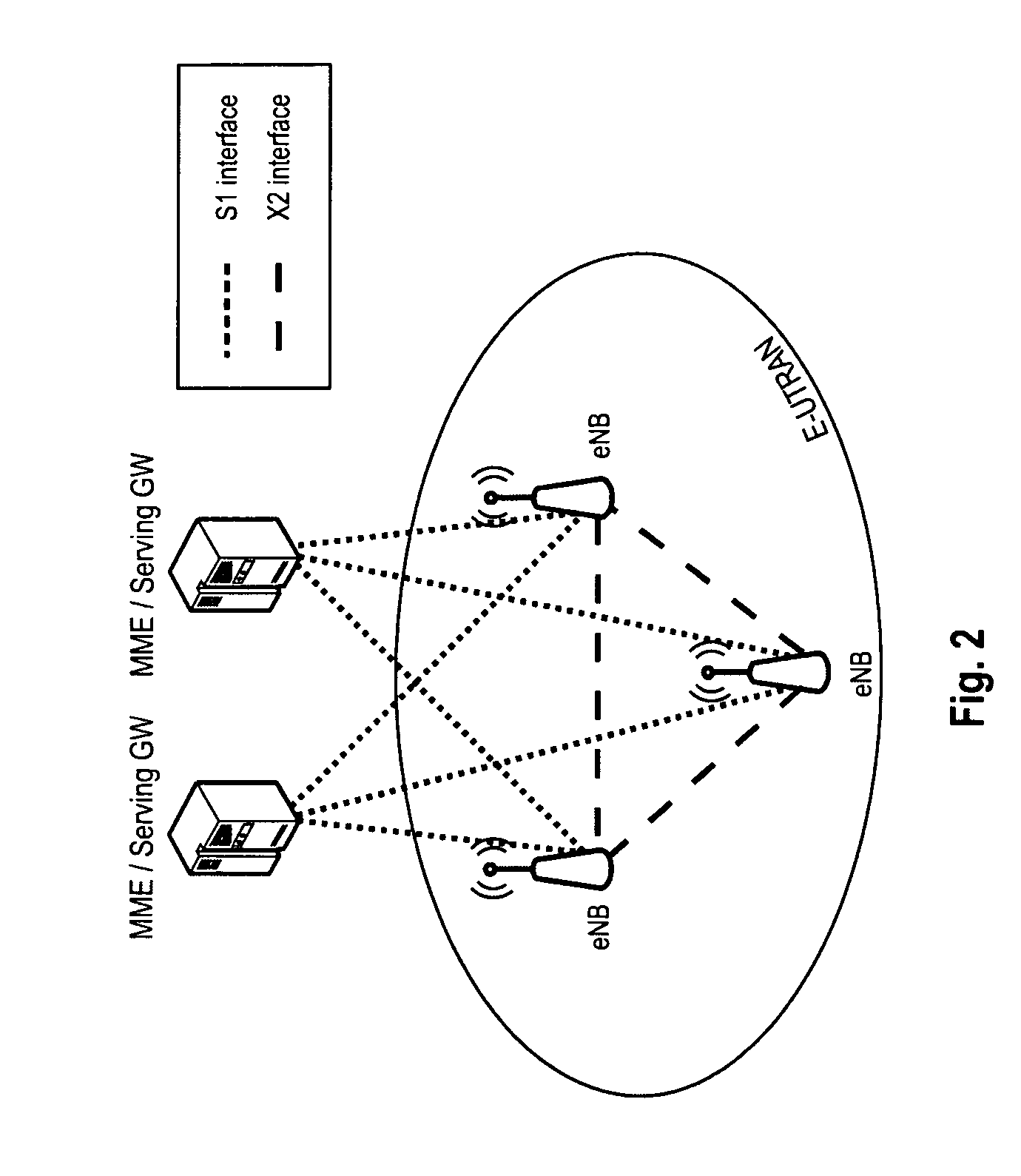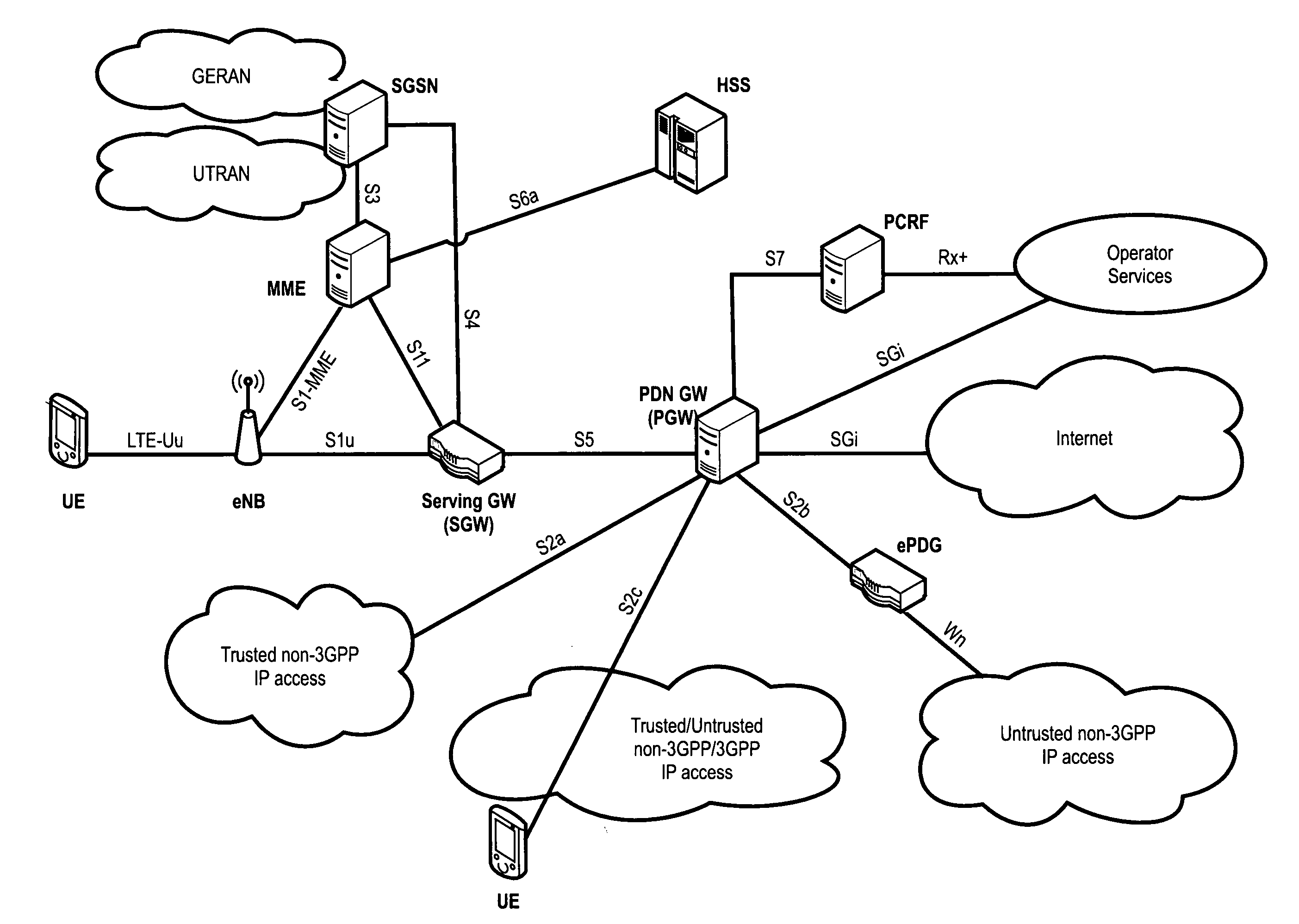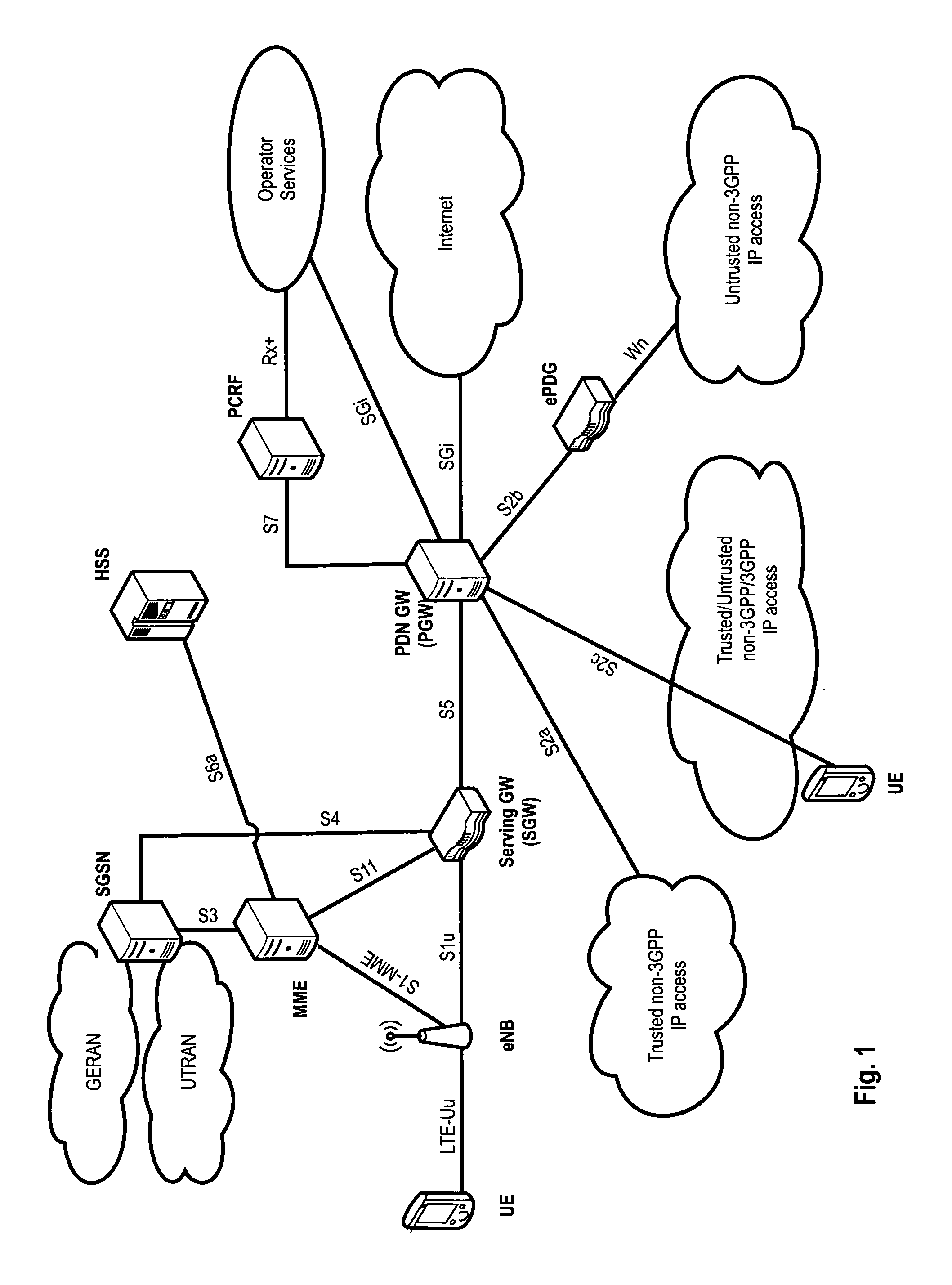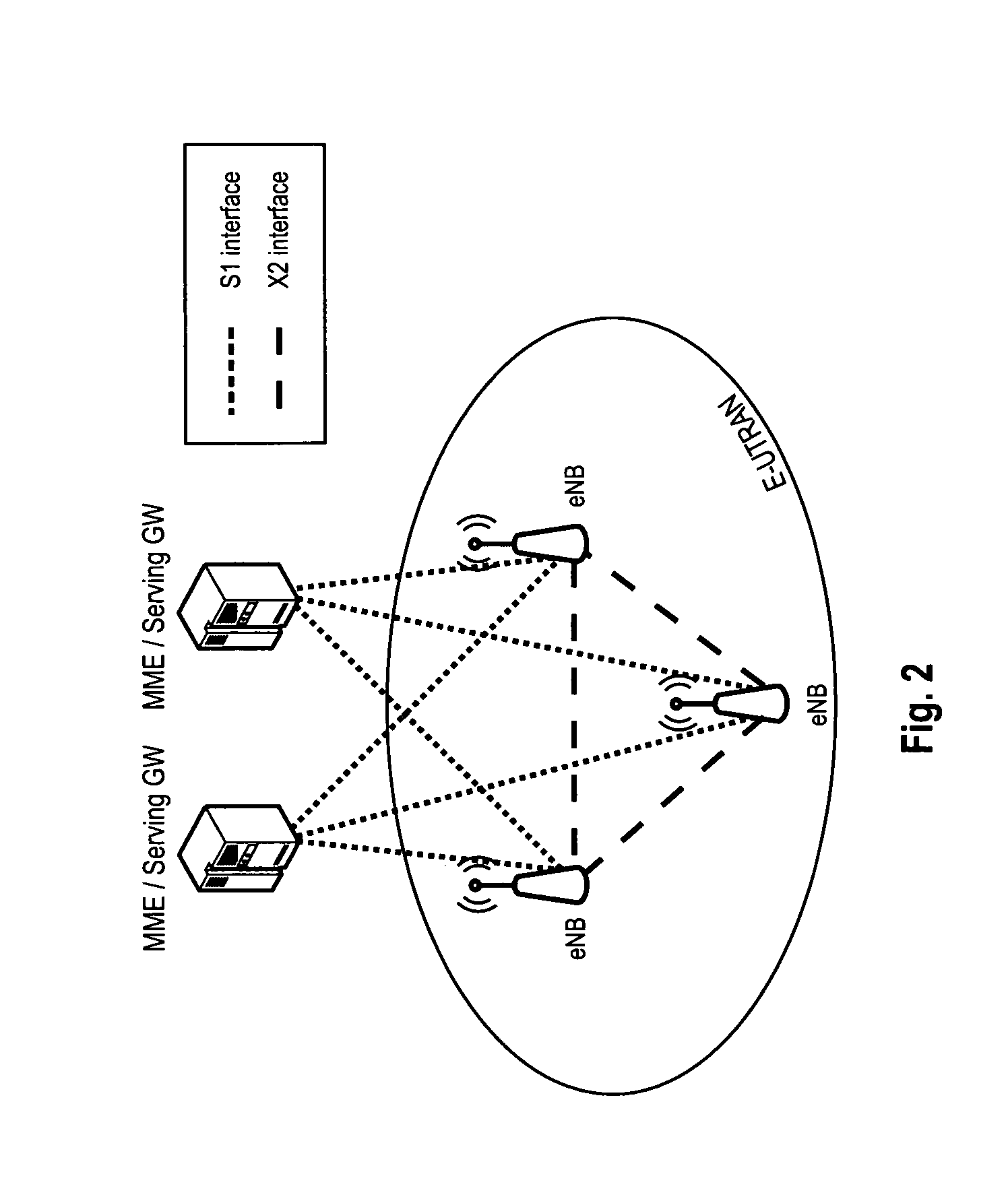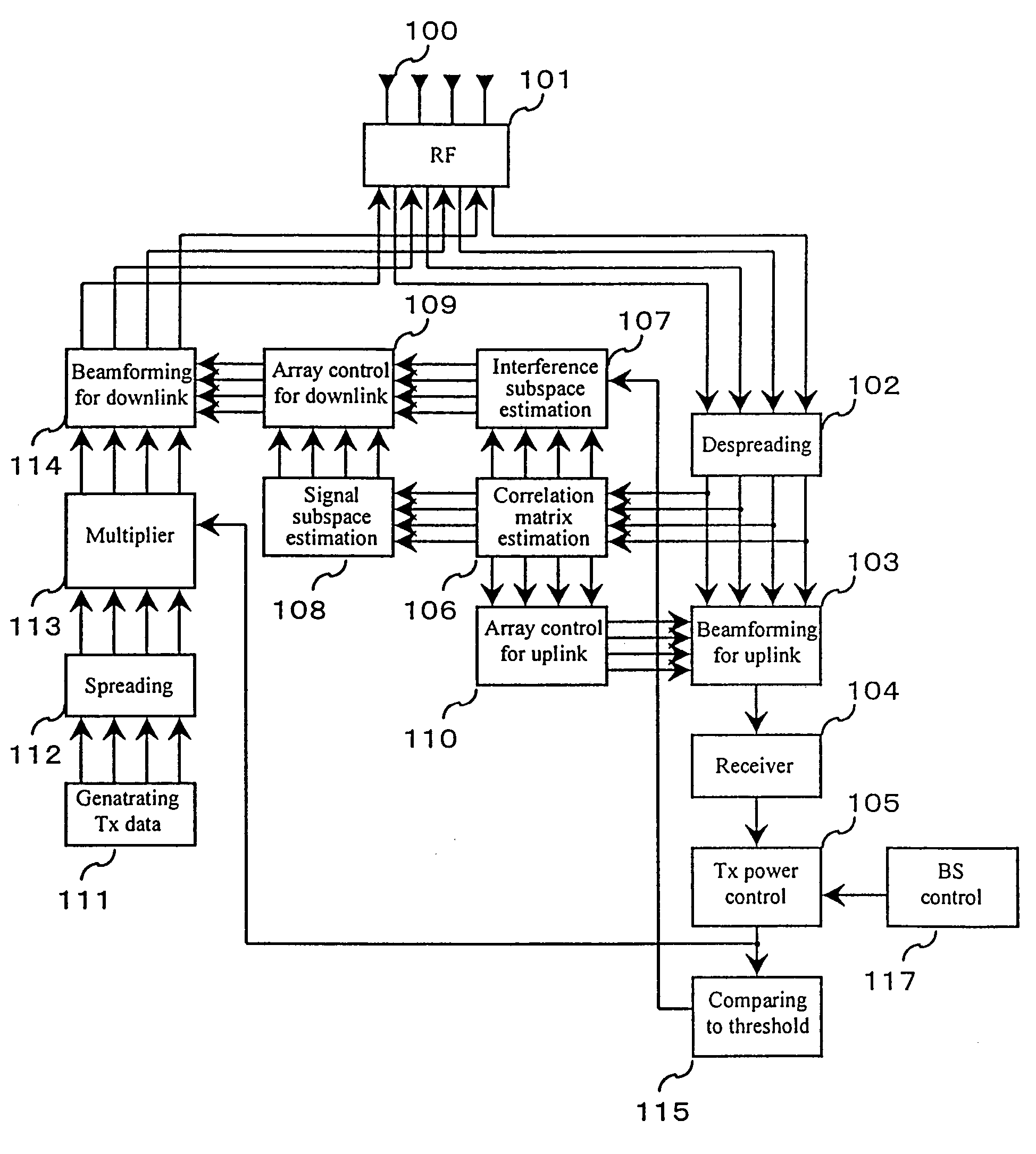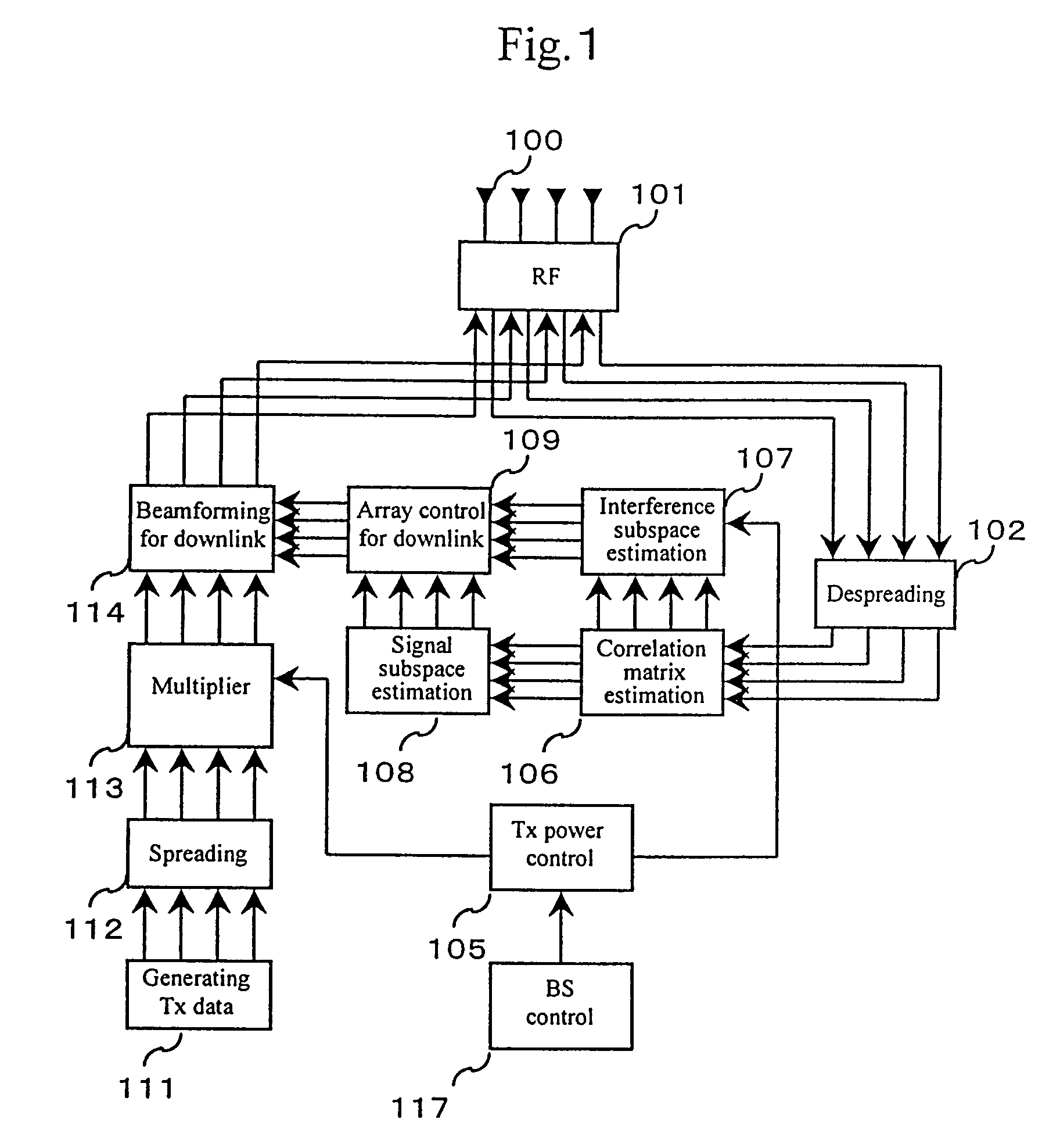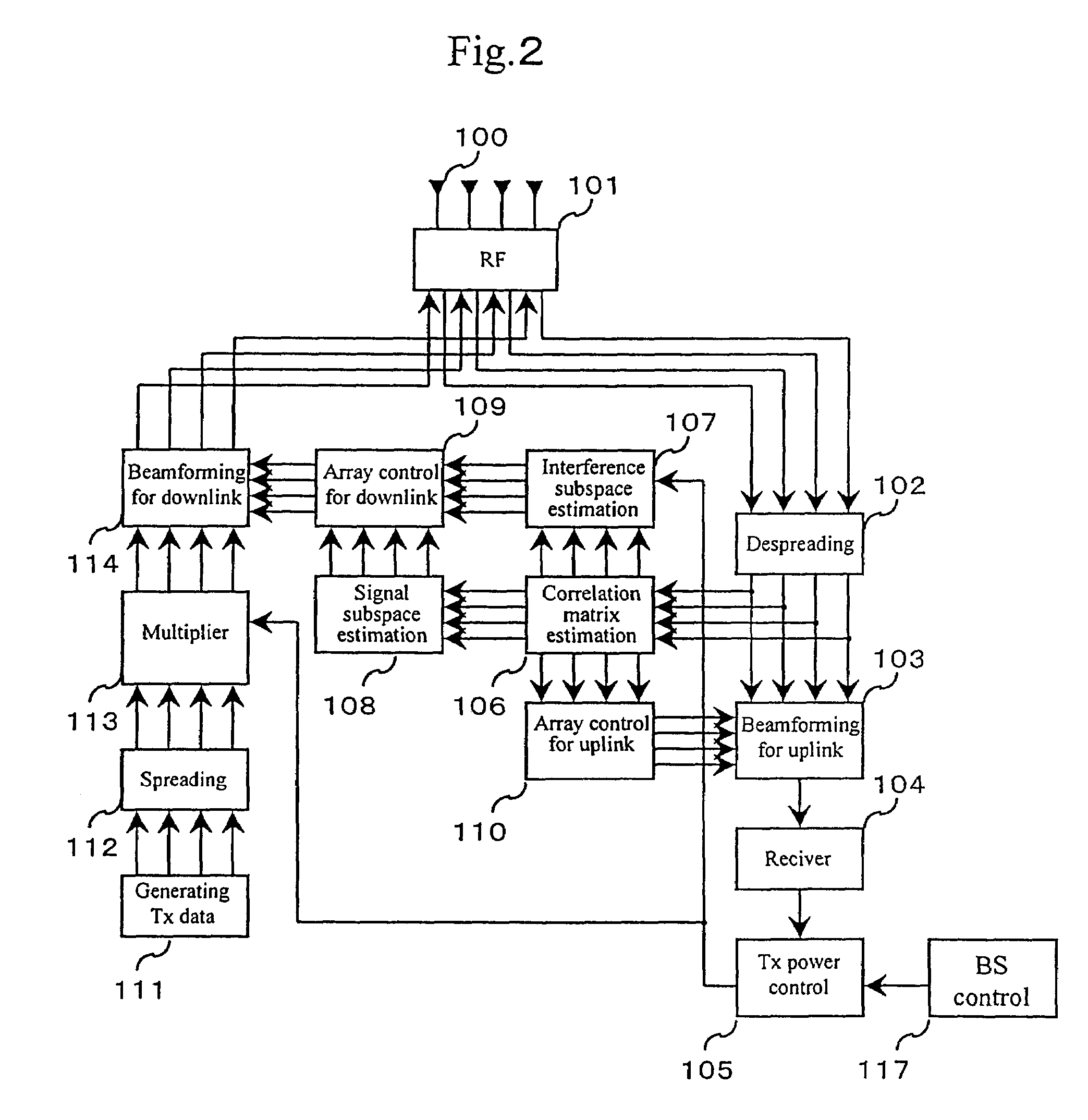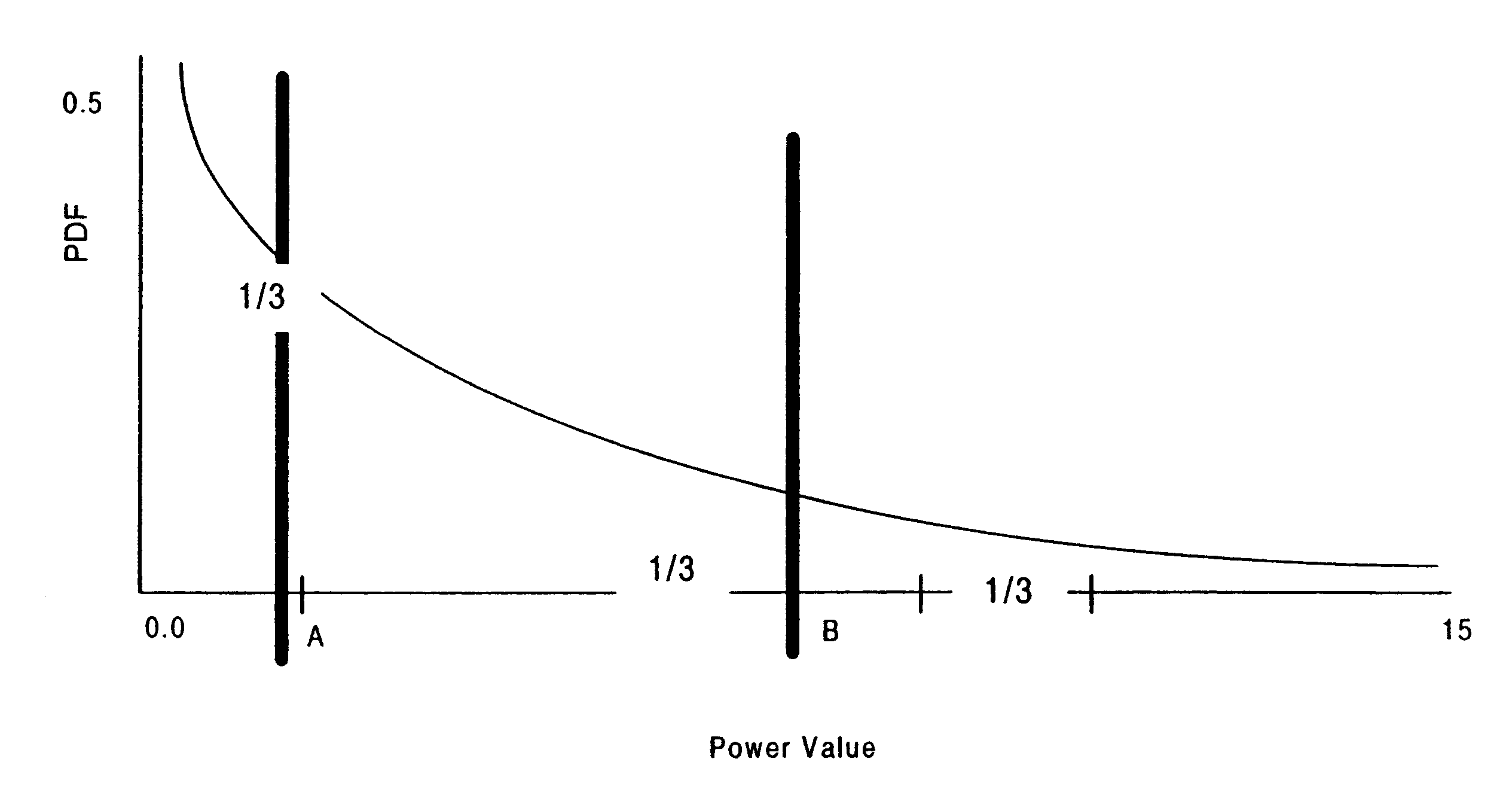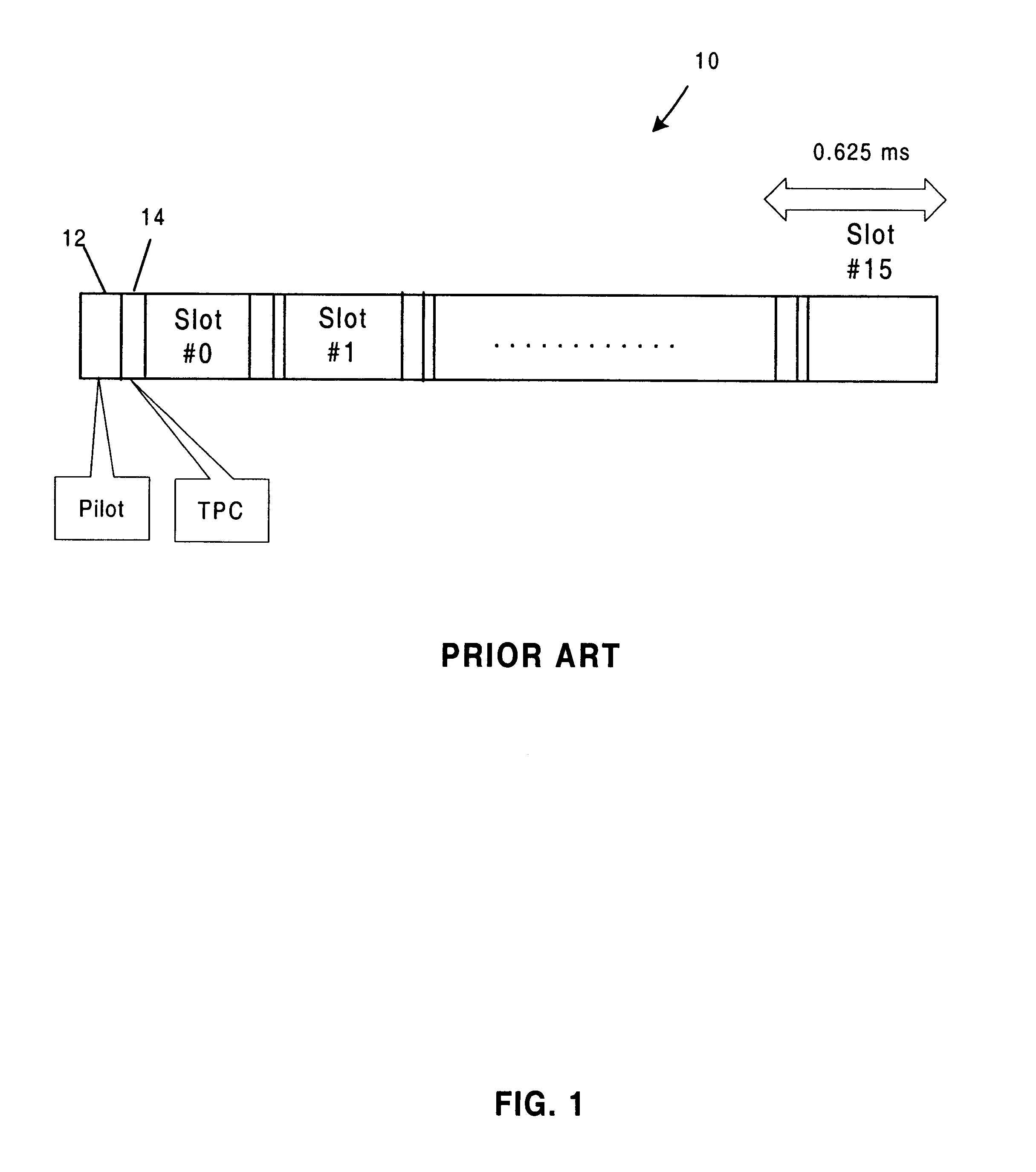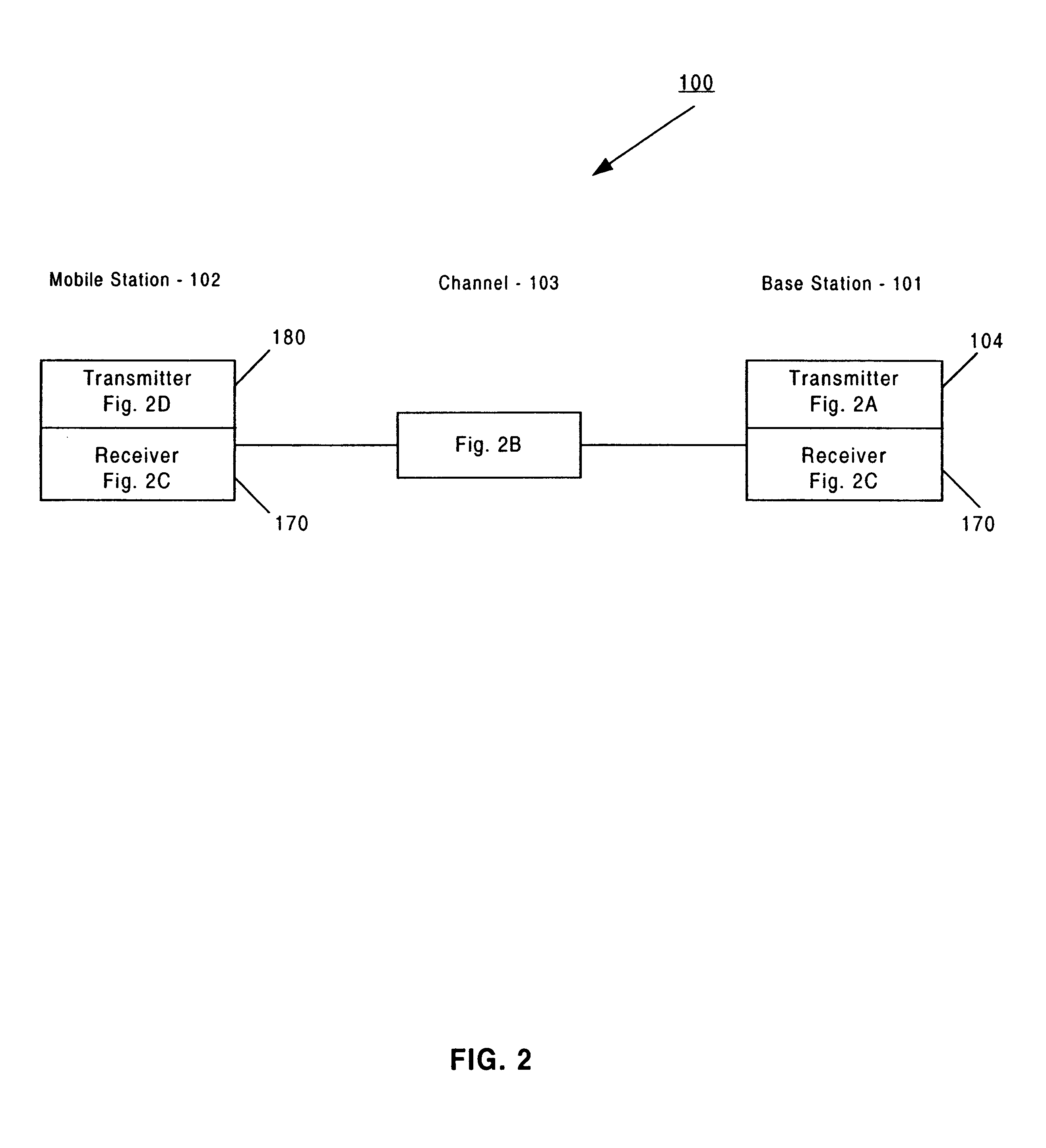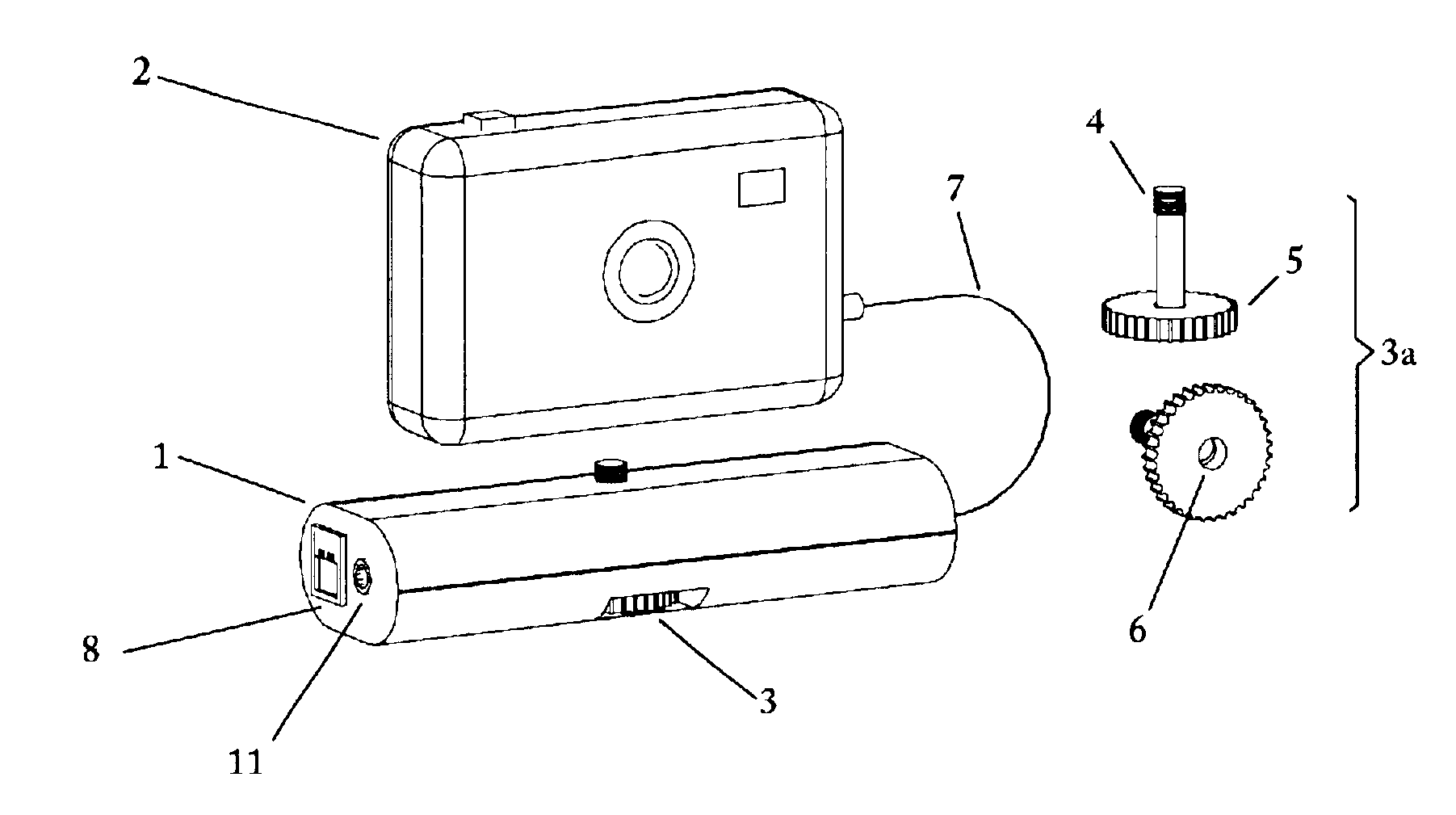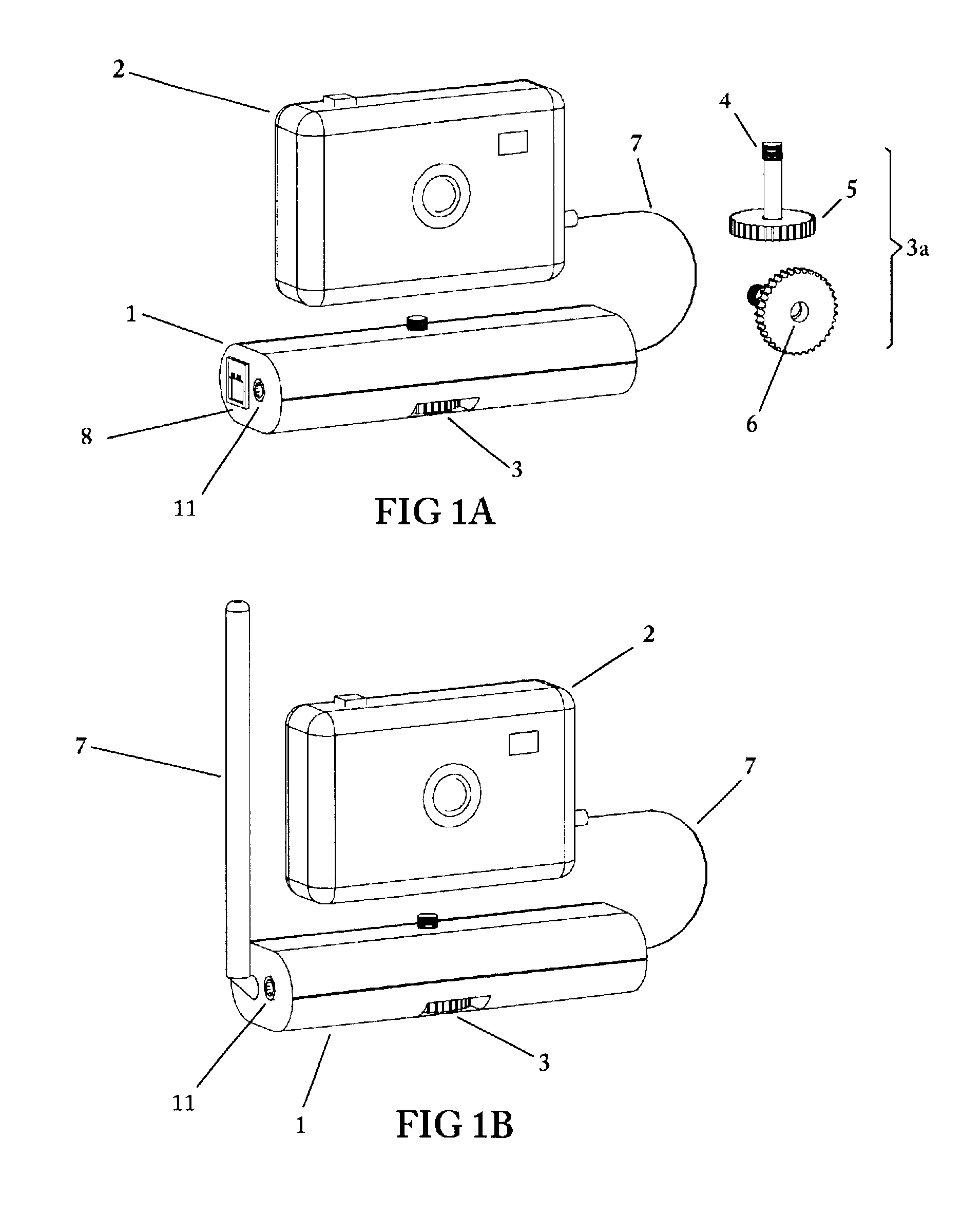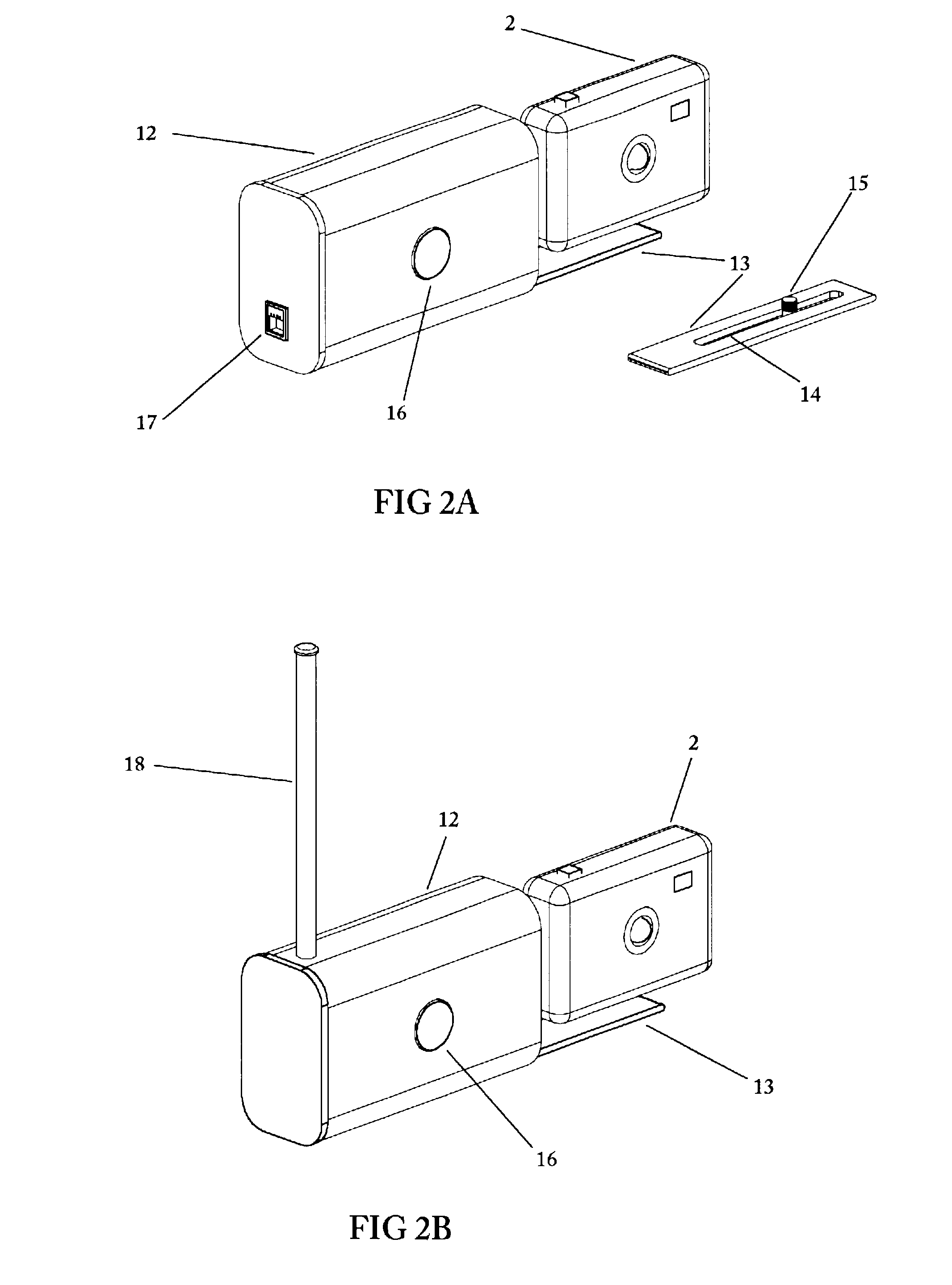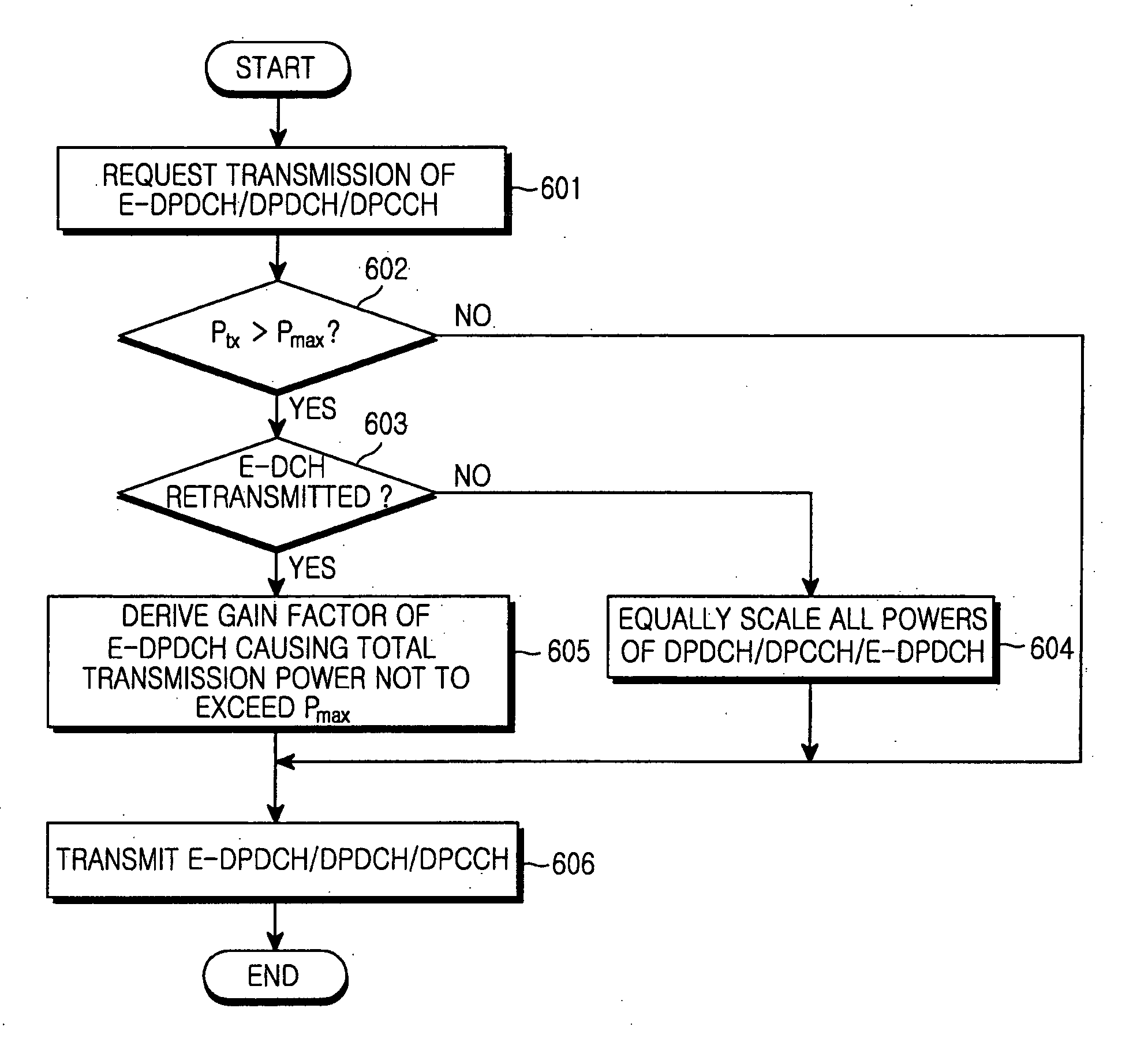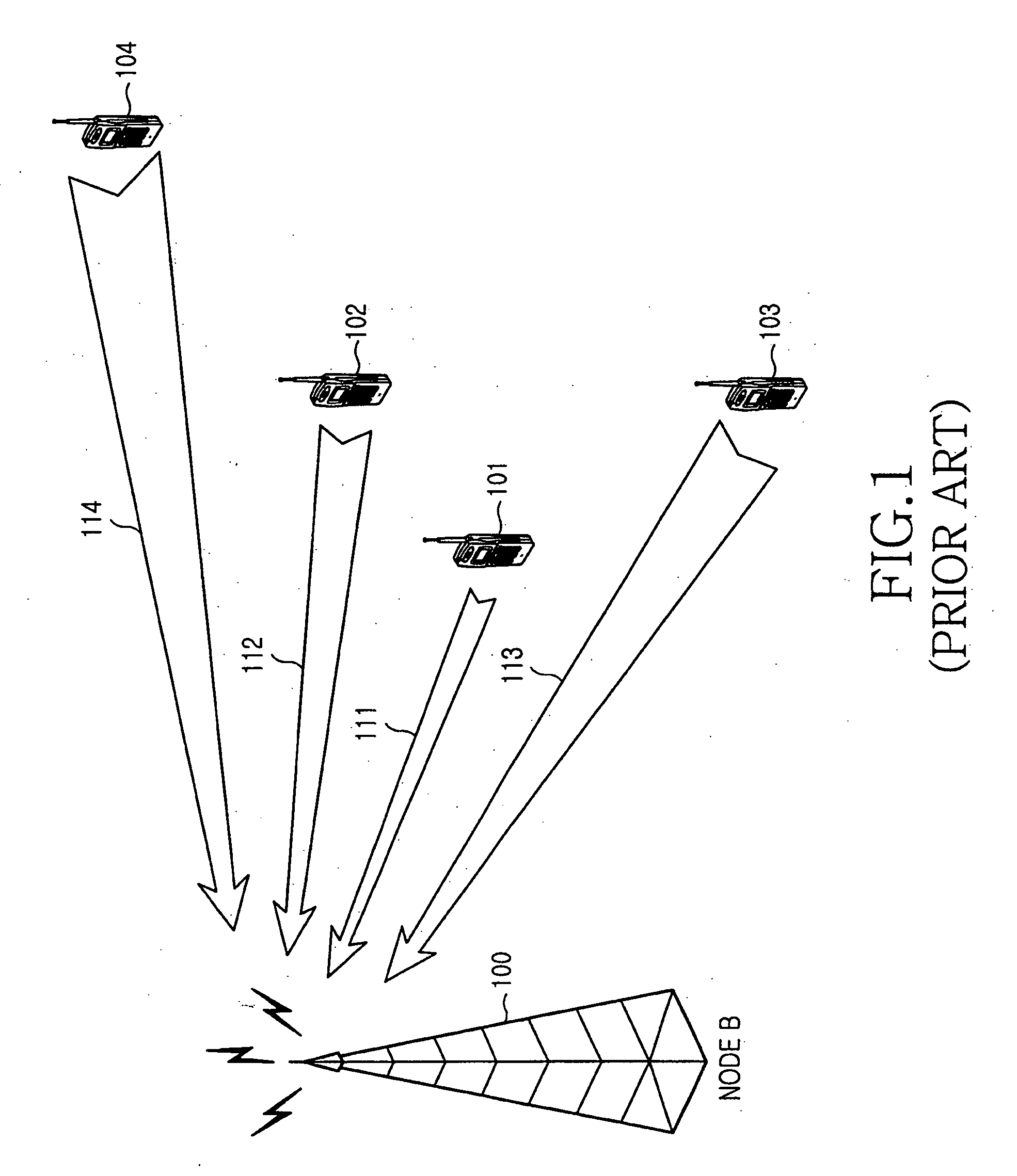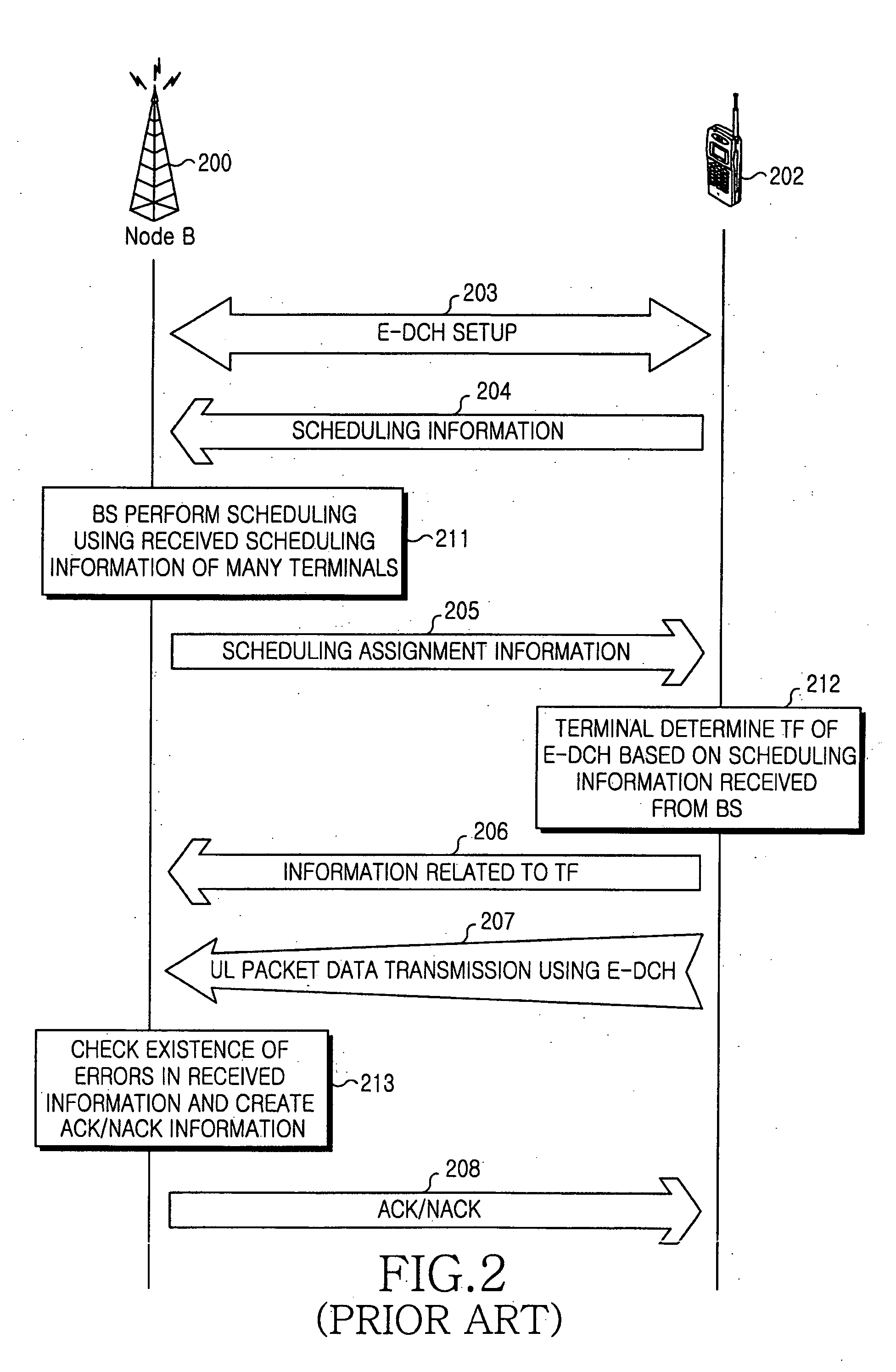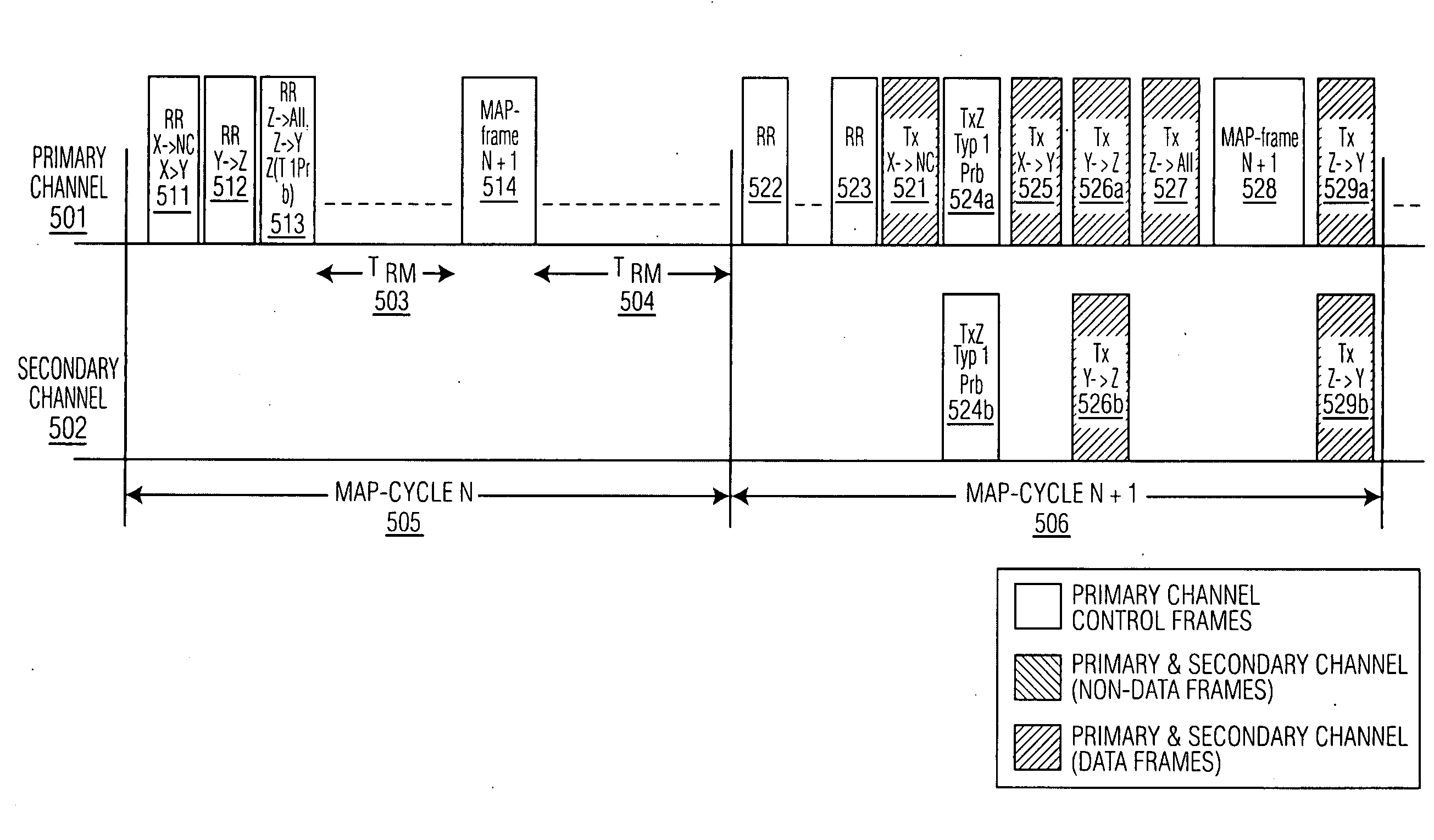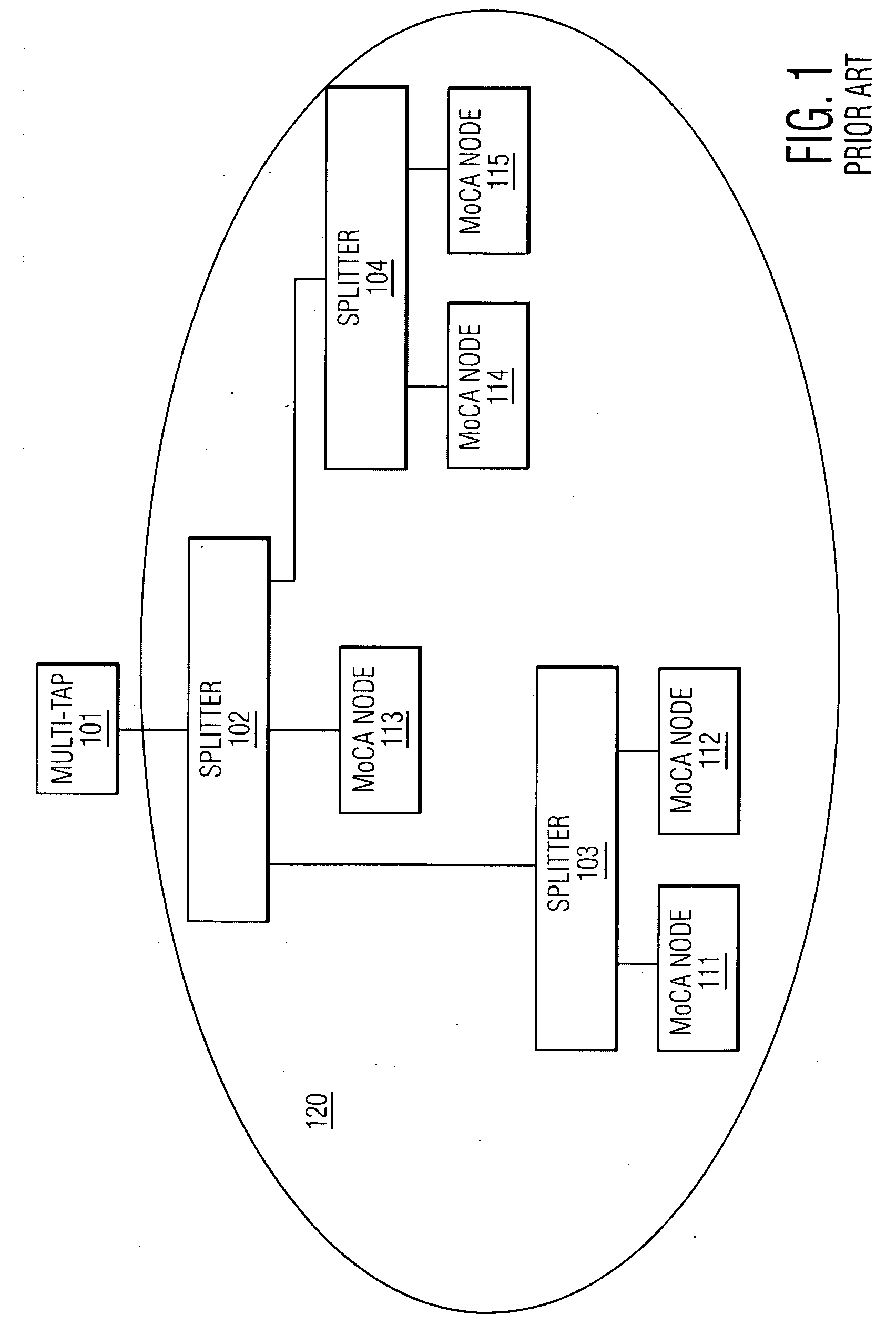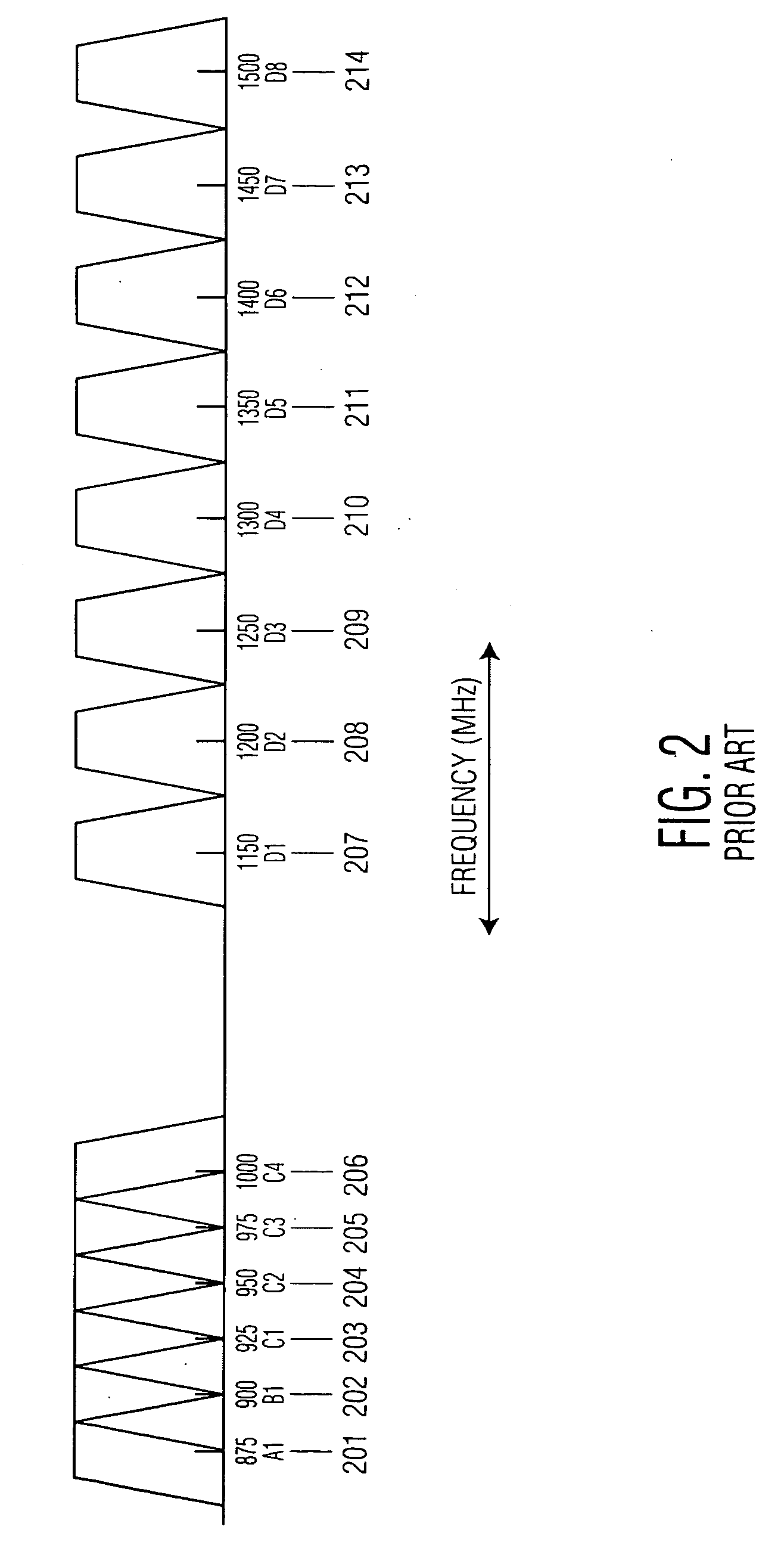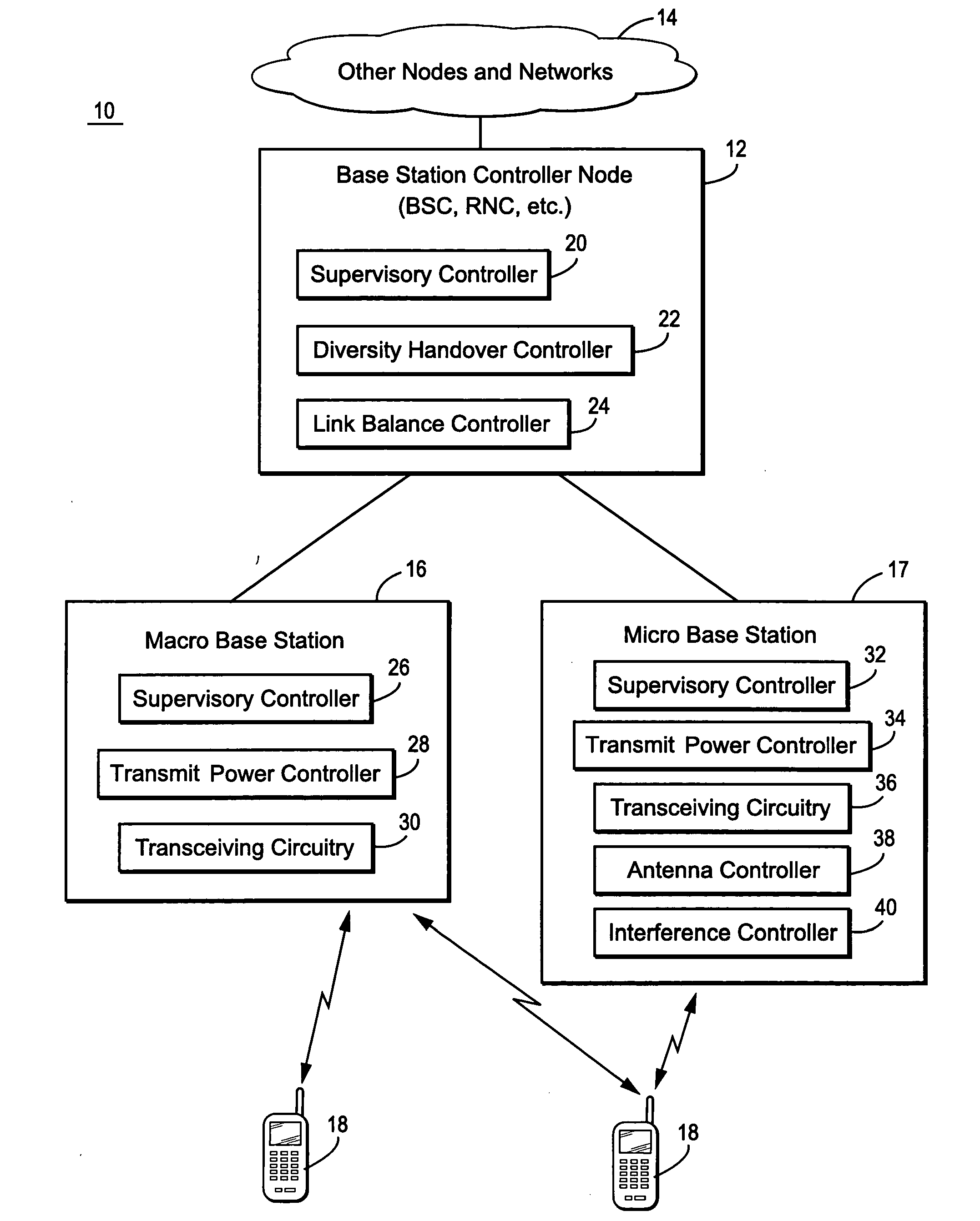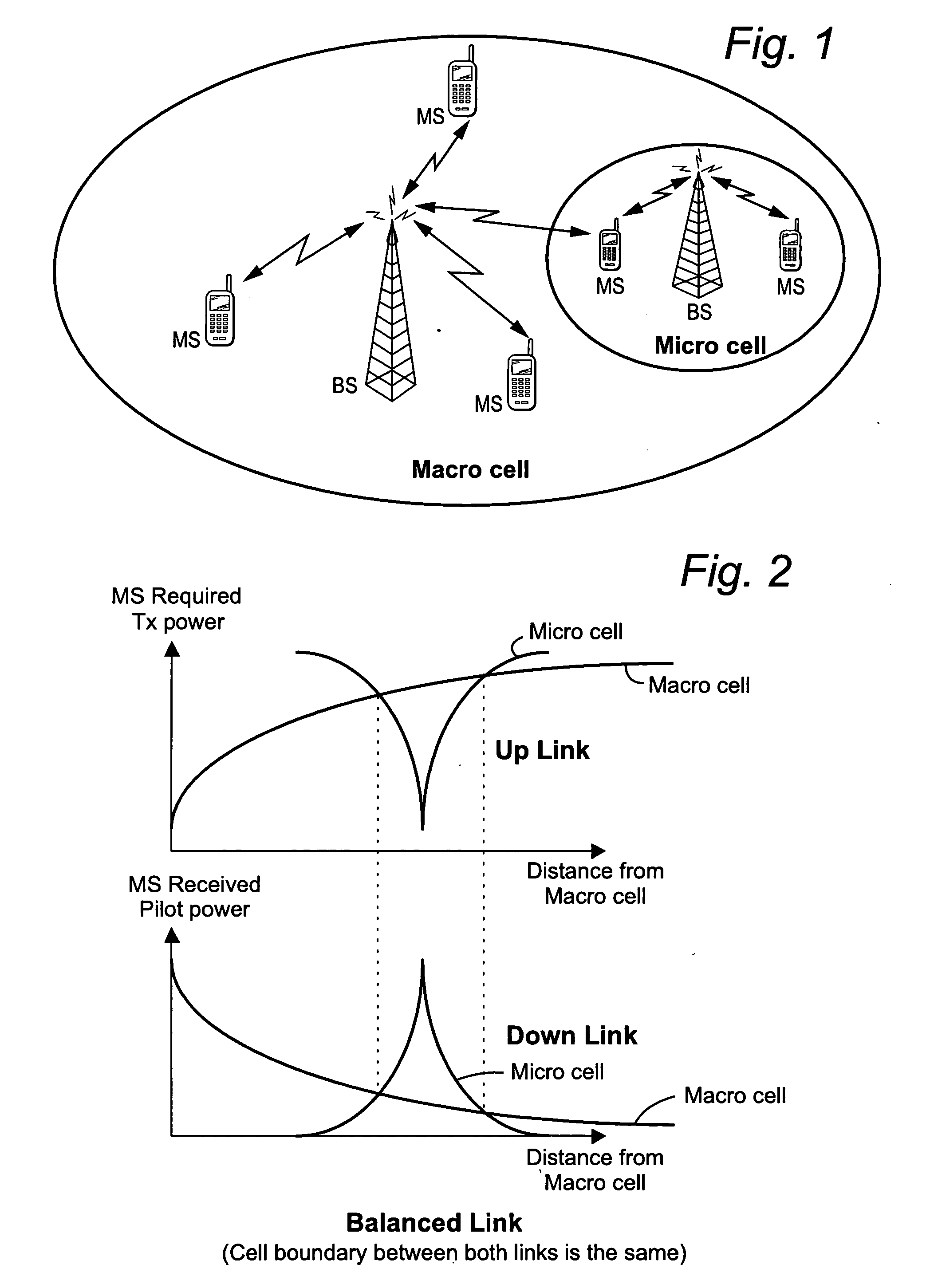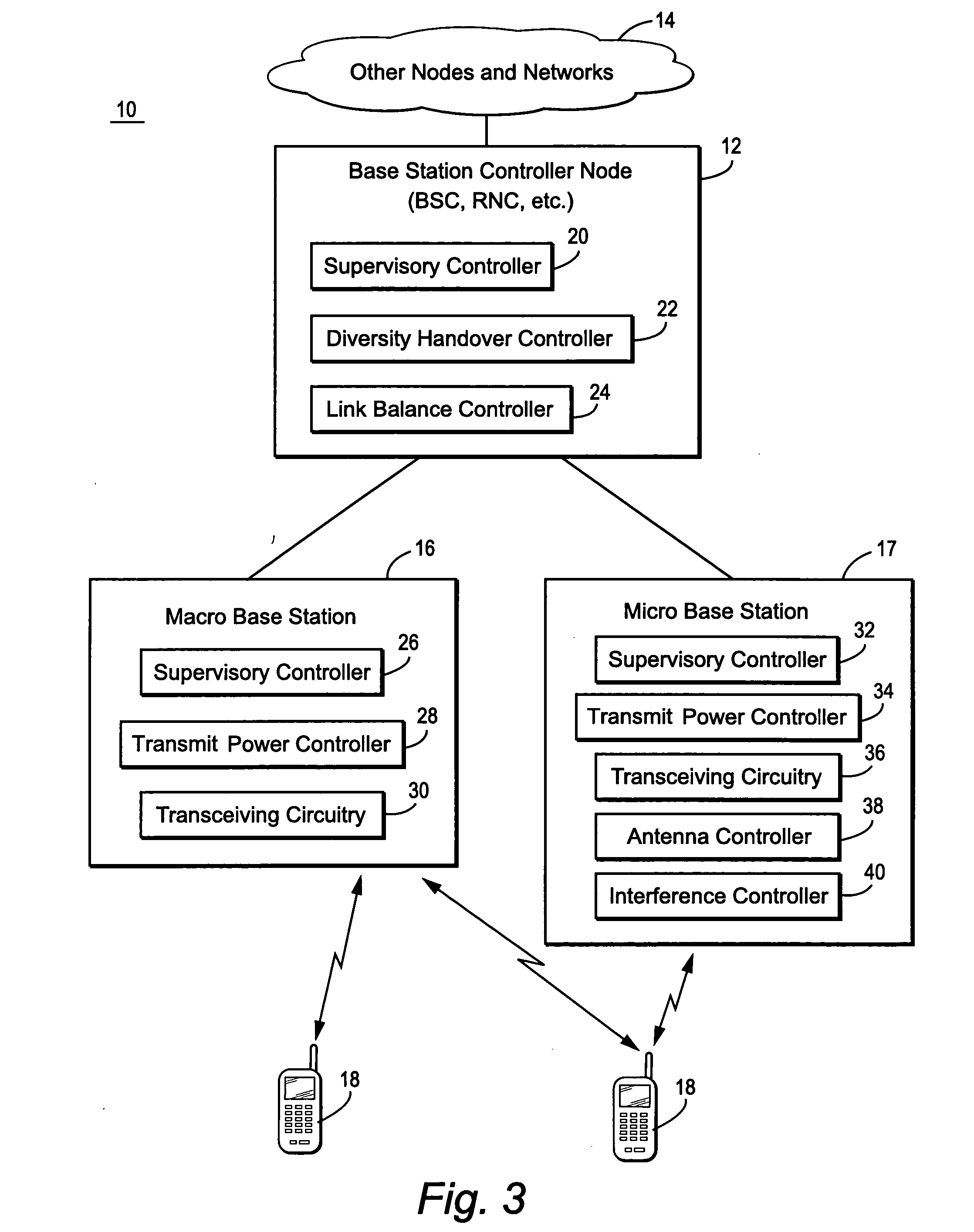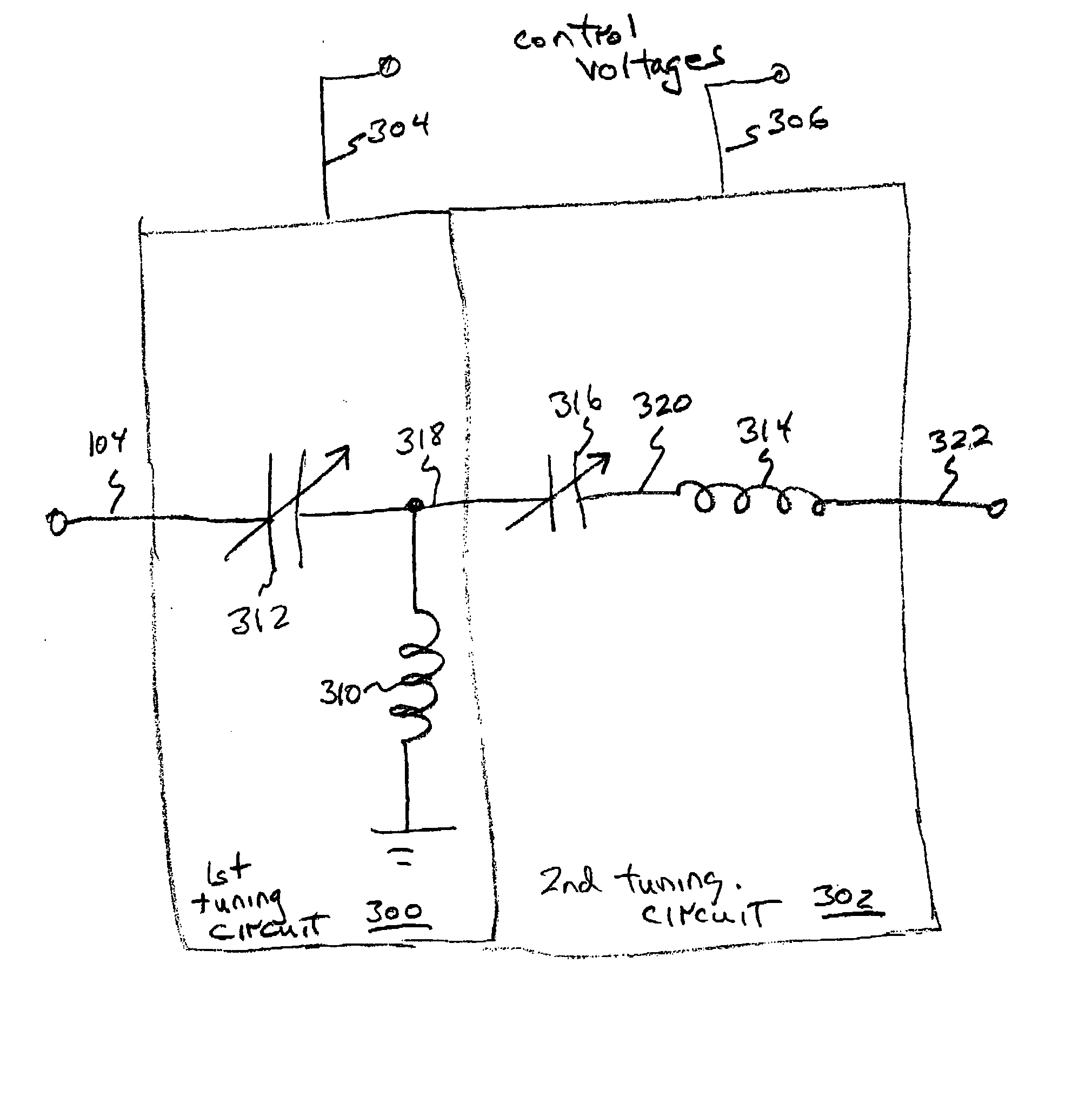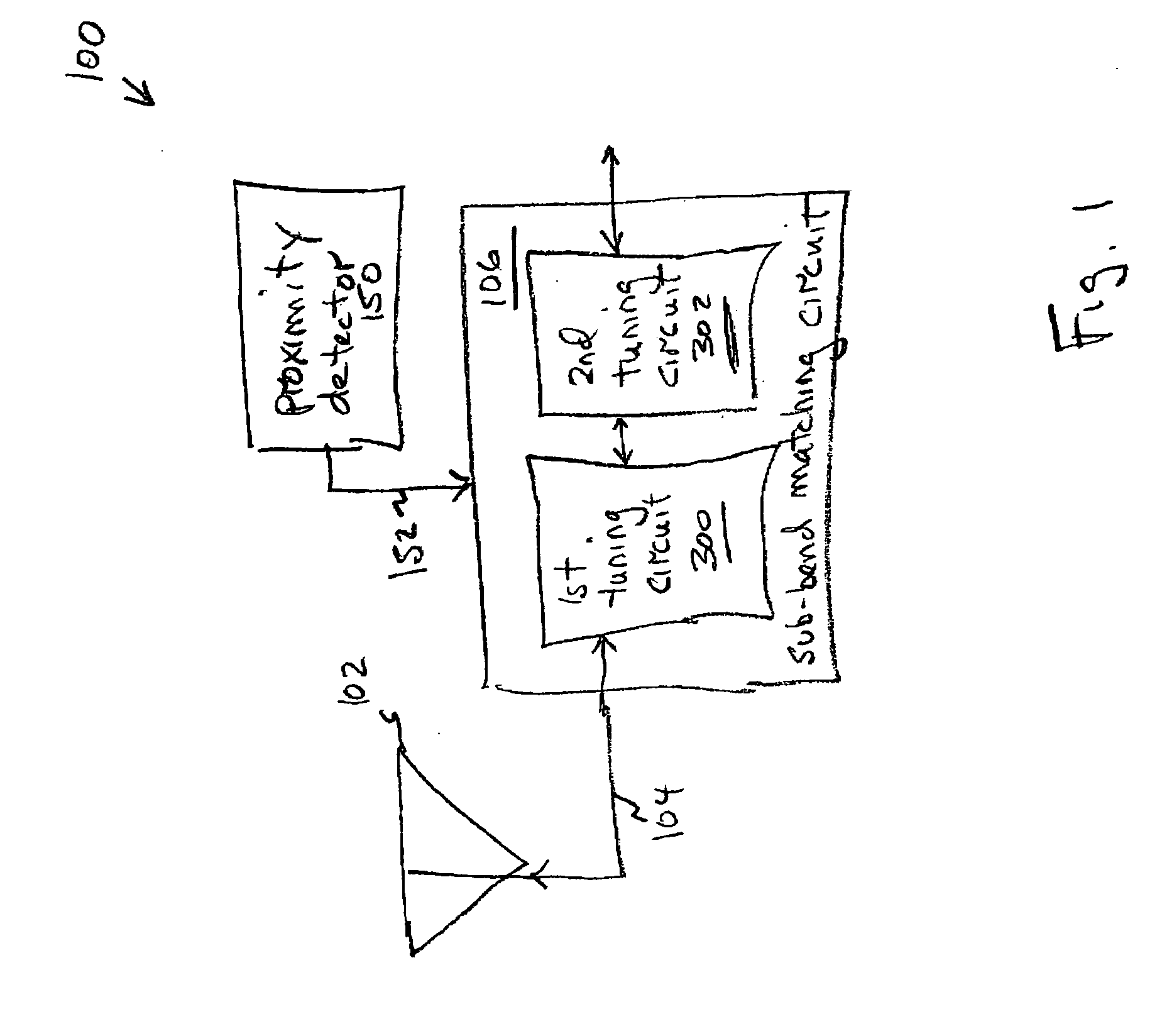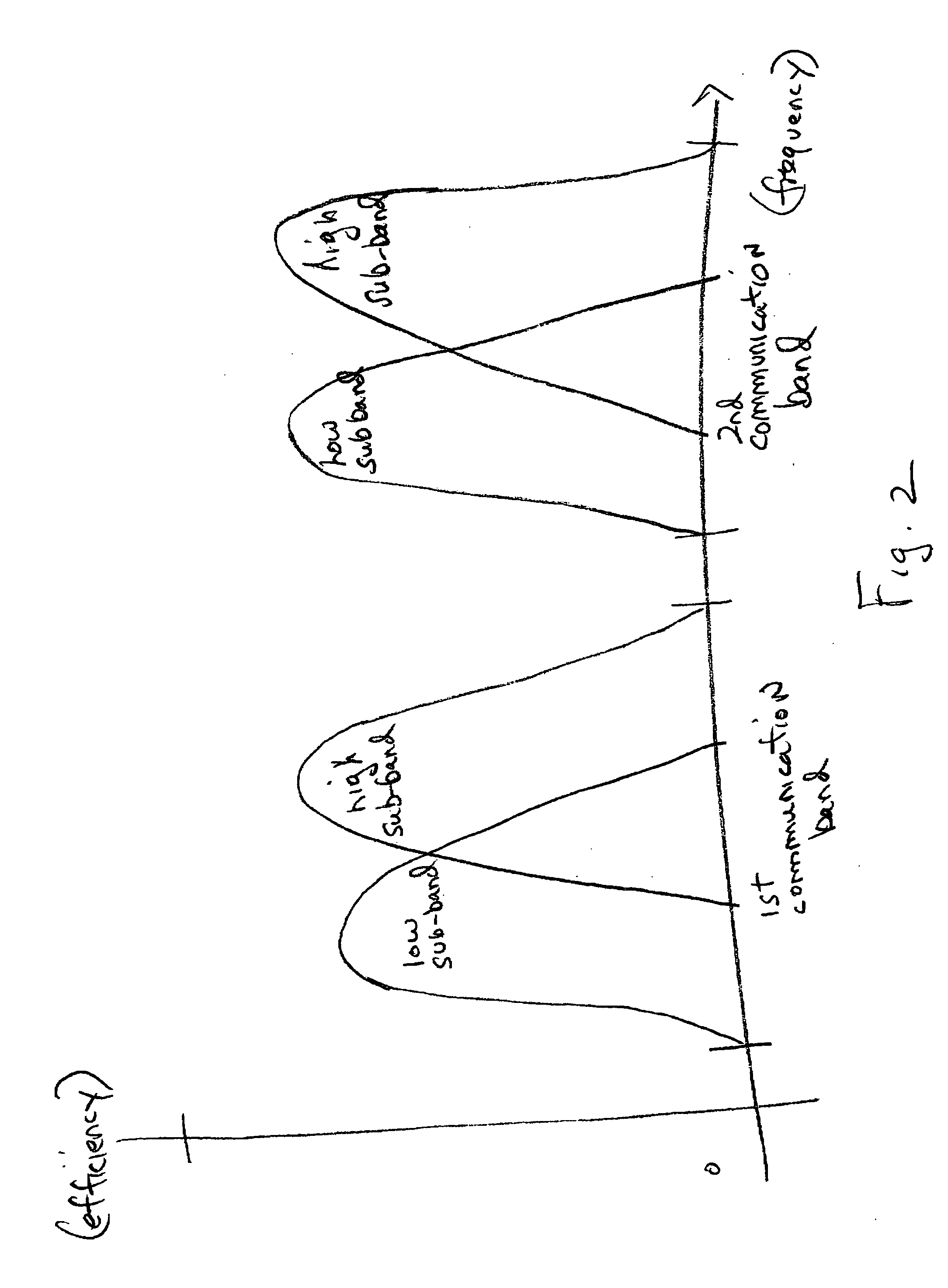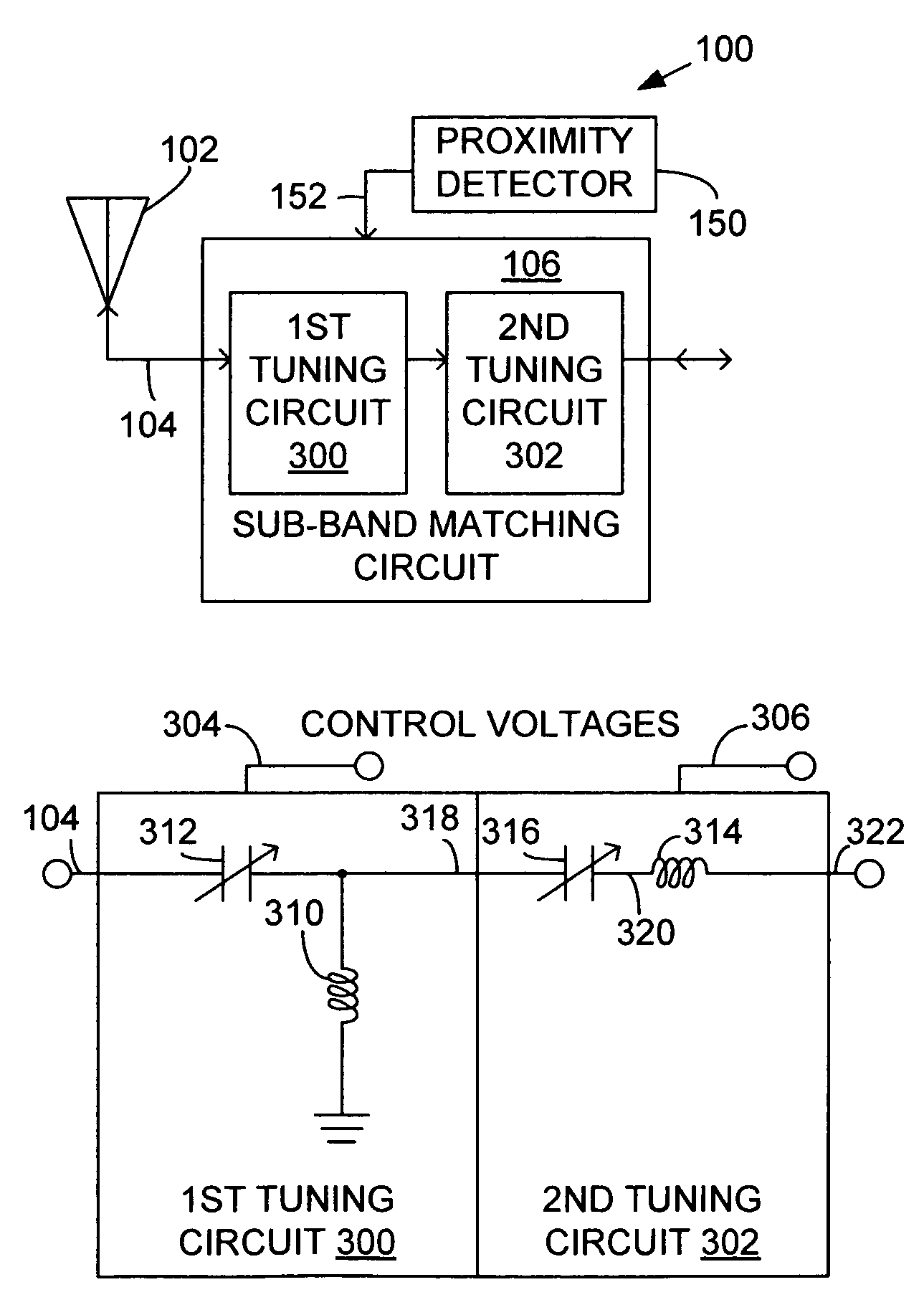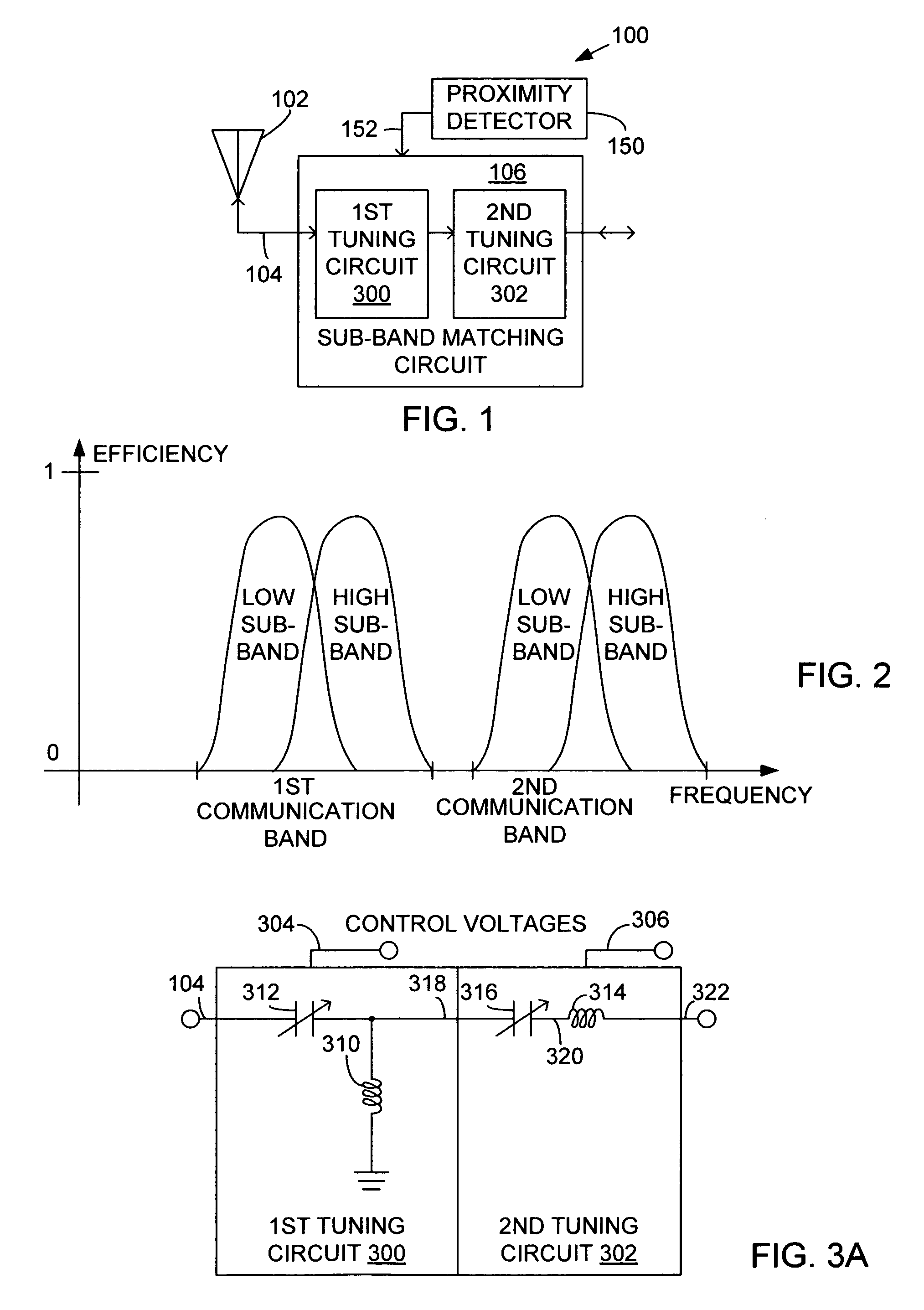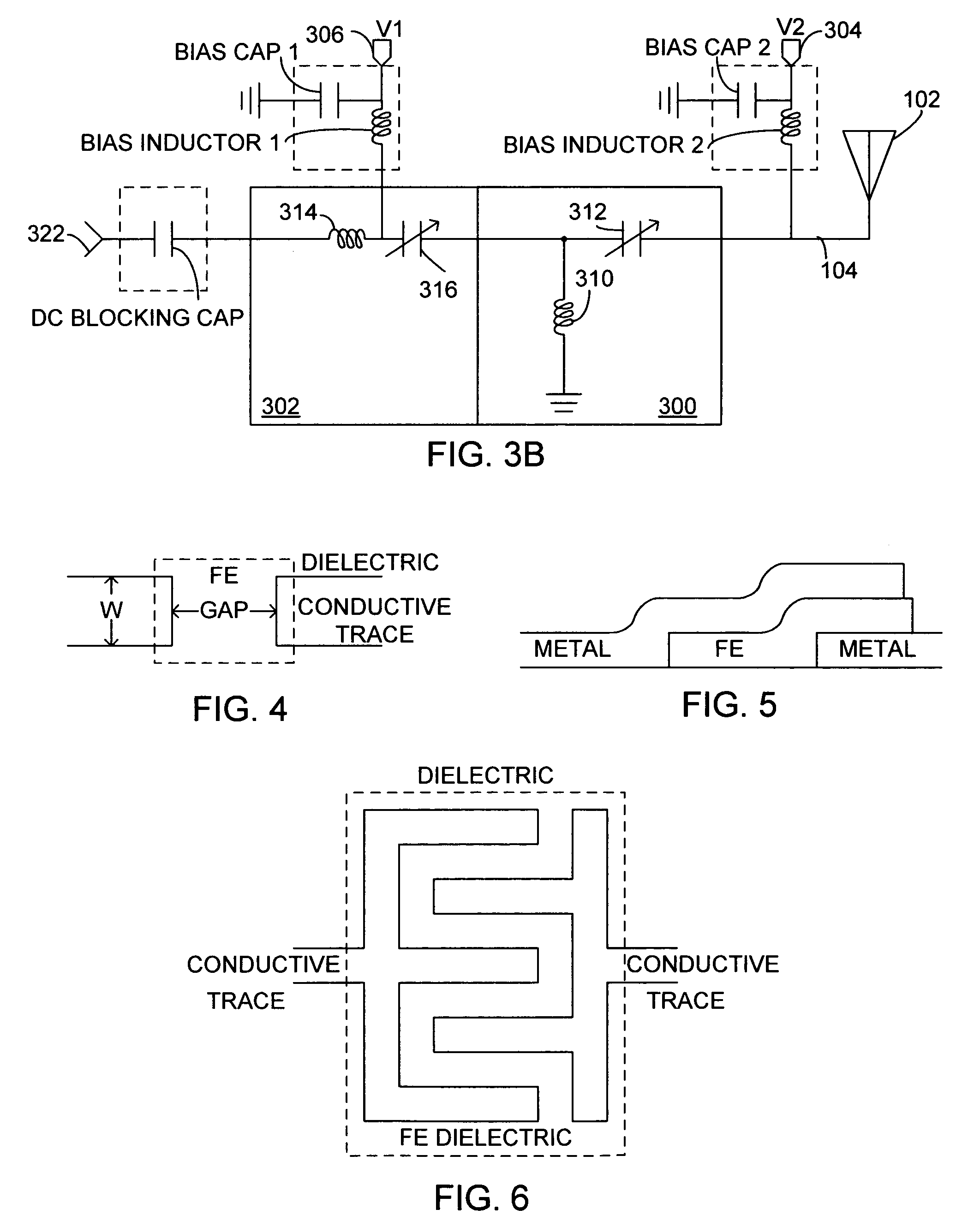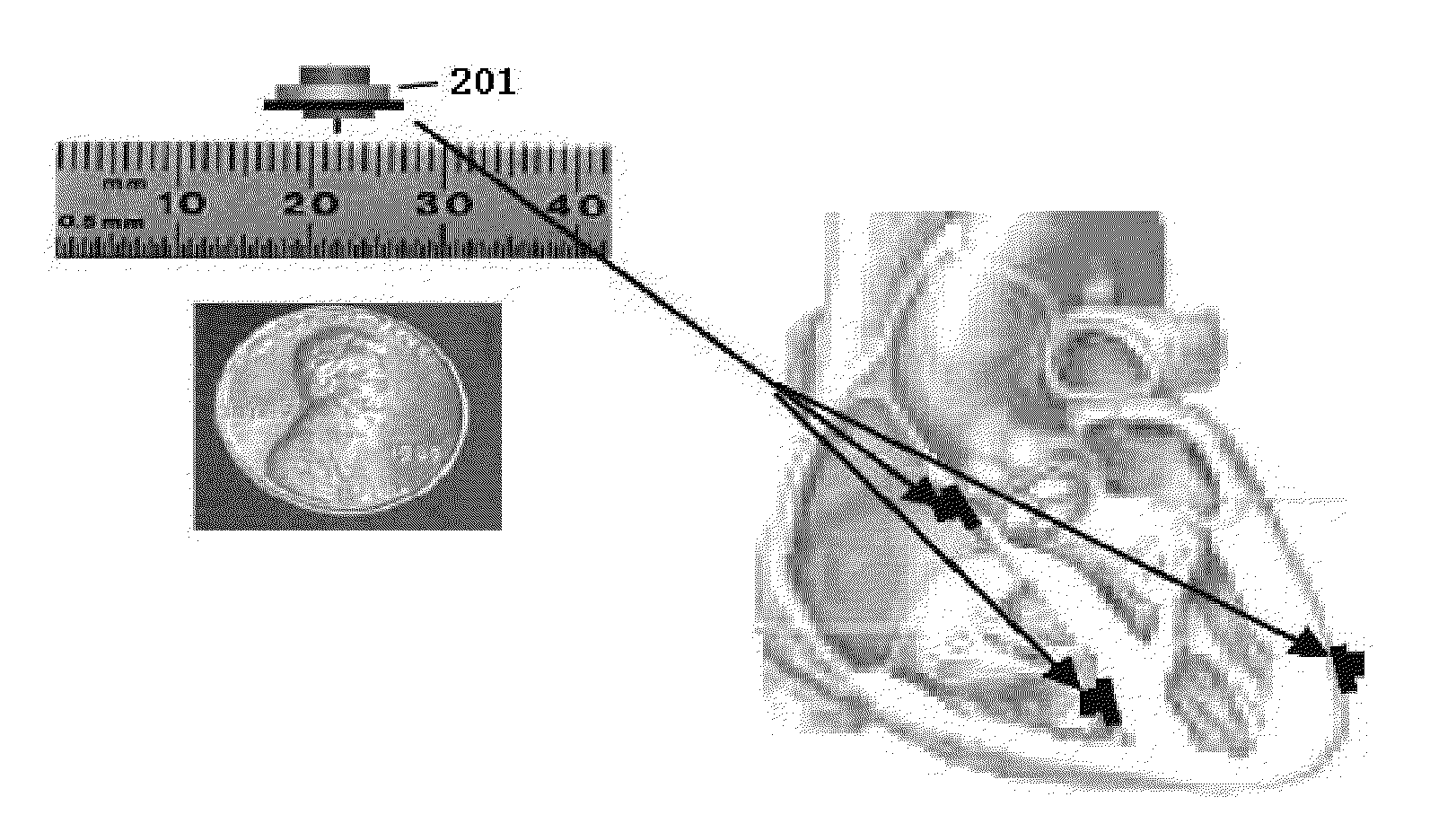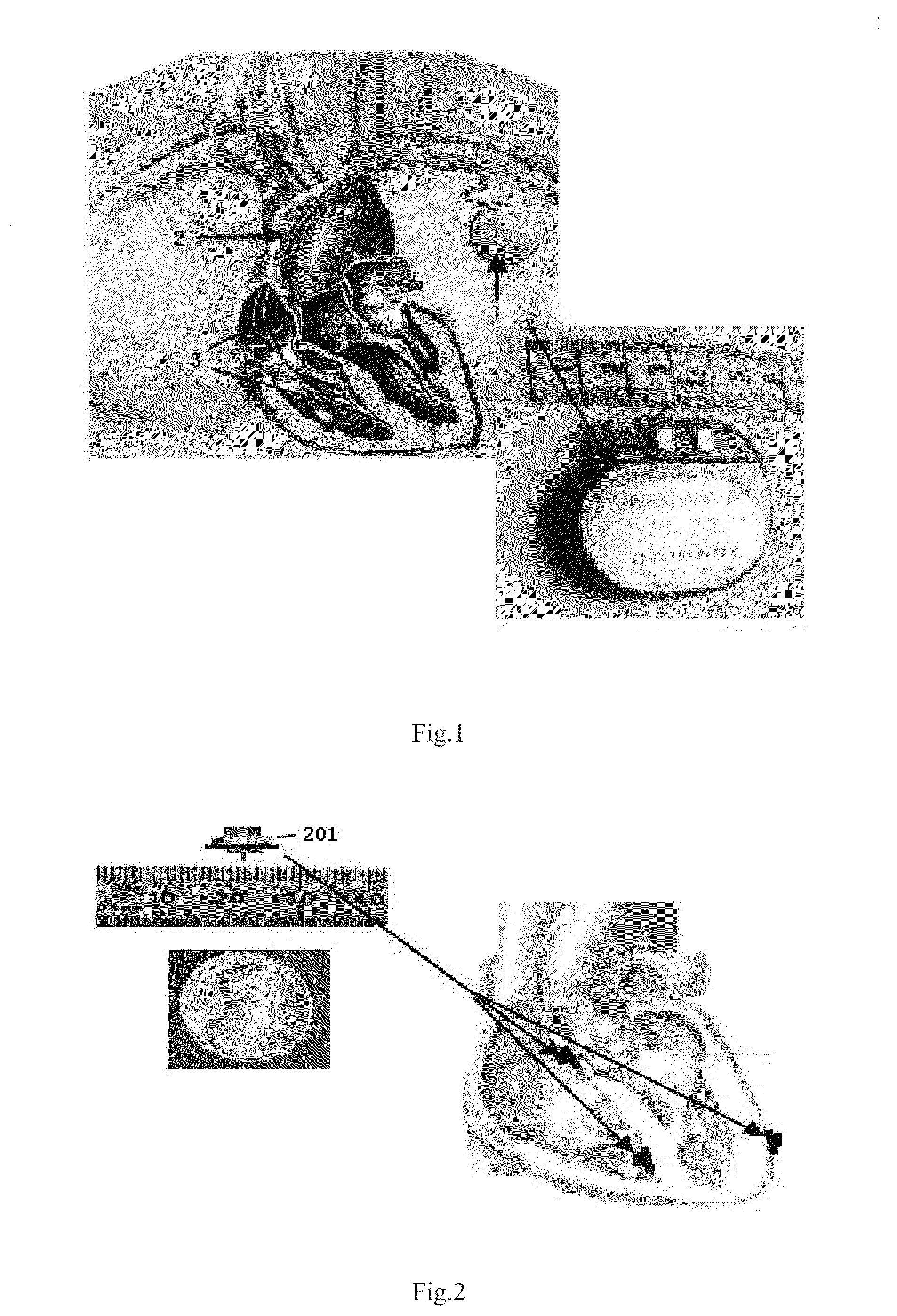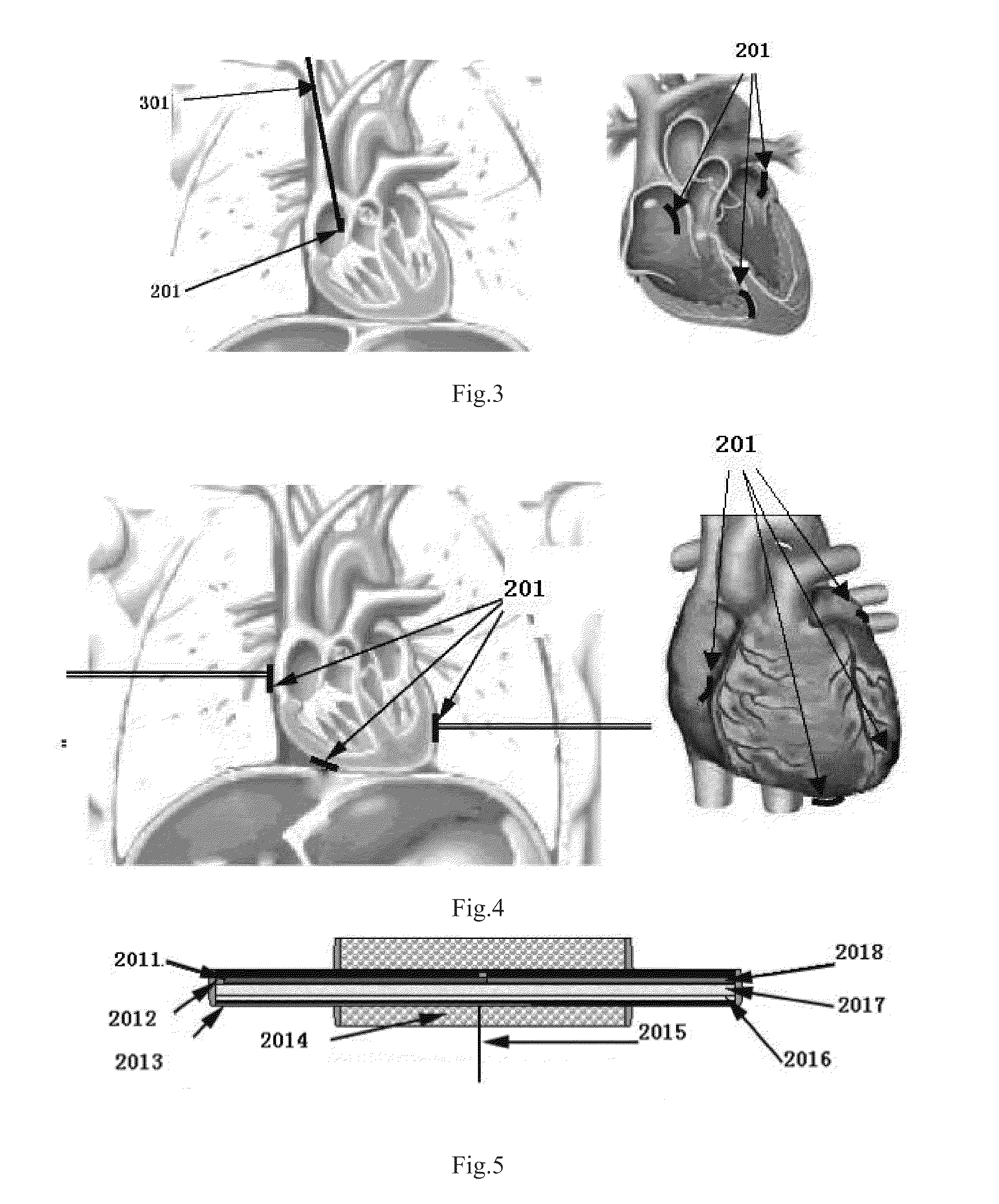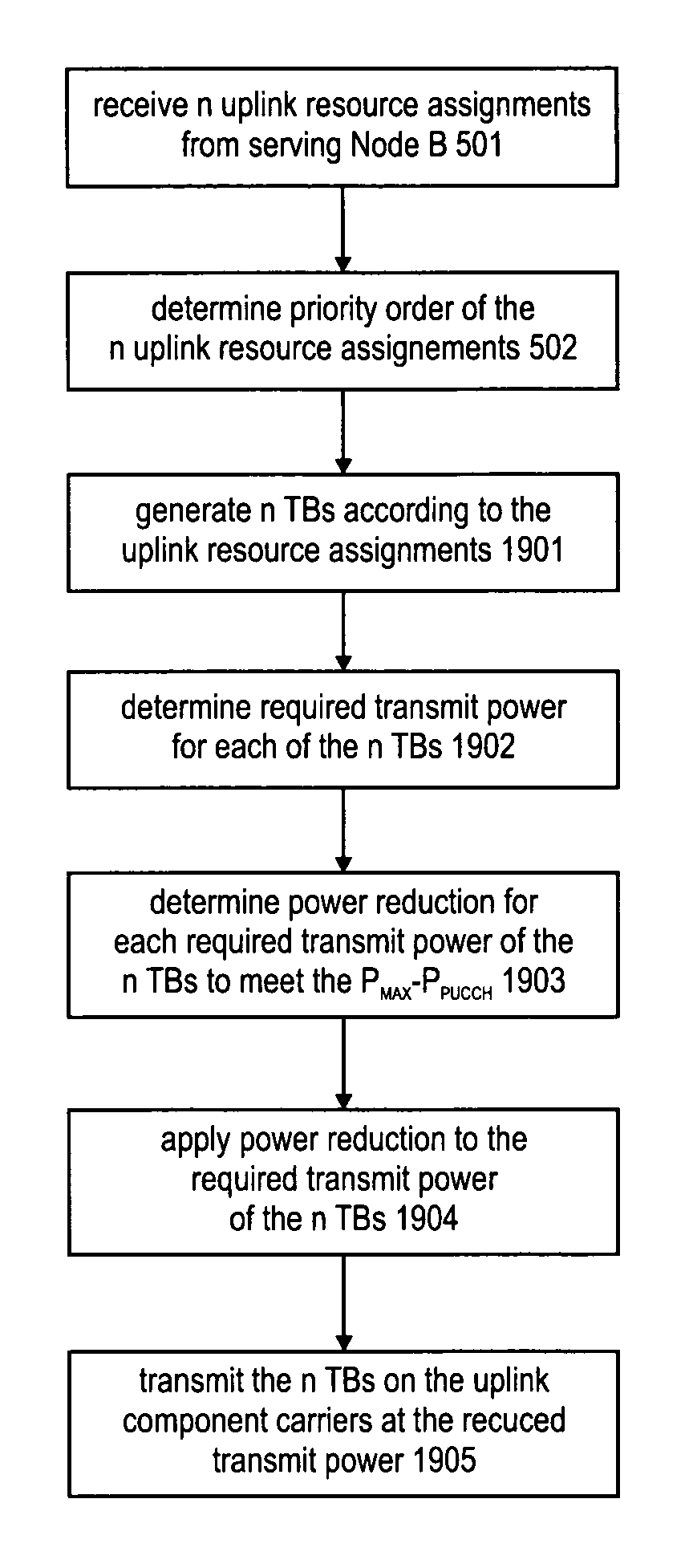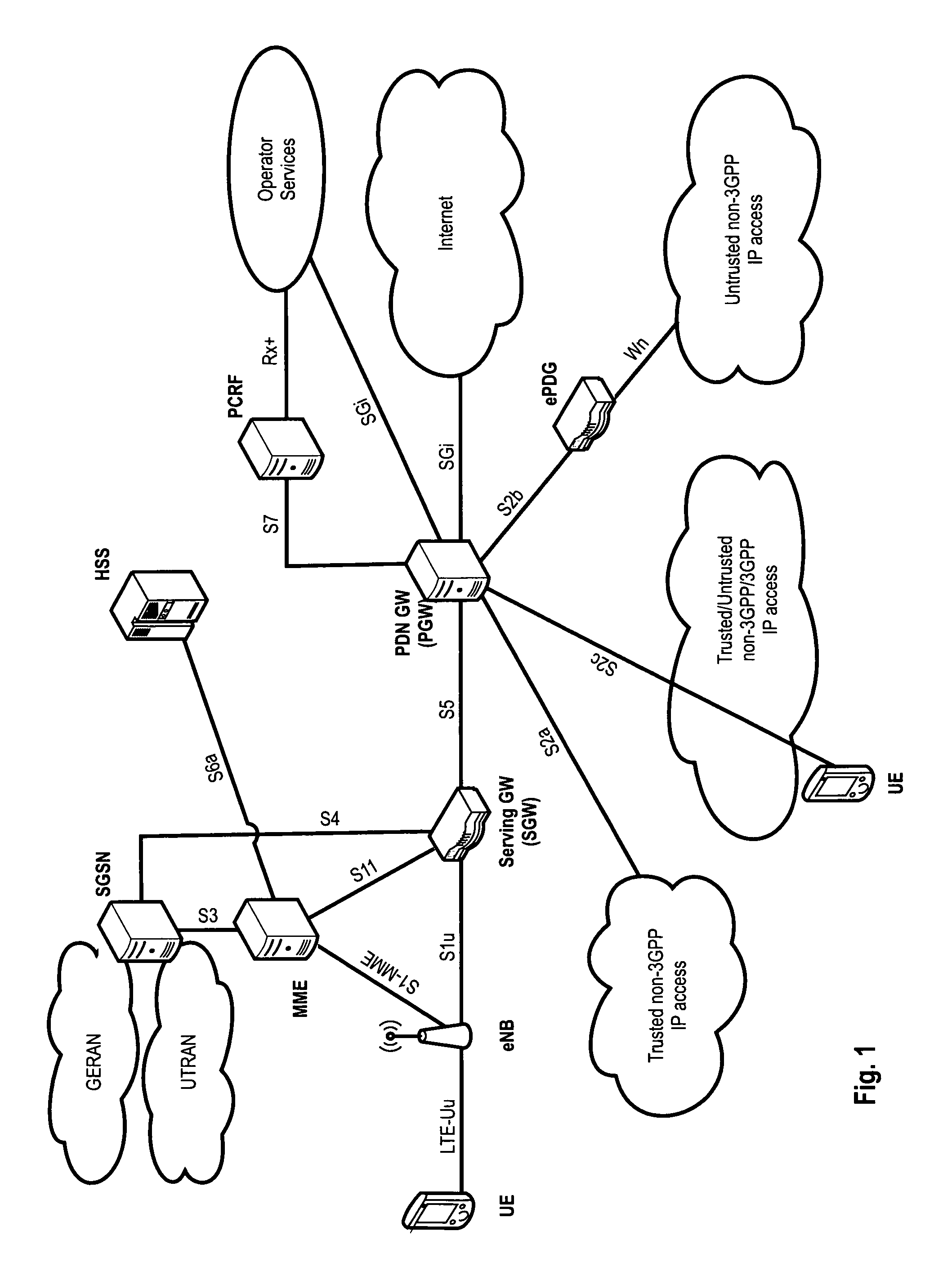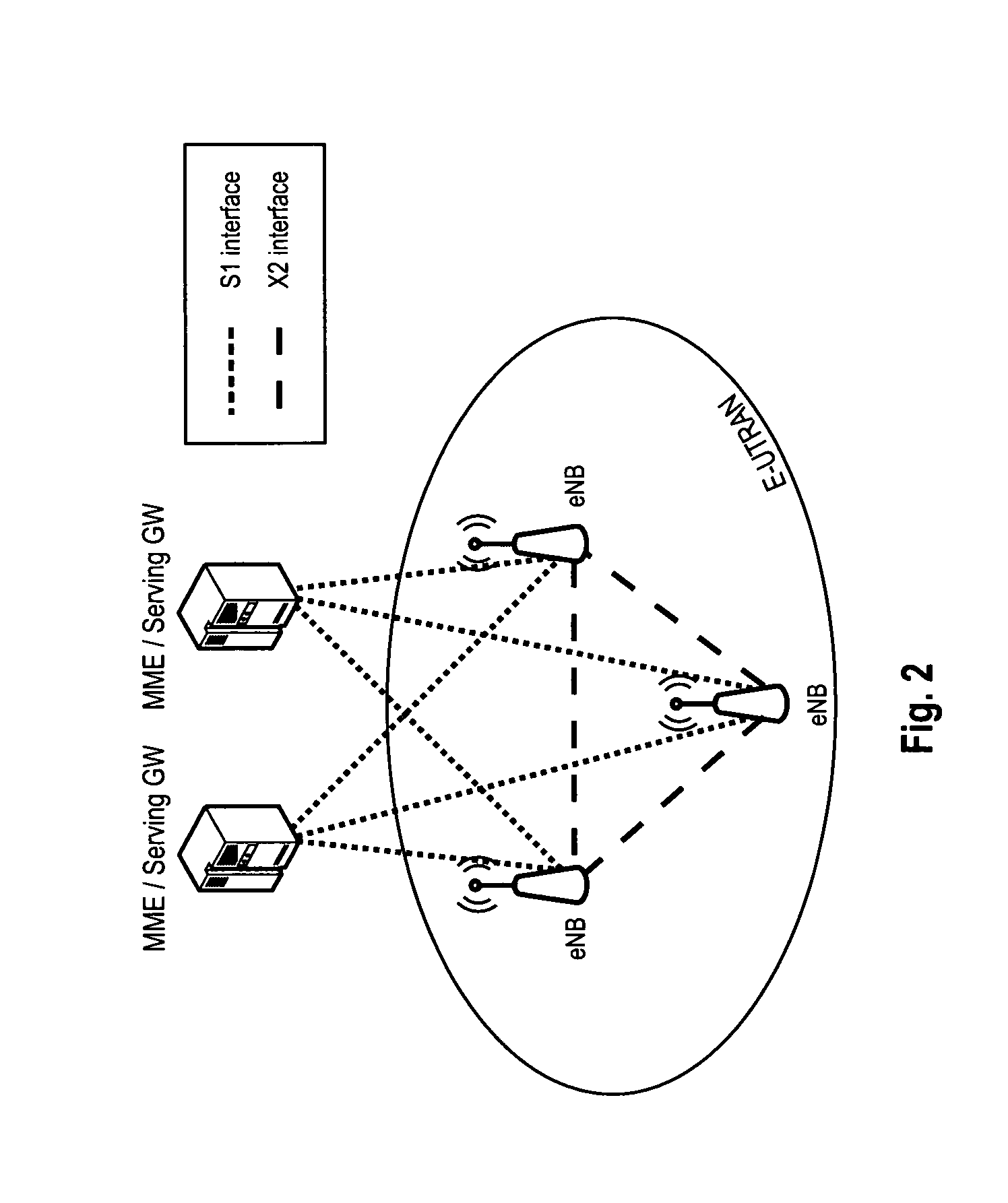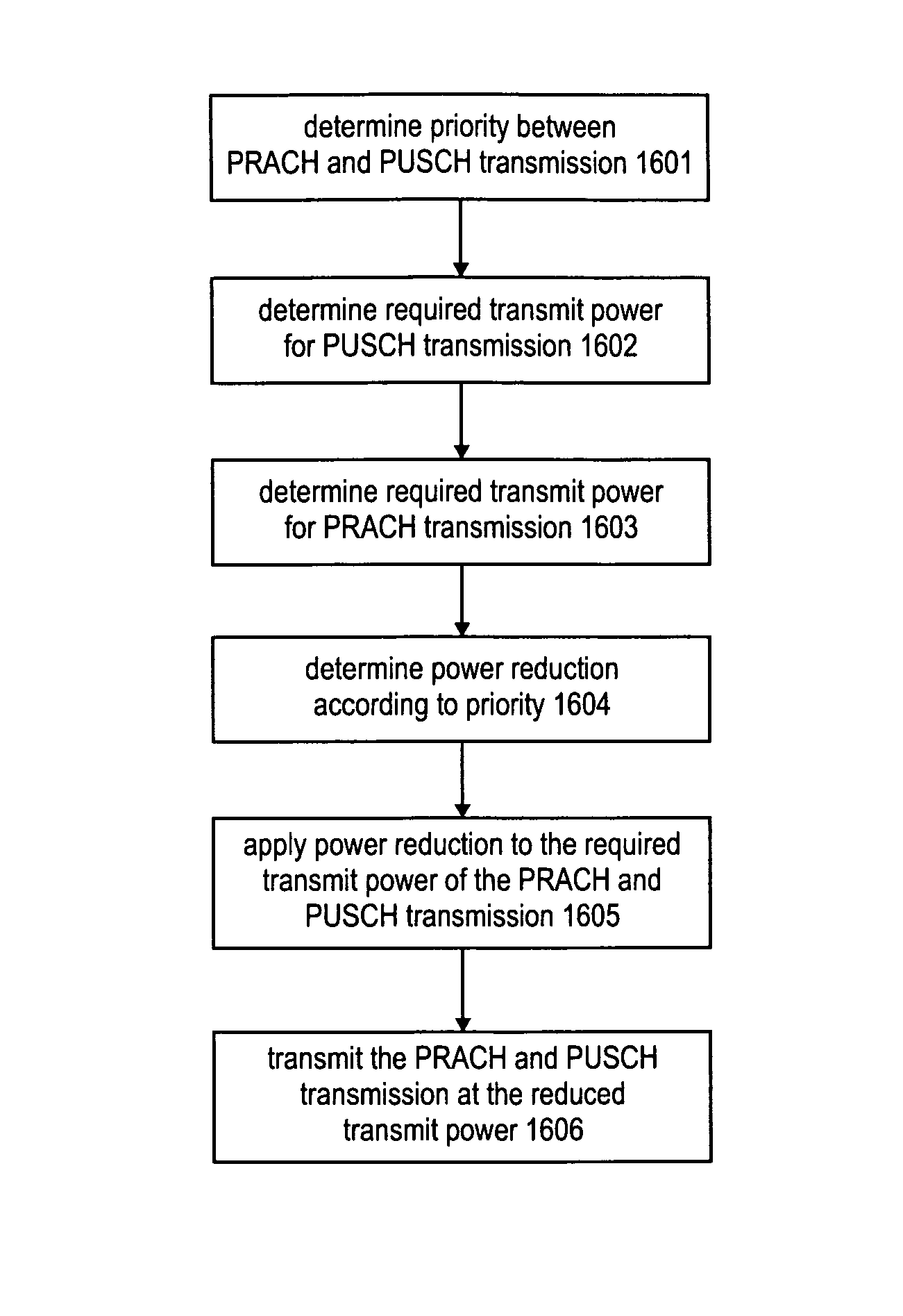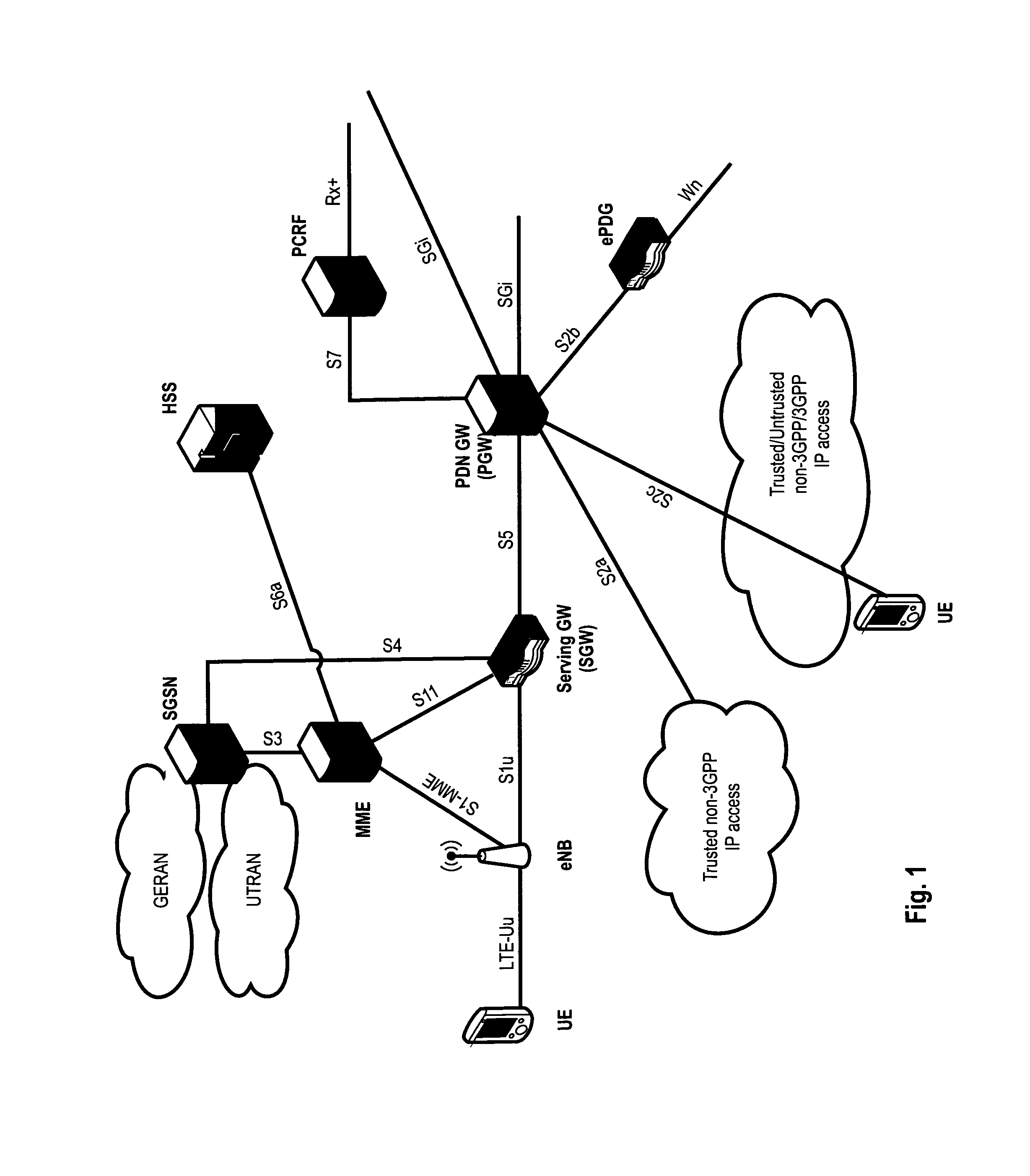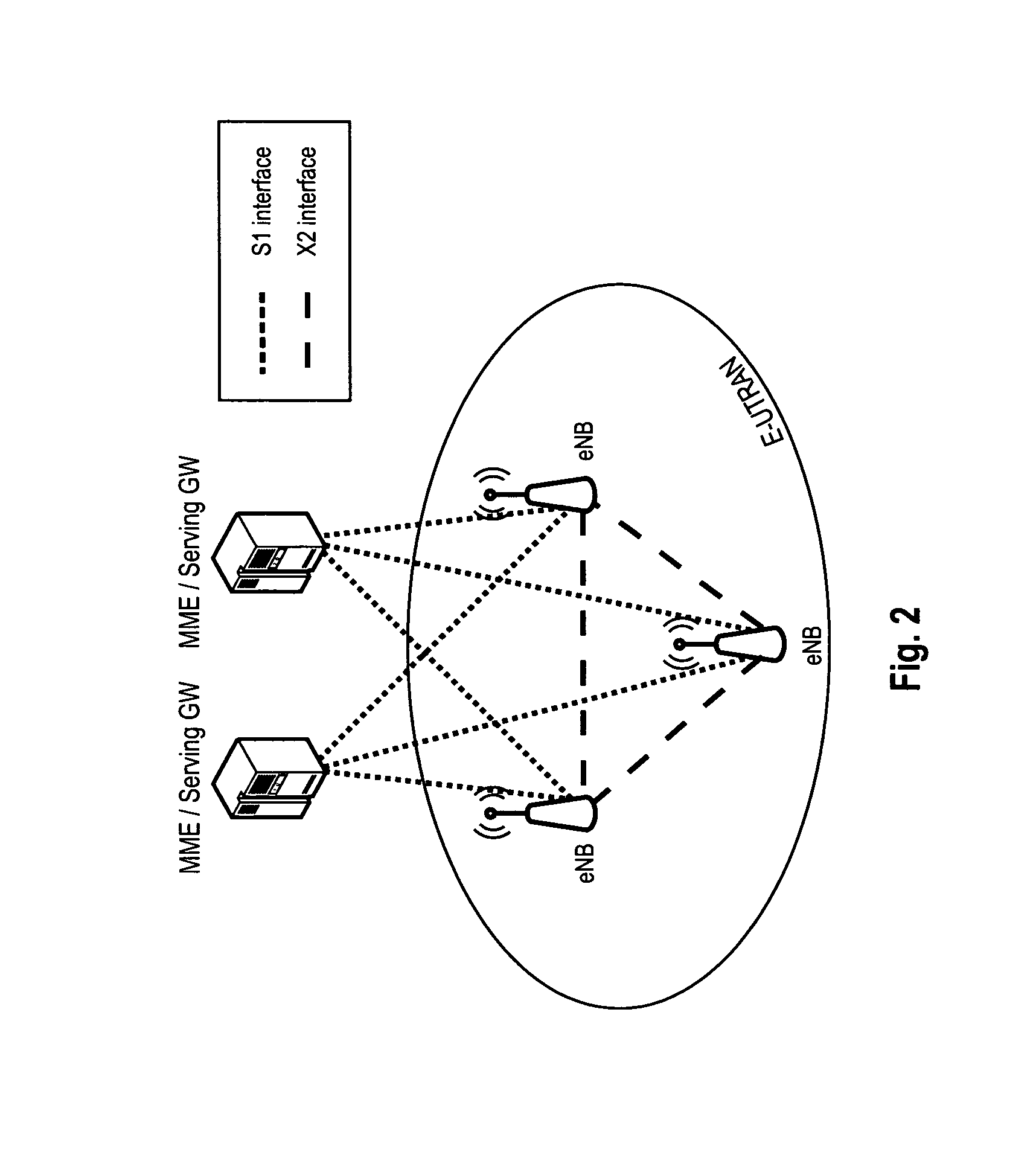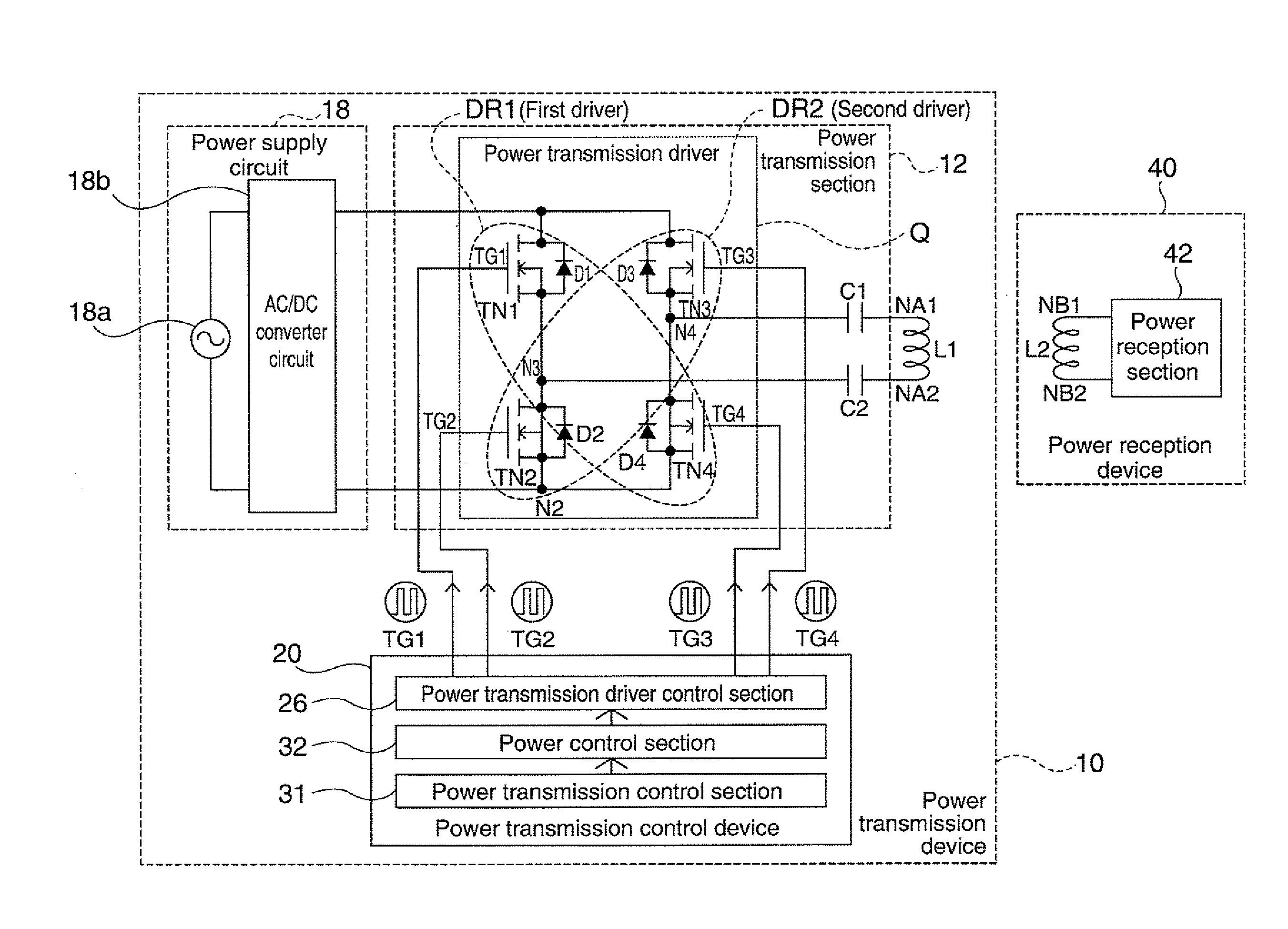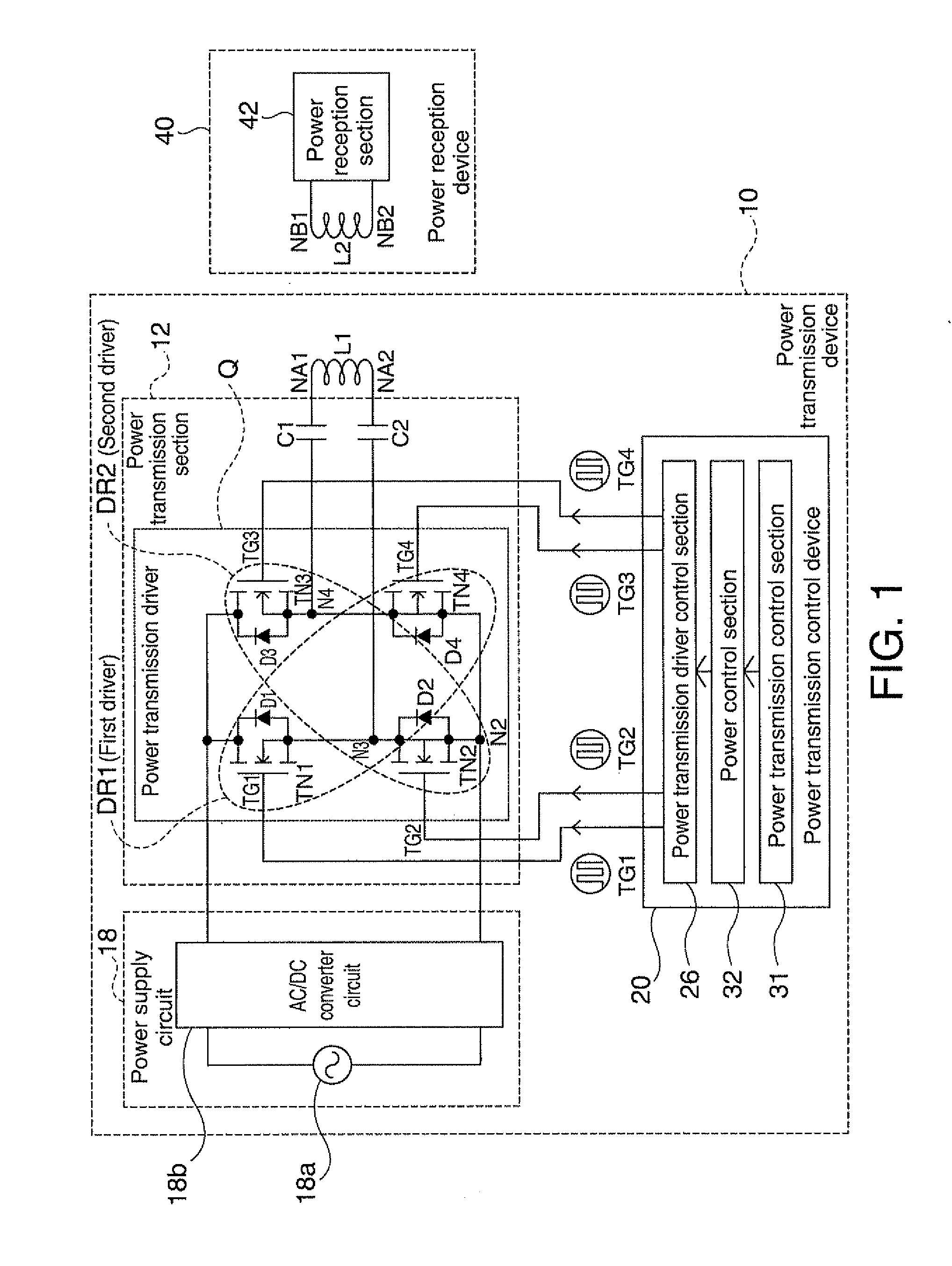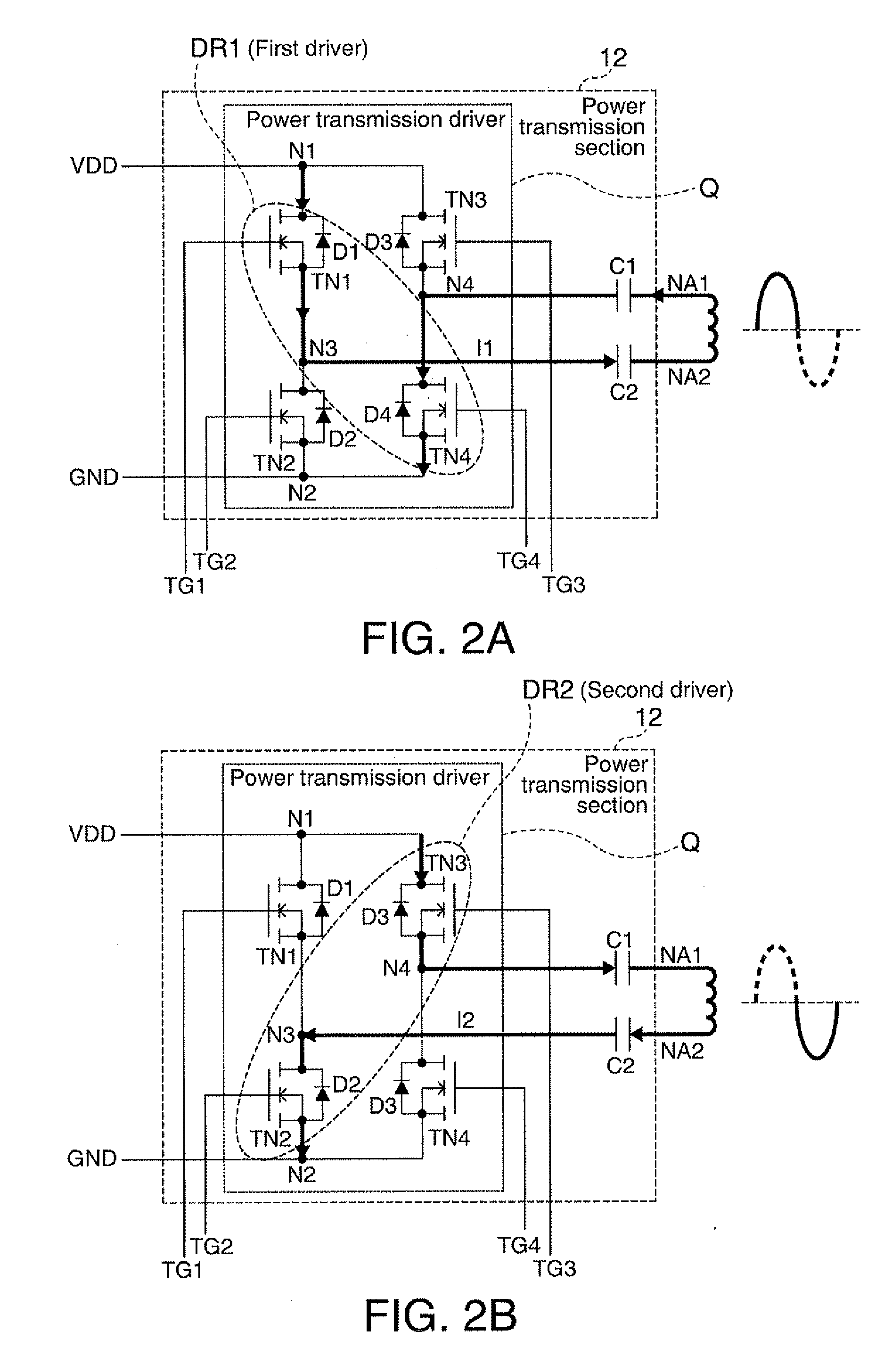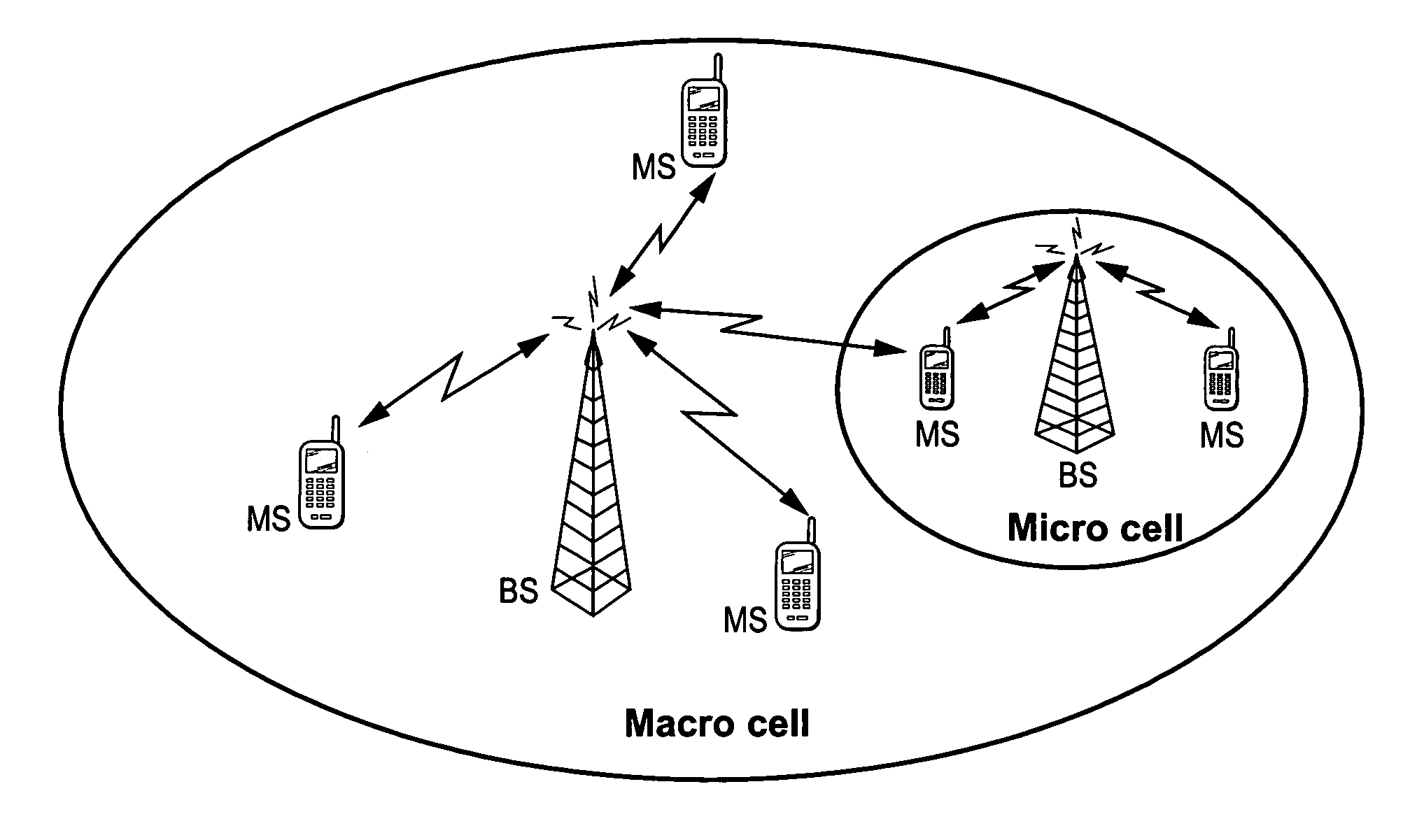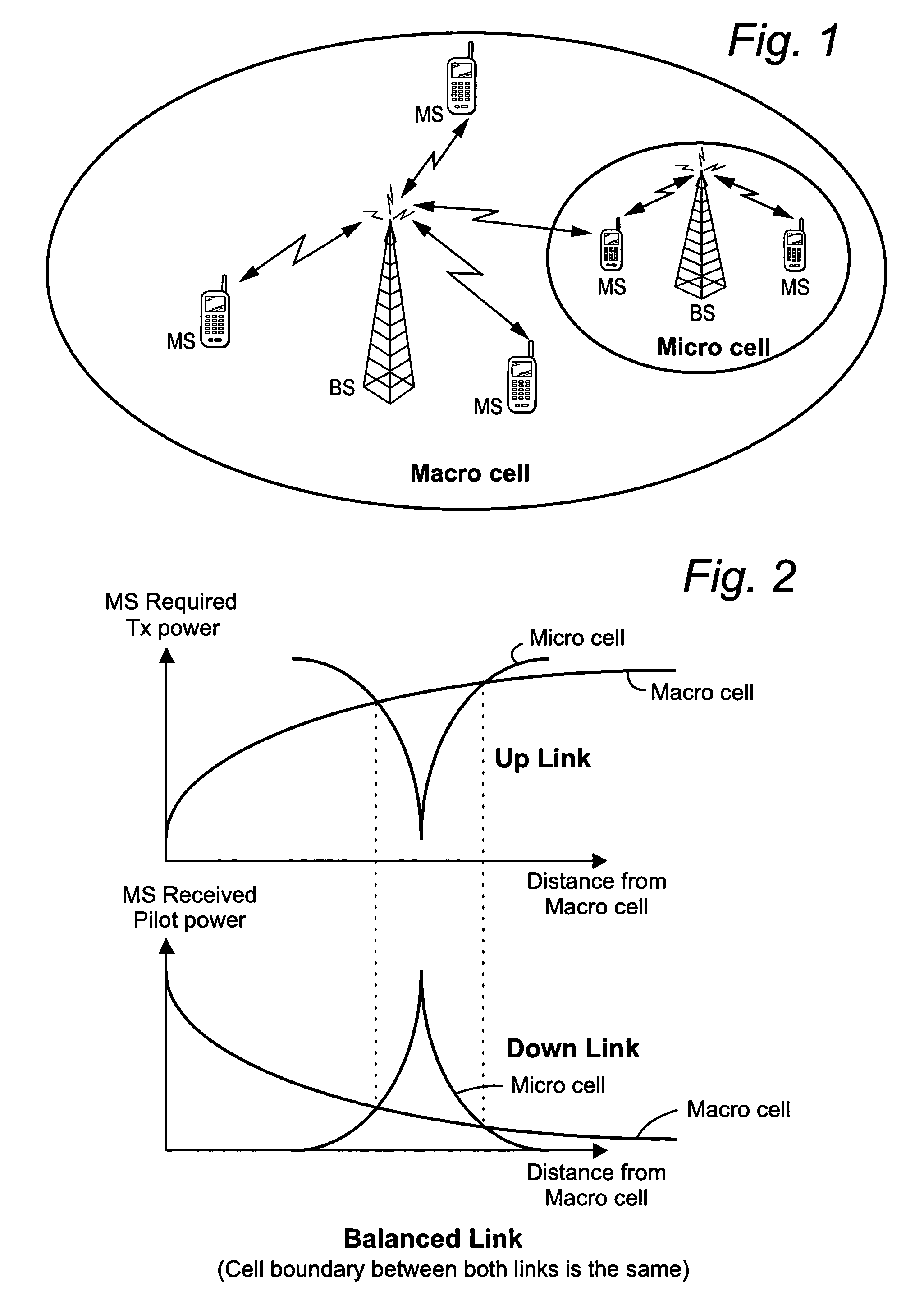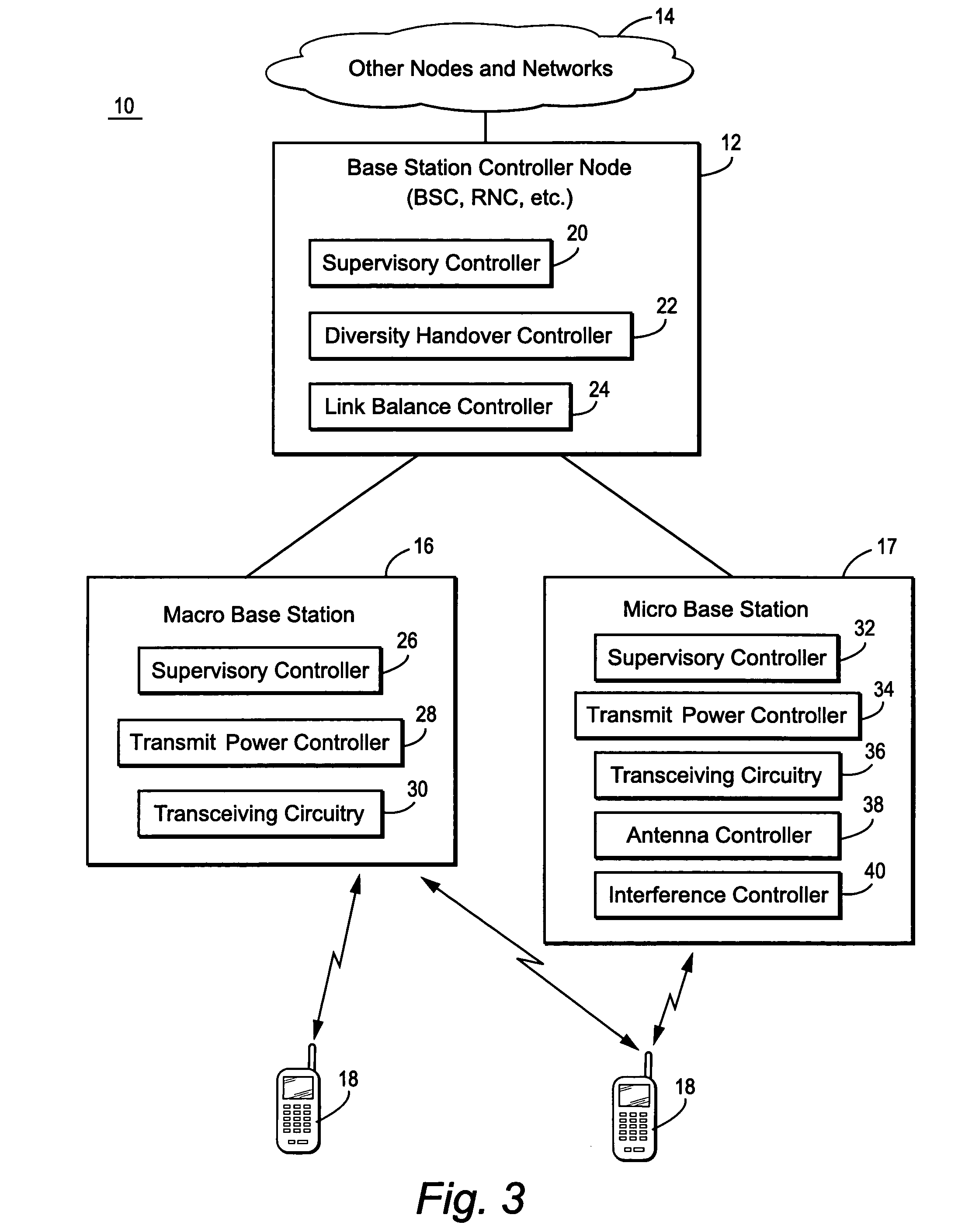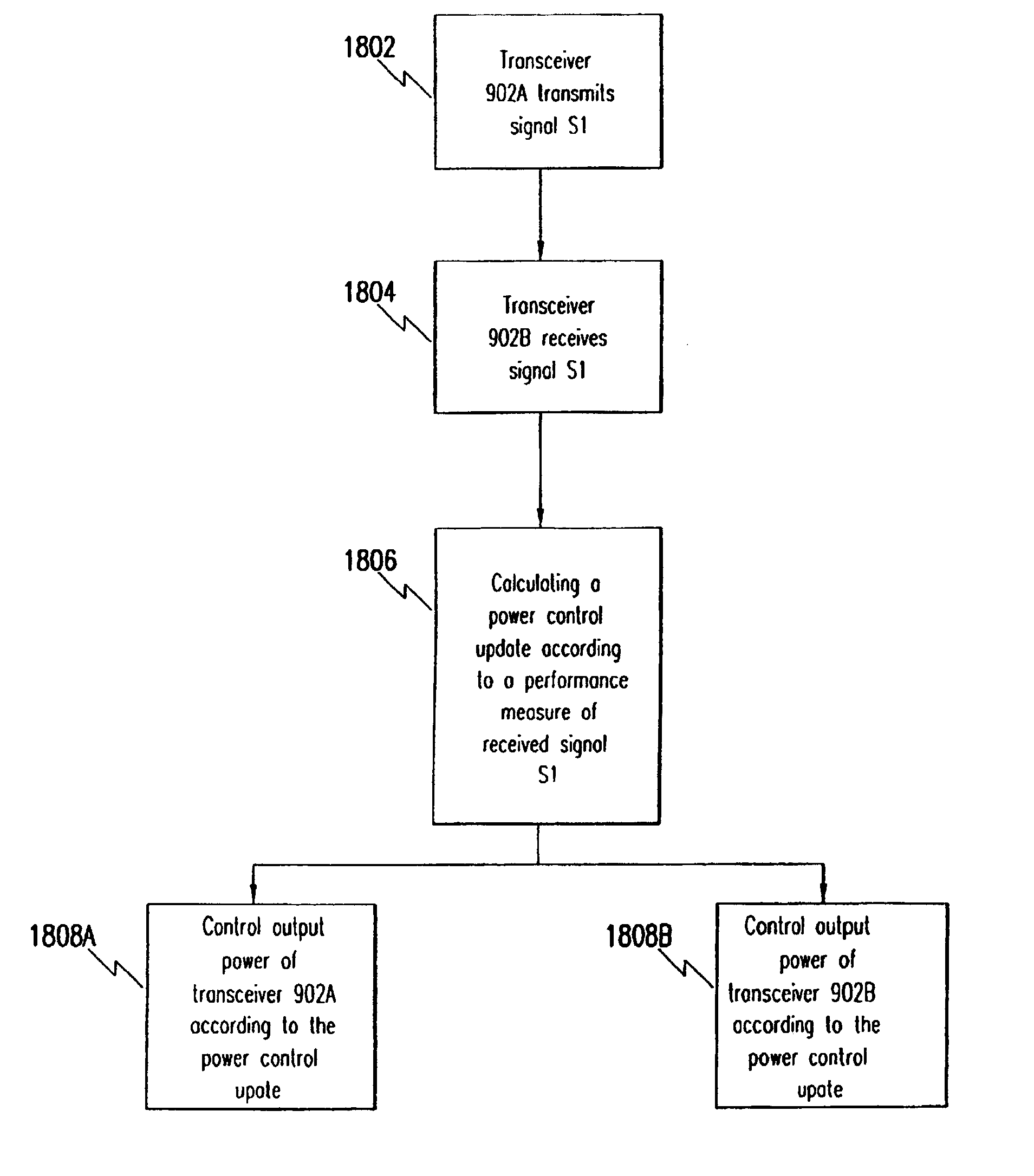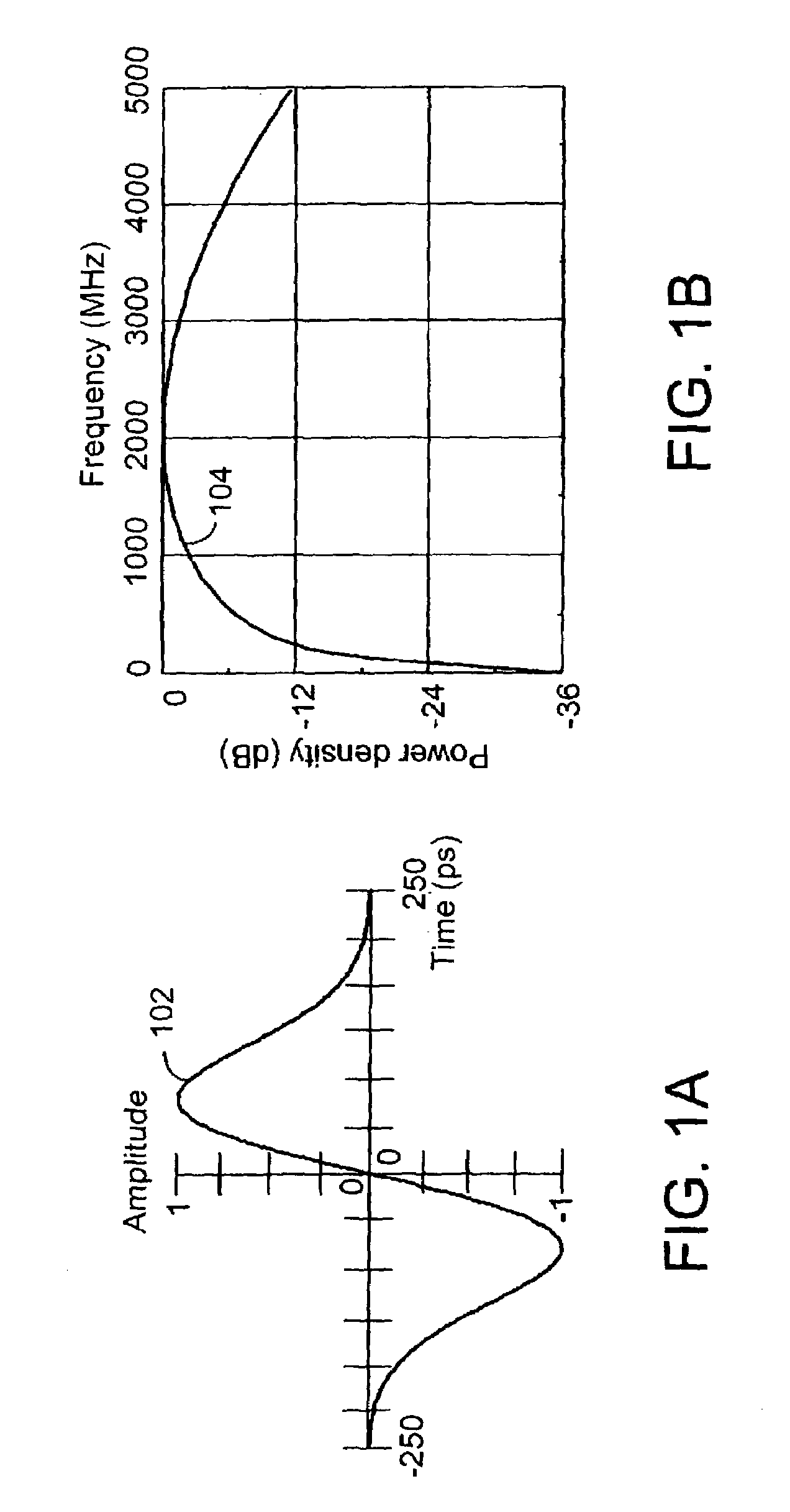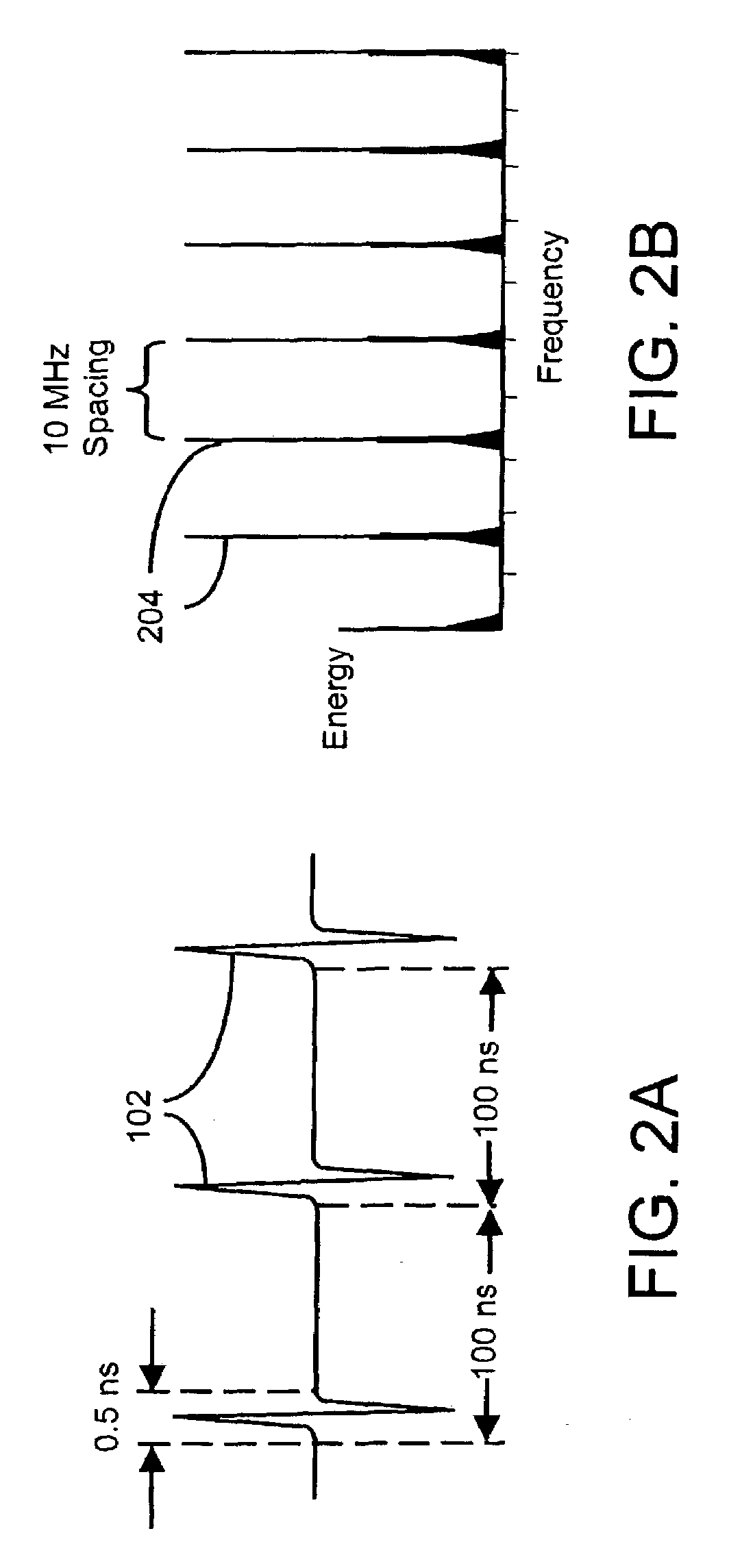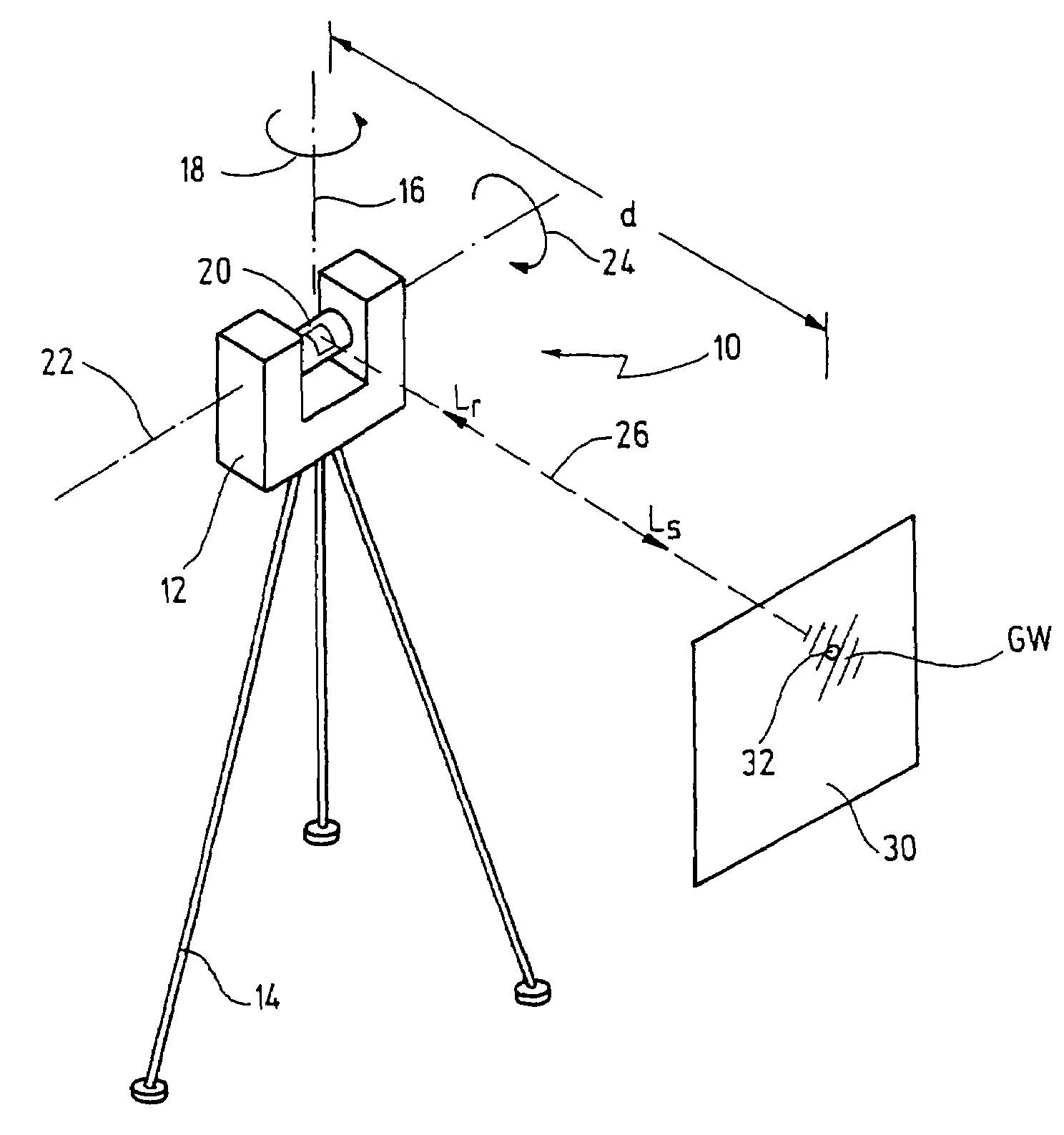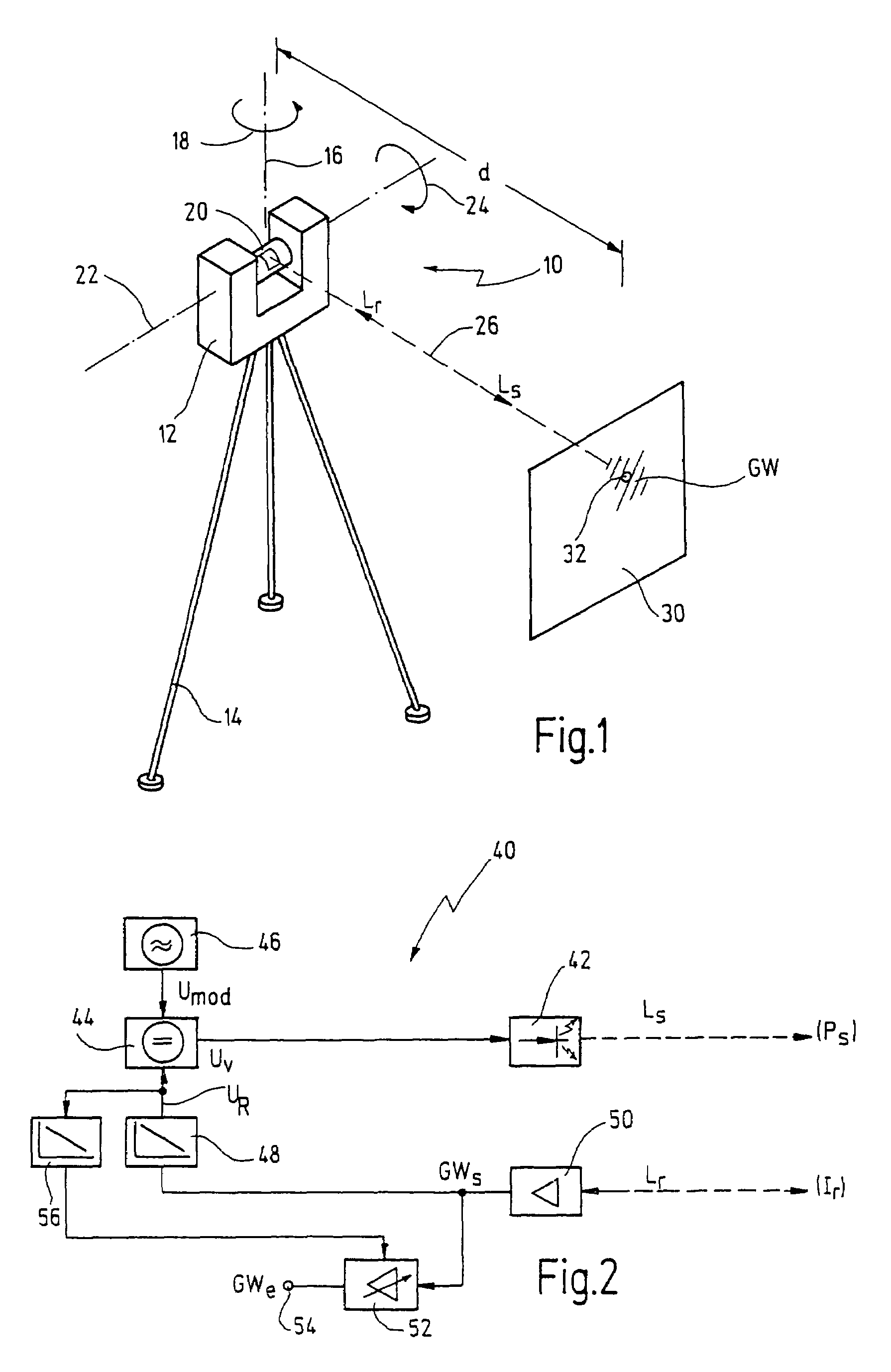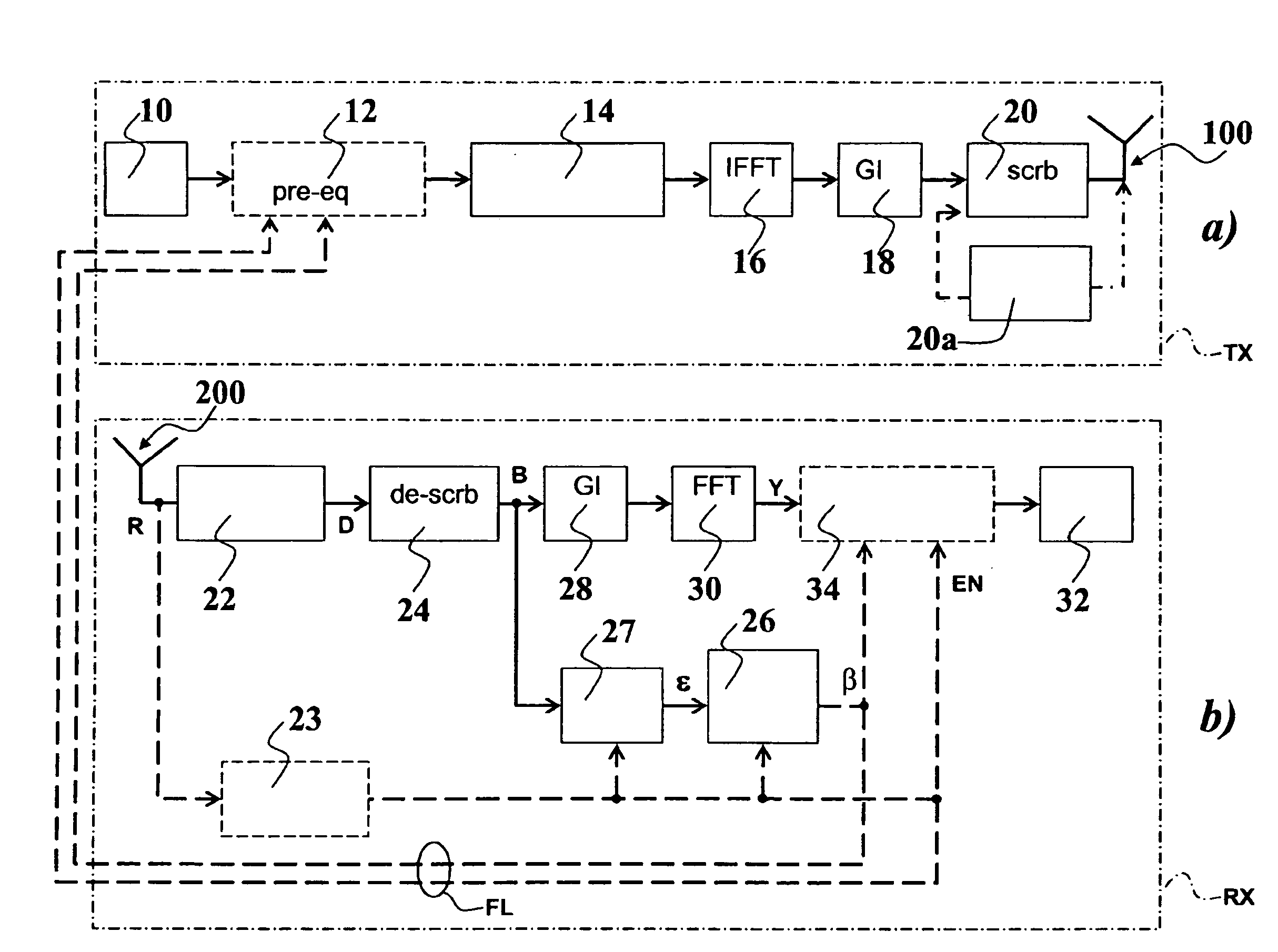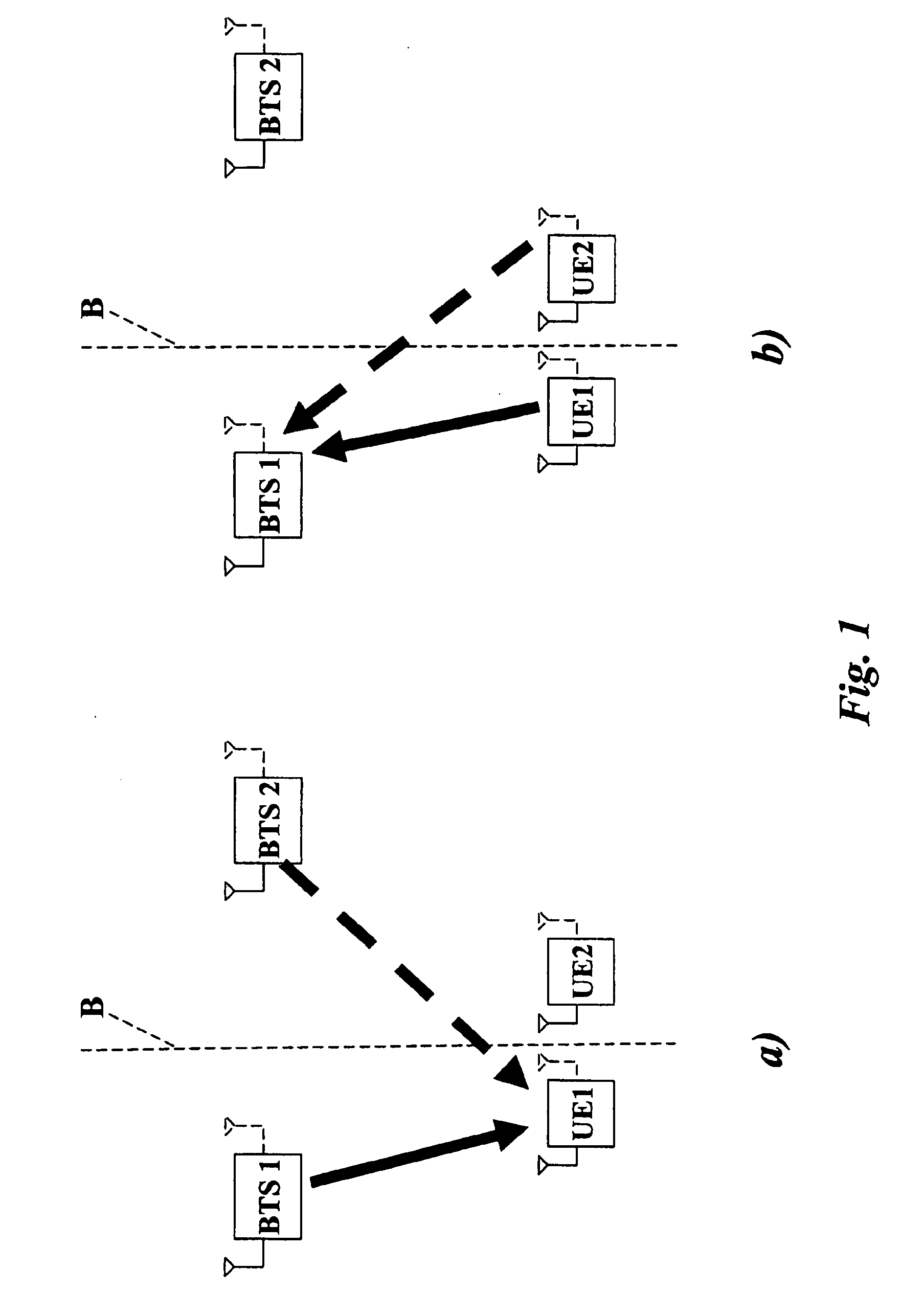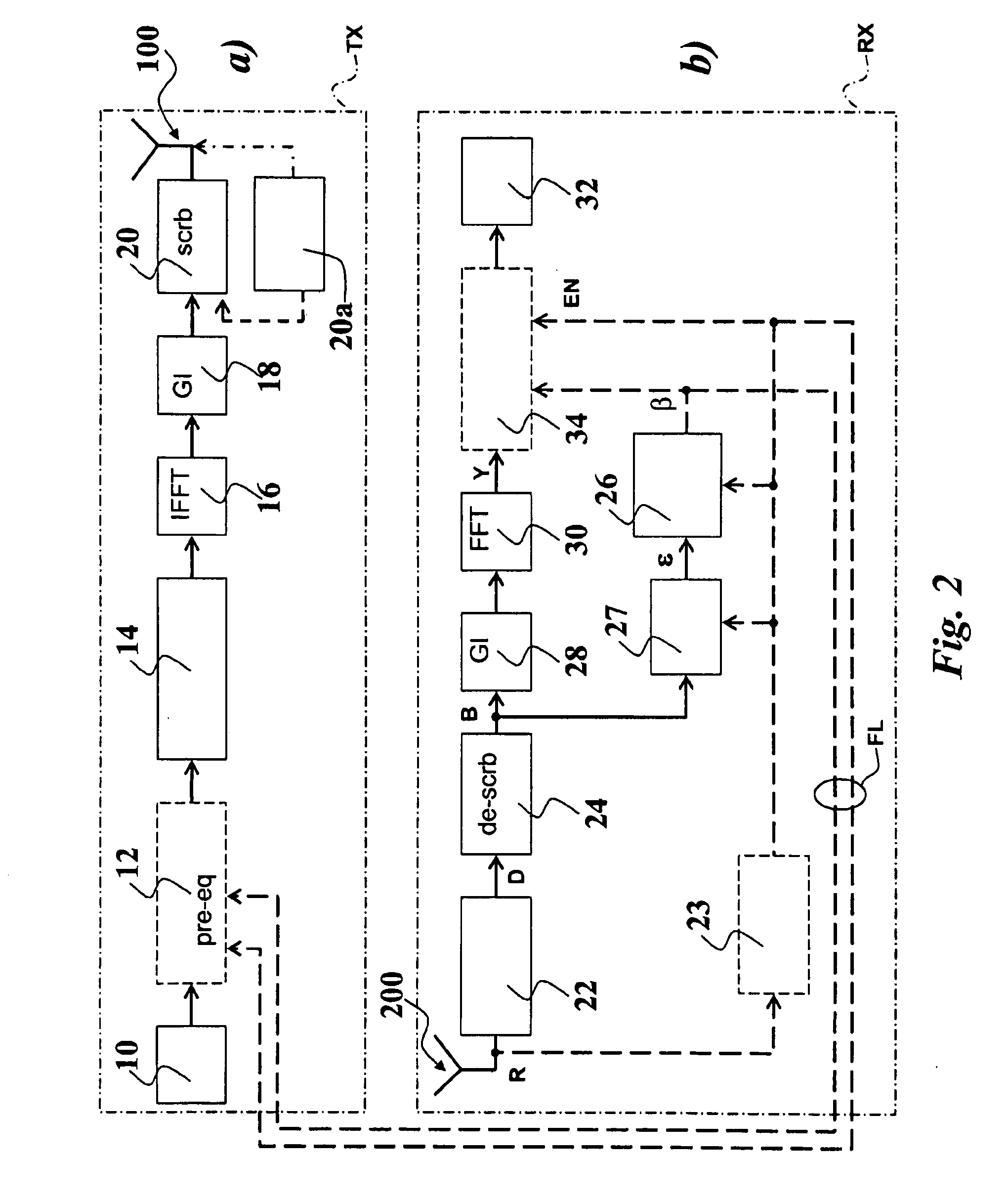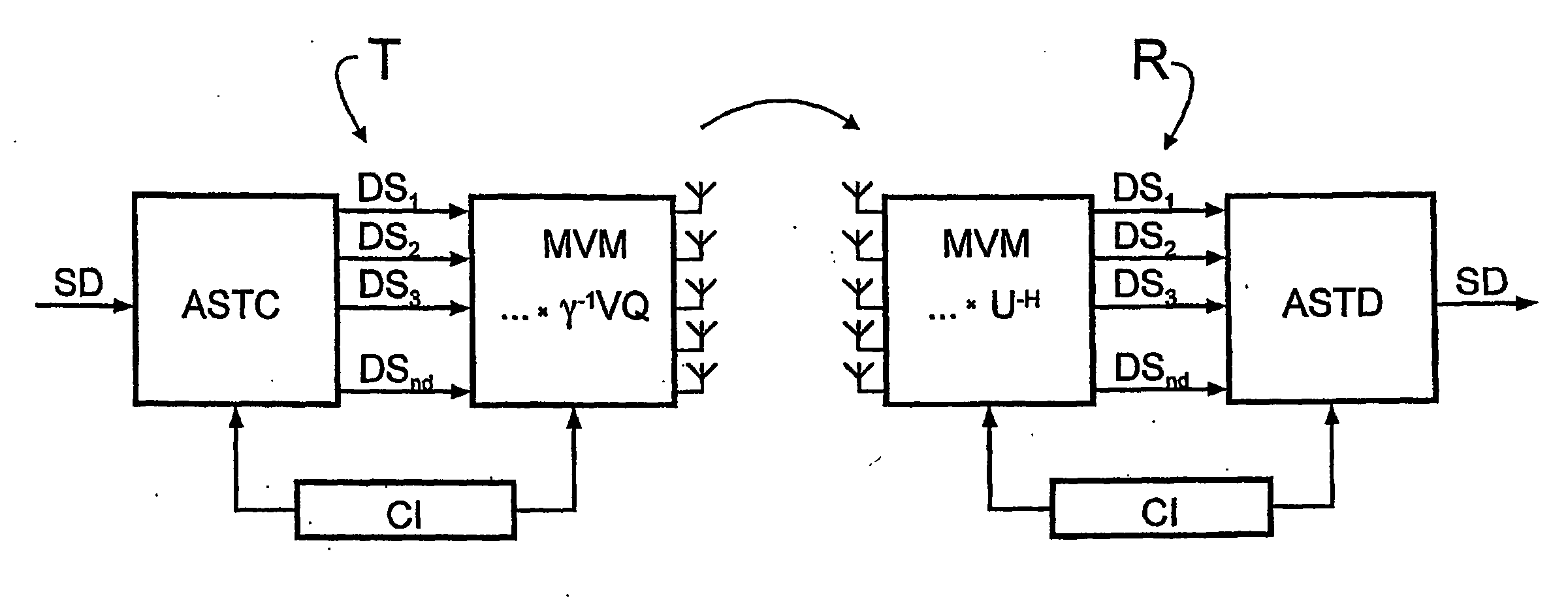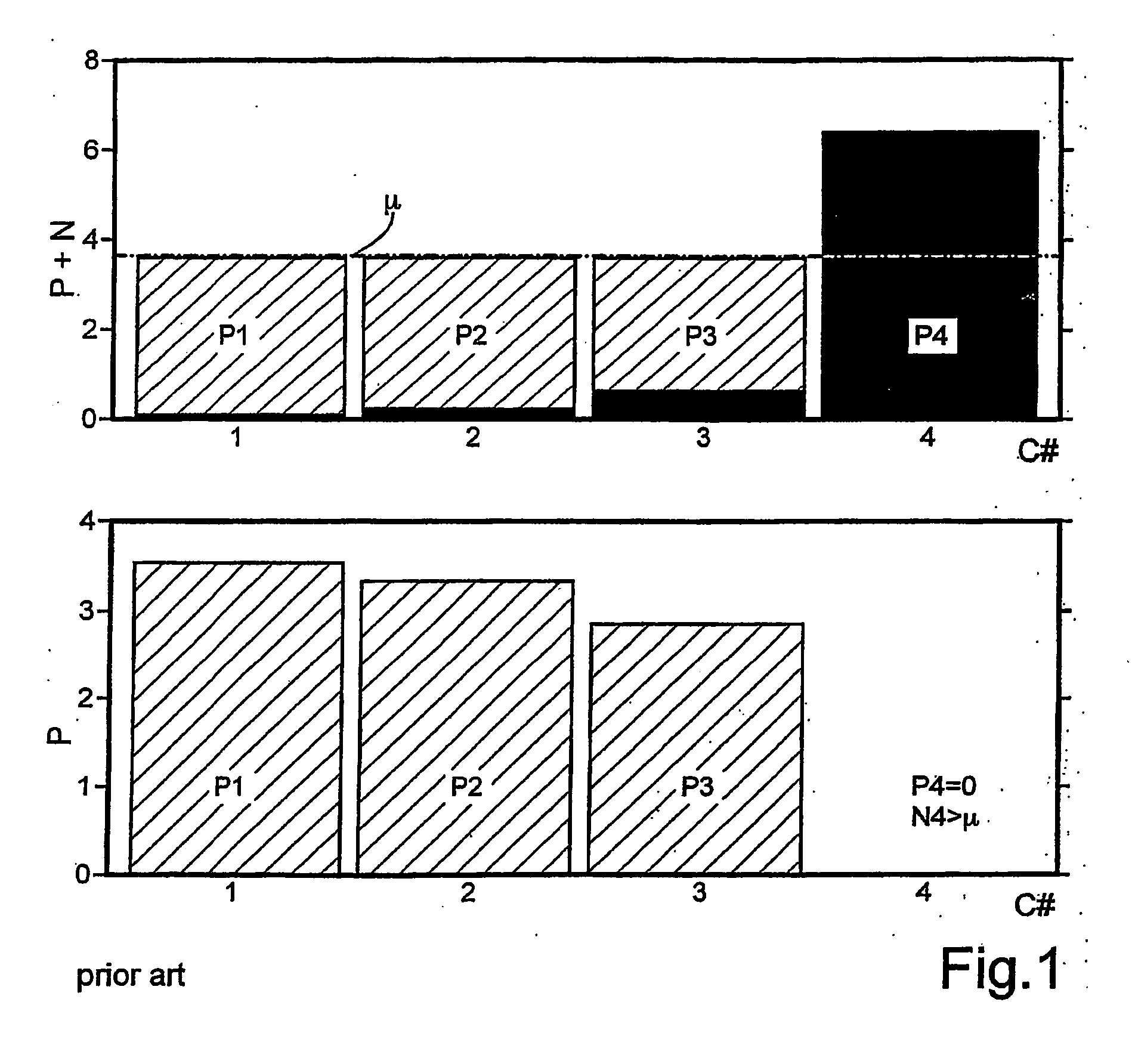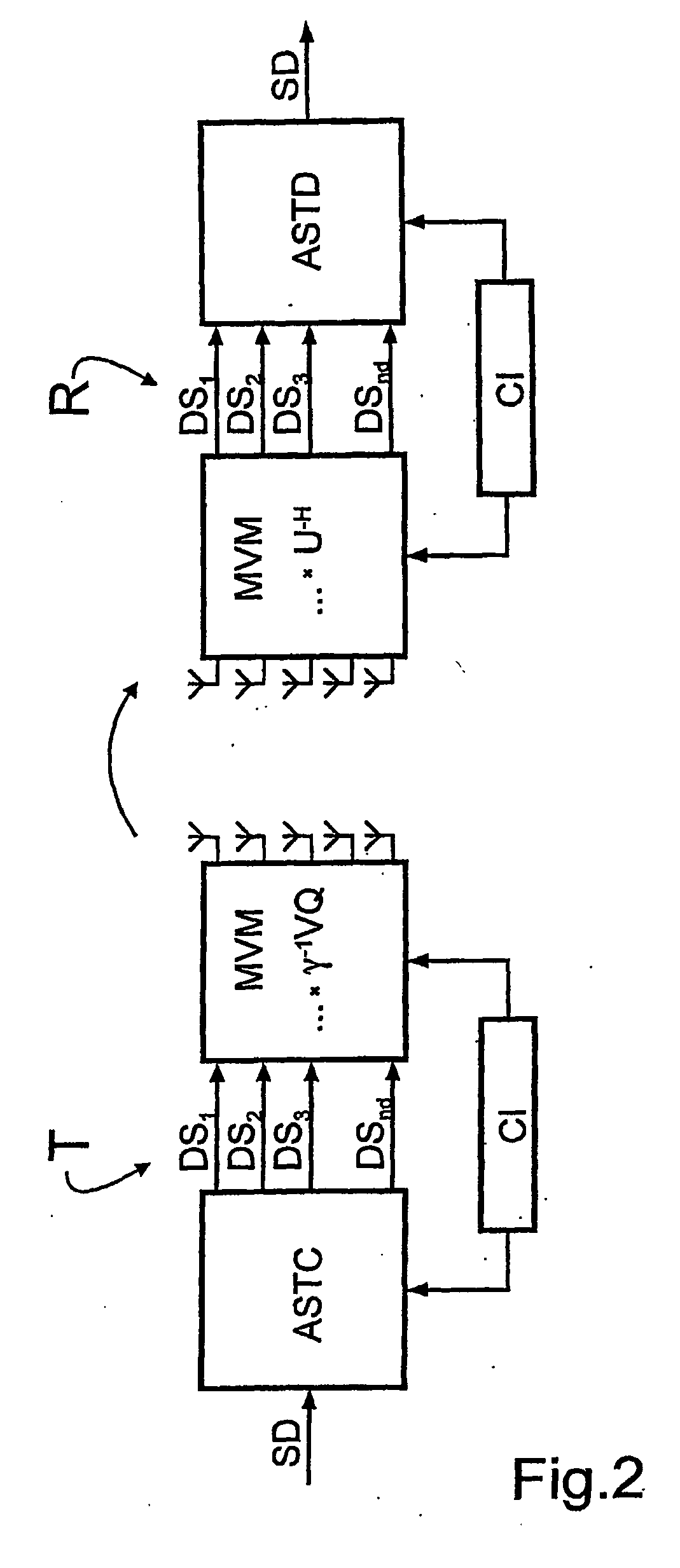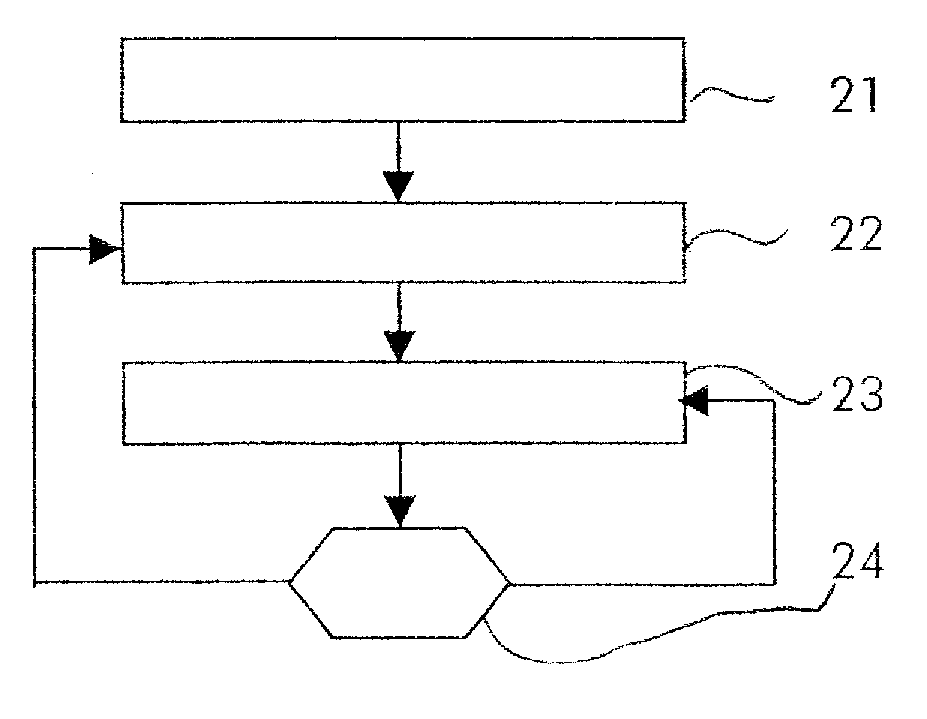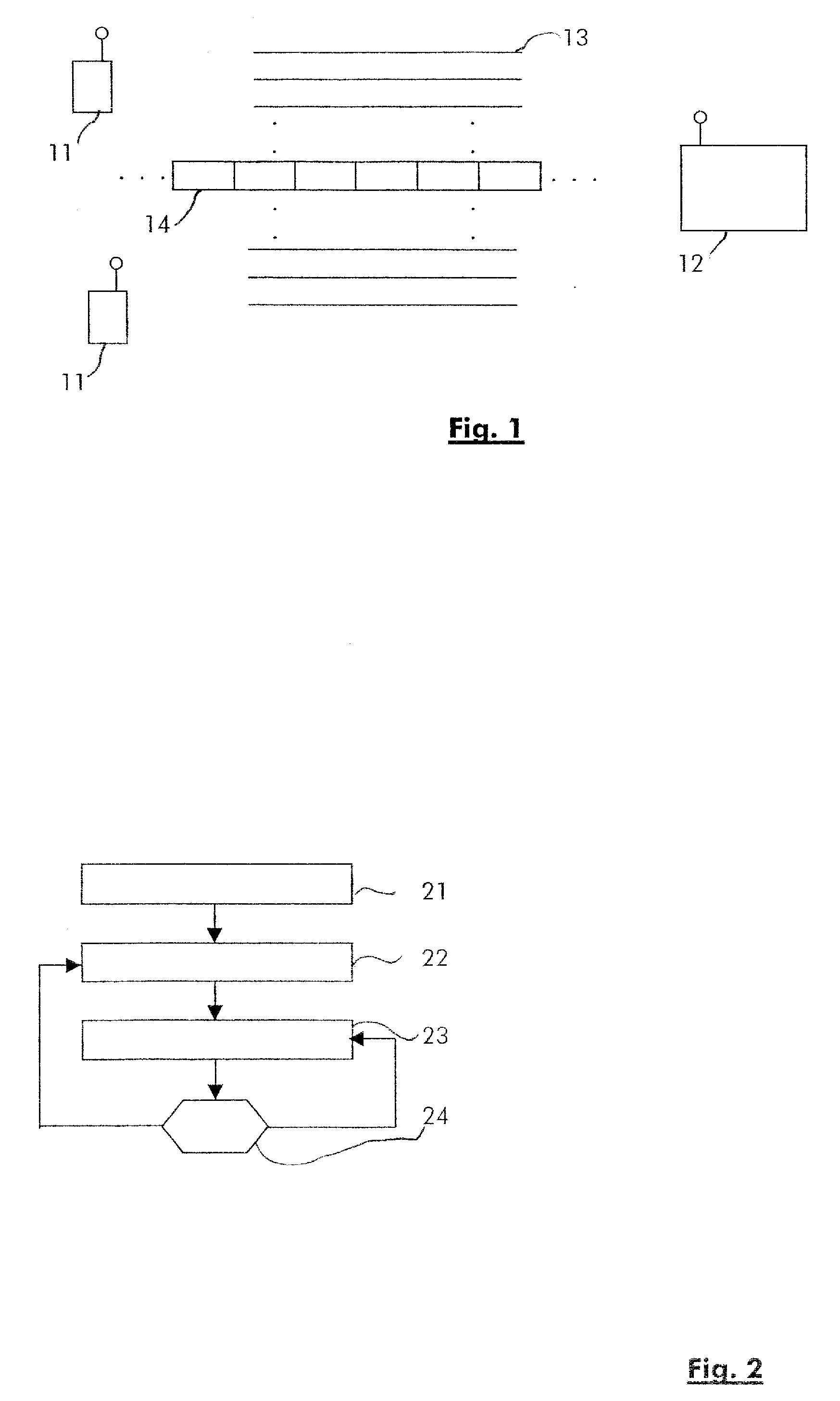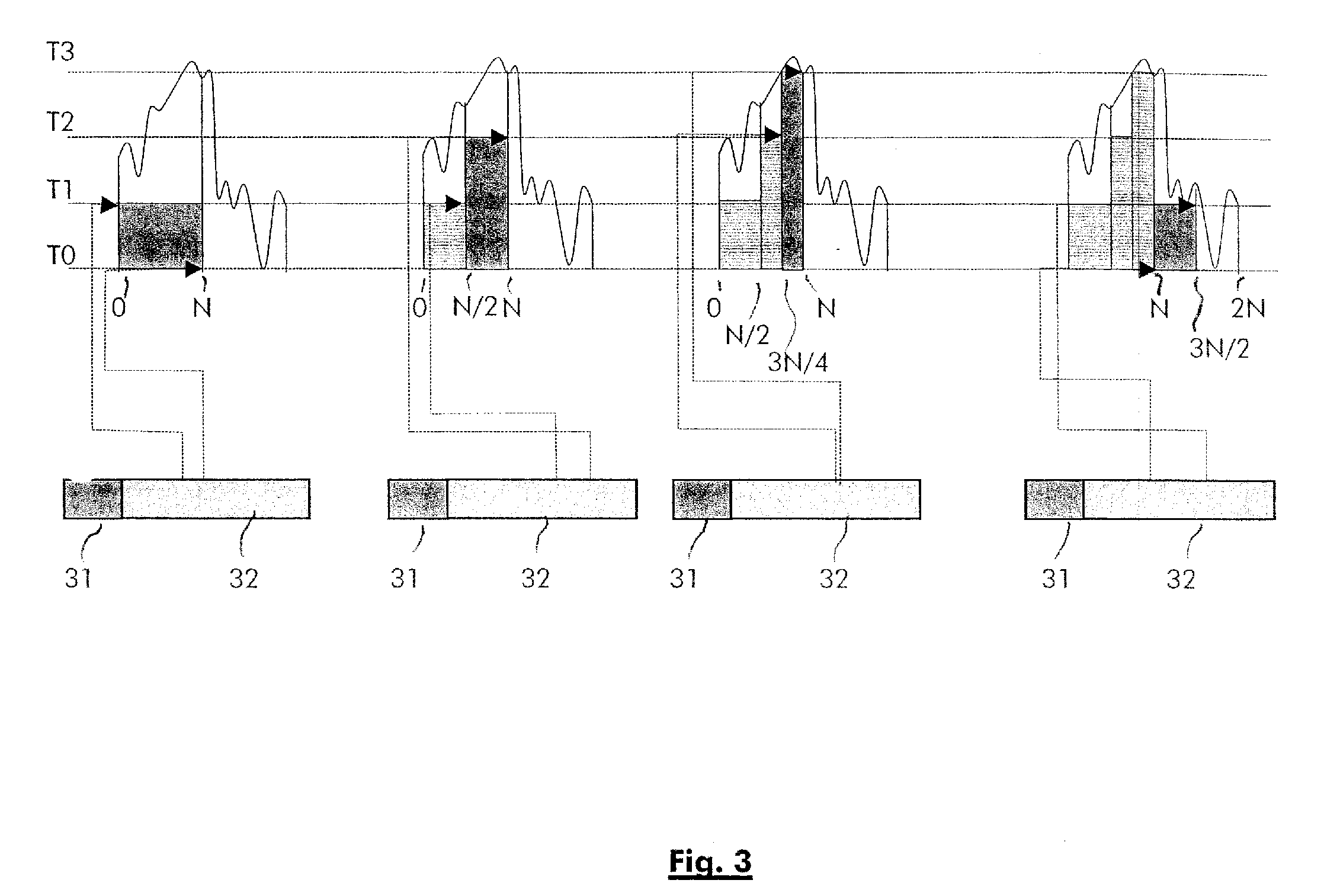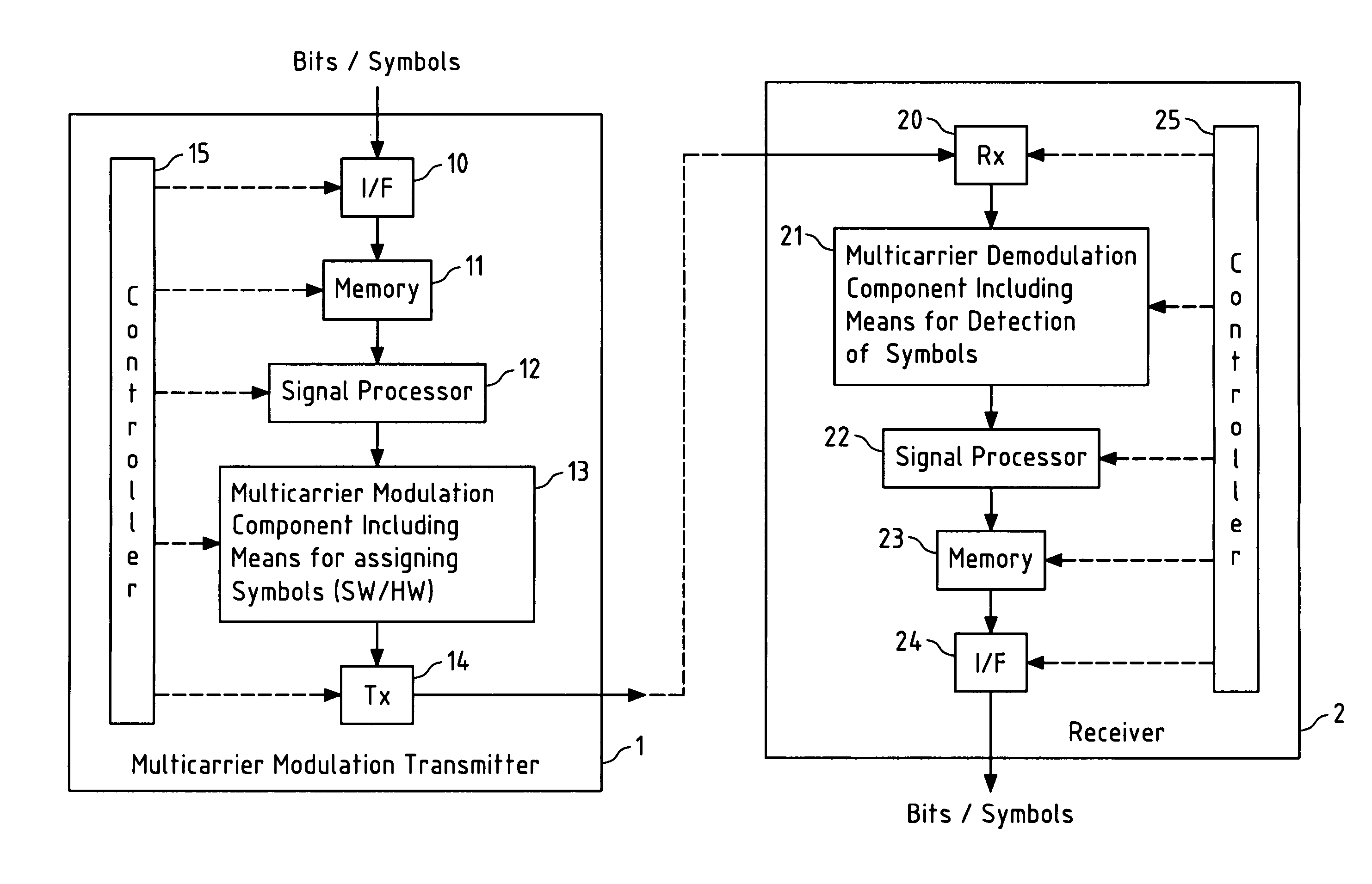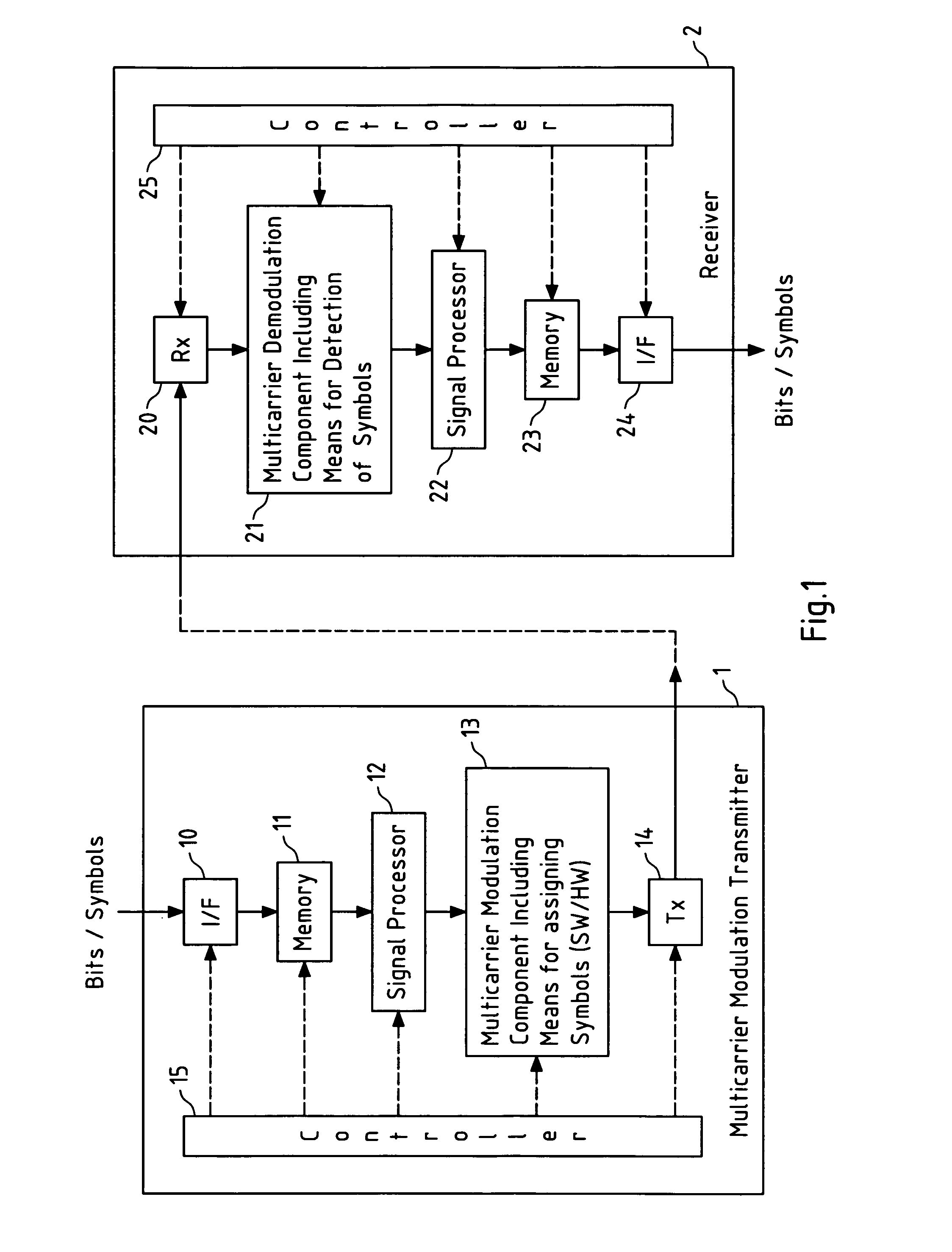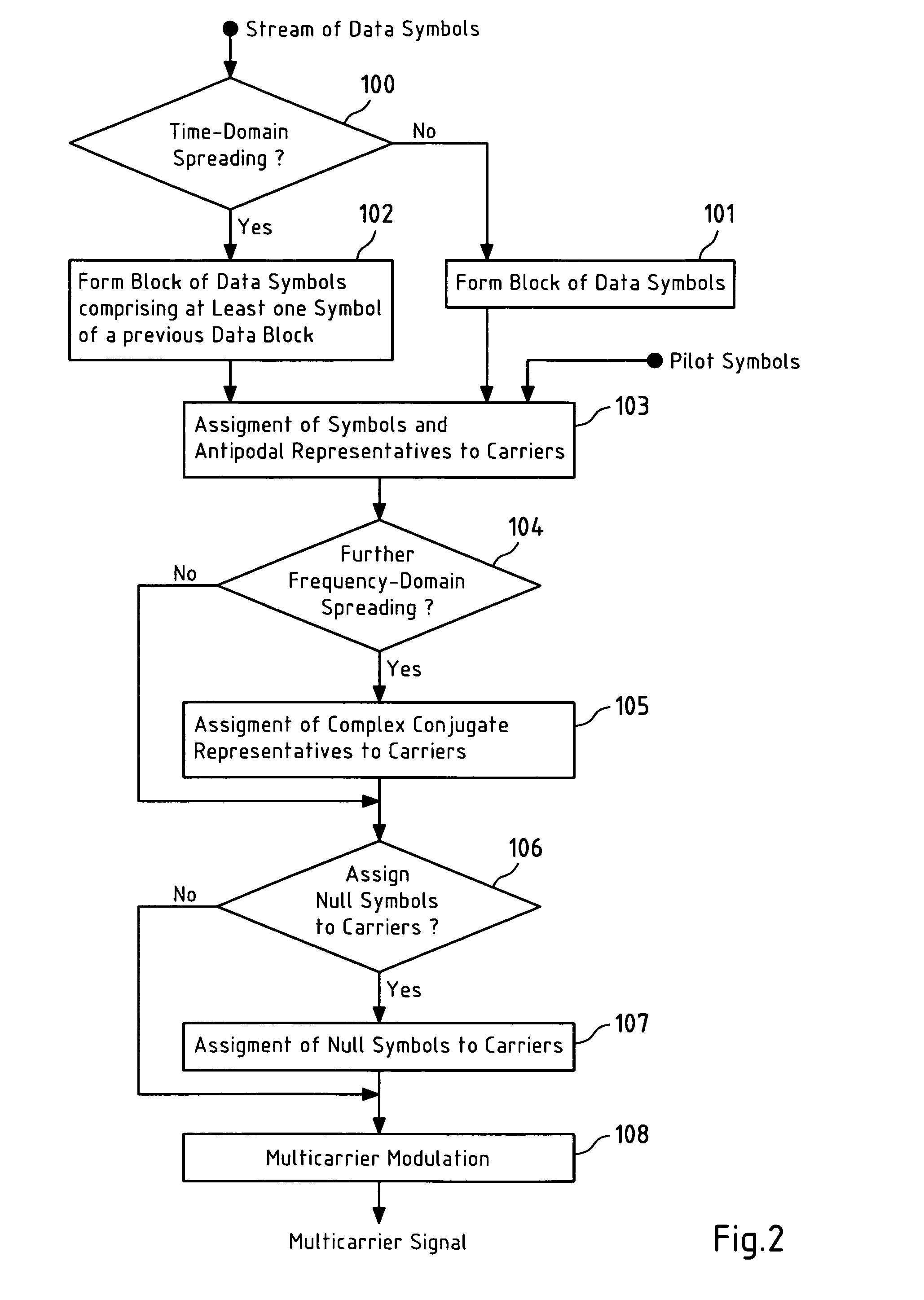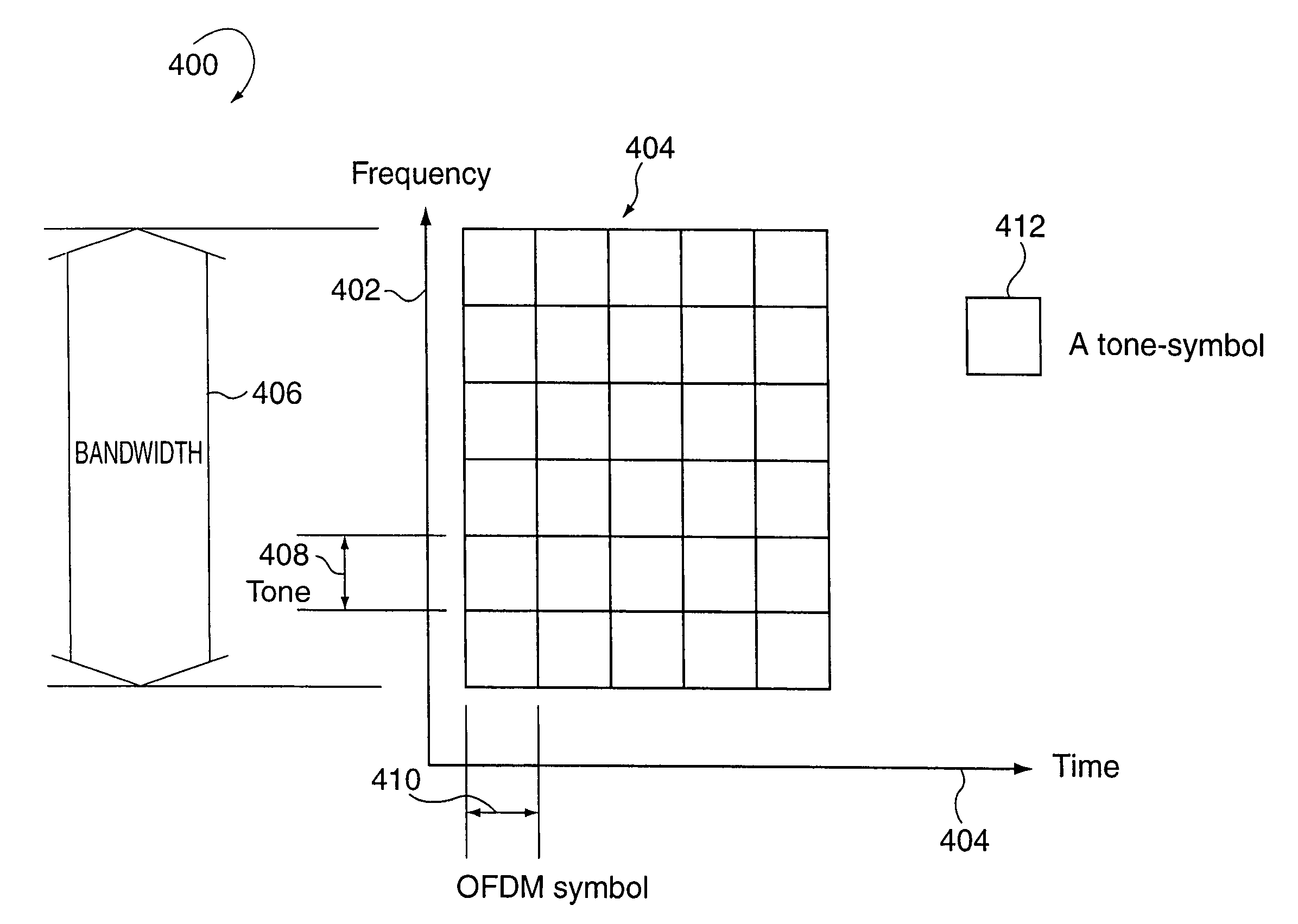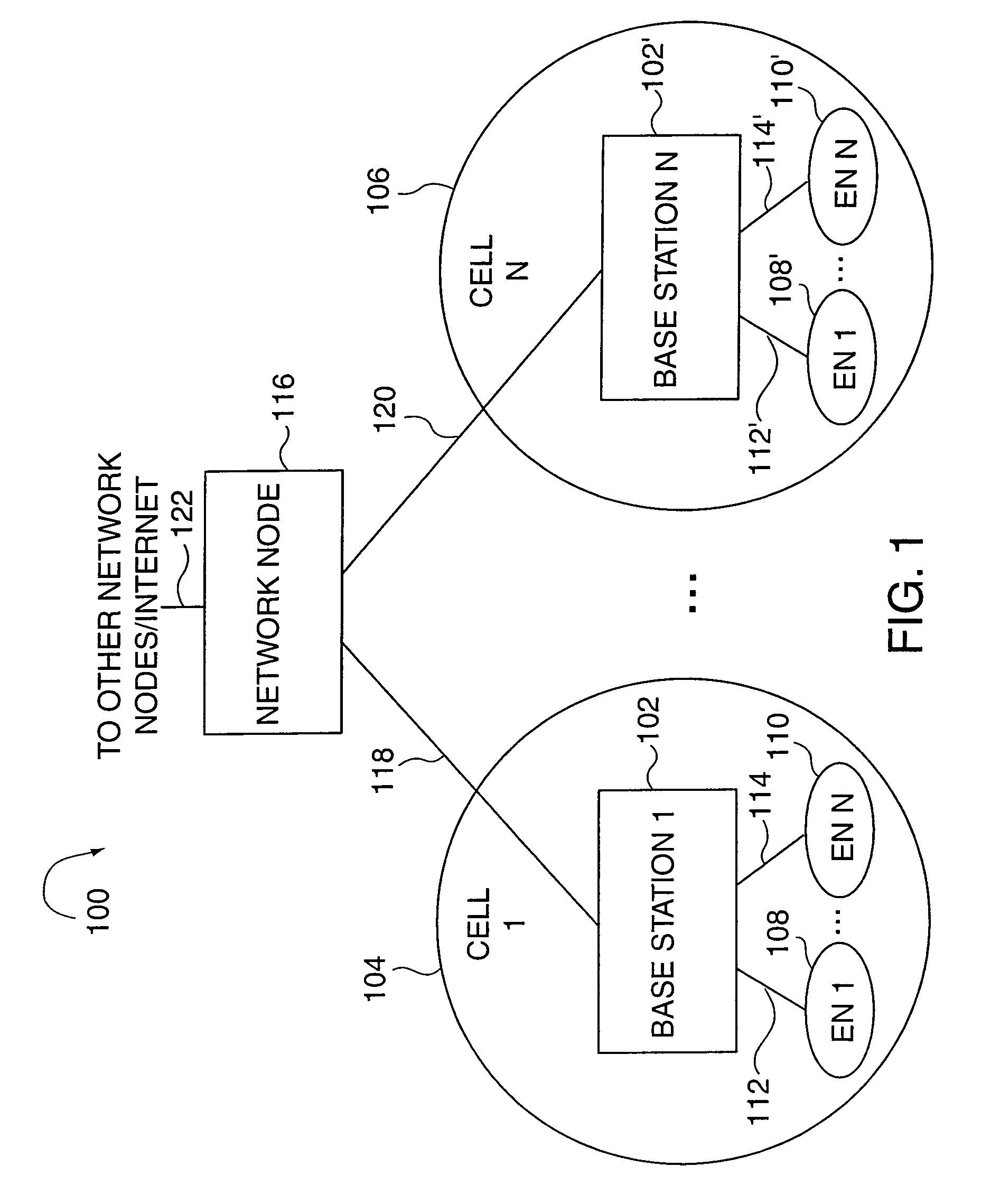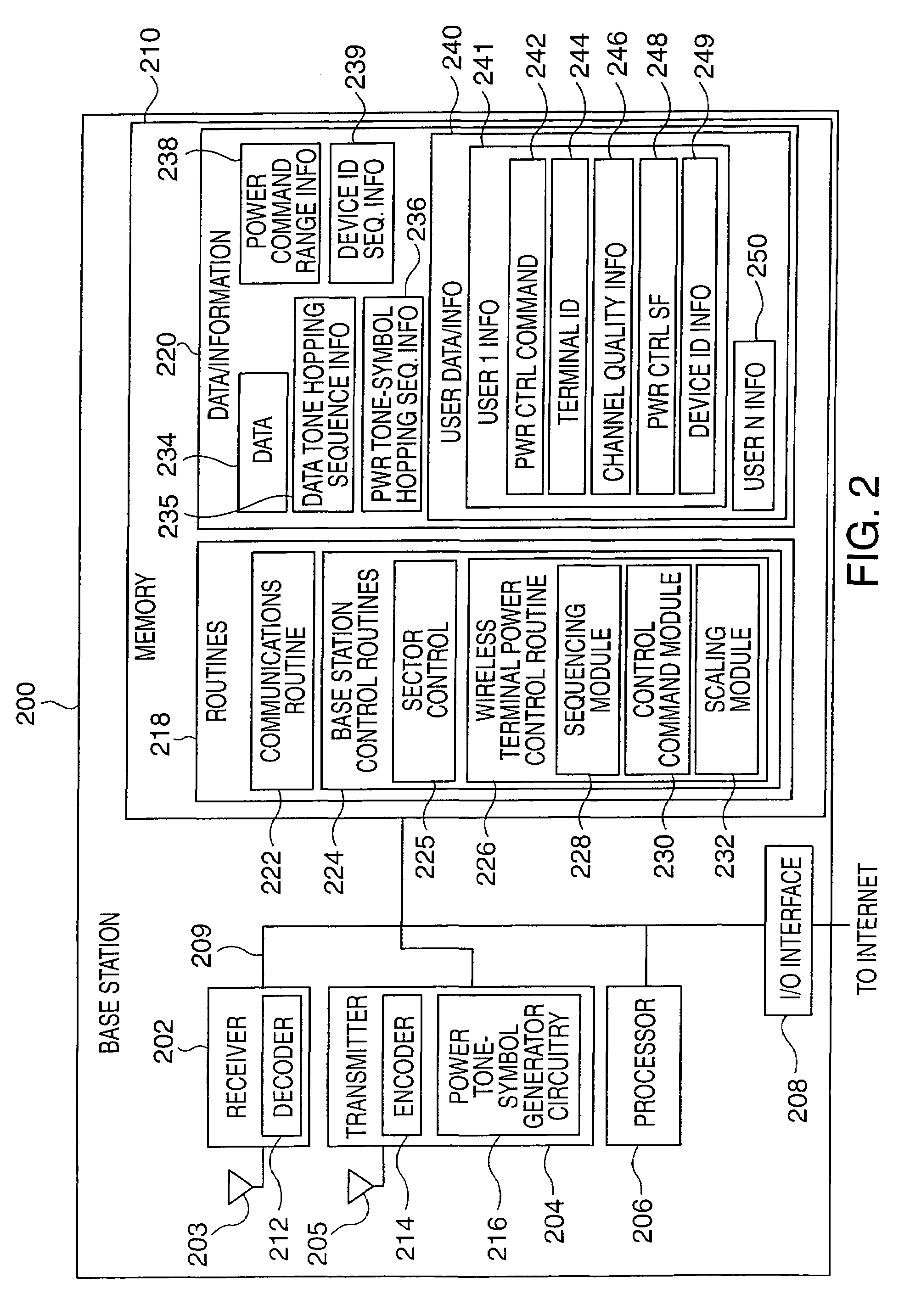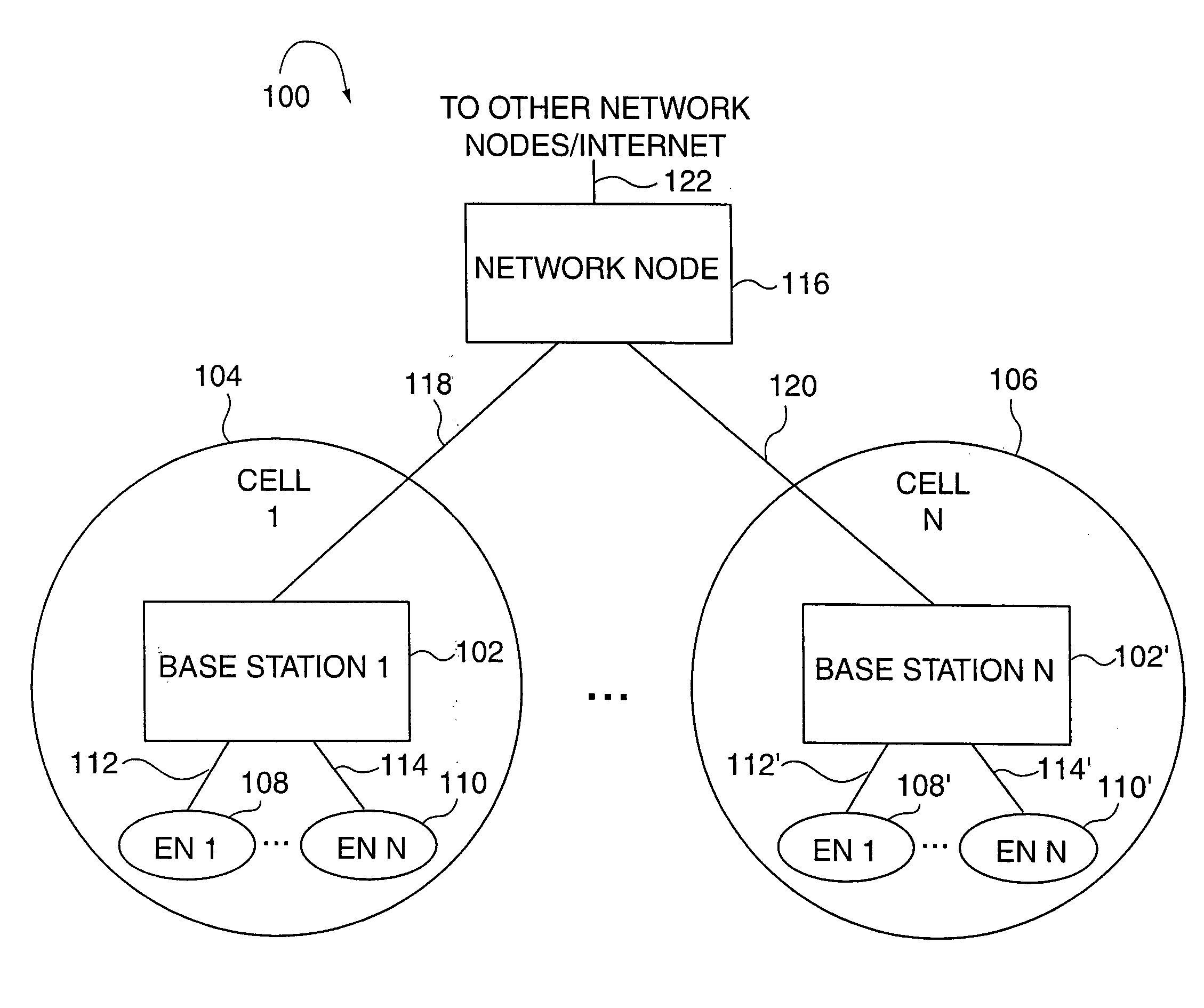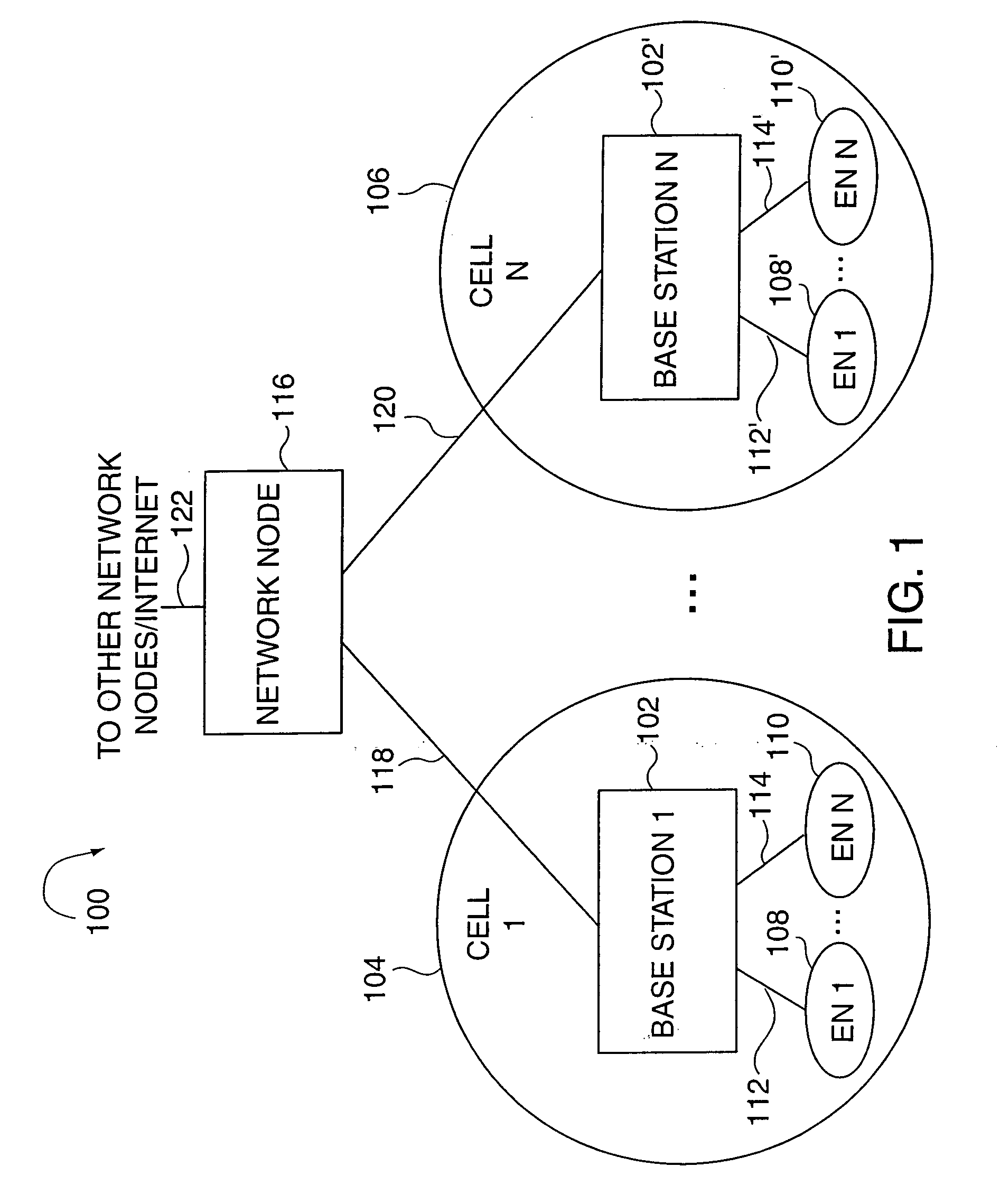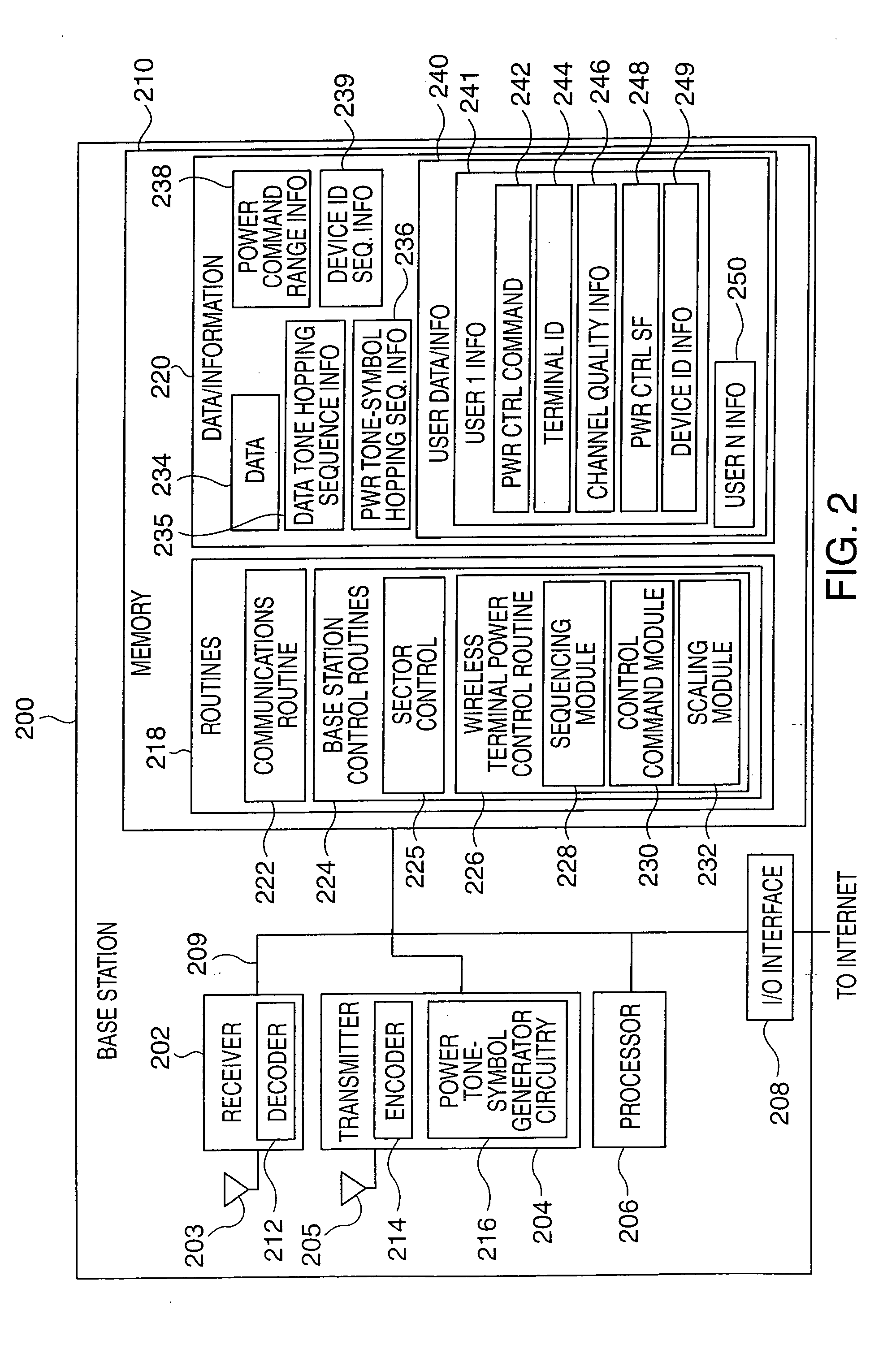Patents
Literature
1735results about How to "Reduce transmit power" patented technology
Efficacy Topic
Property
Owner
Technical Advancement
Application Domain
Technology Topic
Technology Field Word
Patent Country/Region
Patent Type
Patent Status
Application Year
Inventor
CDMA mobile station wireless transmission power management with adaptive scheduling priorities based on battery power level
InactiveUS6072784ASave battery powerOptimally conserve battery powerPower managementEnergy efficient ICTWireless transmissionCommunications system
A method adapts scheduling priorities in a CDMA wireless communications system to conserve battery power in mobile terminals operating within the system. A base station, within the system, receives battery power level information and other setup information from mobile terminals operating within the service area of the base station during call setup procedures. Based on the battery power level information and other setup information, the base station adapts scheduling priorities for the mobile terminals to expedite wireless transmissions from those mobile terminals reporting low battery power levels. The base station schedules the transmissions from low battery power mobile stations to be clustered together in a low-power time slot which is separate in time from the scheduled transmissions from high battery power mobile stations. The base station transmits a power control message to the low battery power mobile stations, to reduce the transmission power required for those mobile stations during the low-power time slot.
Owner:AMERICAN TELEPHONE & TELEGRAPH CO
Transmit power control for physical random access channels
ActiveUS20130058315A1Increase the likelihood of successAvoid low successPower managementSynchronisation arrangementUplink transmissionTransmitted power
The invention relates to methods for adjusting the transmit power utilized by a mobile terminal for uplink transmissions, and to methods for adjusting the transmit power used by a mobile terminal for one or more RACH procedures. The invention is also providing apparatus and system for performing these methods, and computer readable media the instructions of which cause the apparatus and system to perform the methods described herein. In order to allow for adjusting the transmit power of uplink transmissions on uplink component carriers, the invention suggests introducing a power scaling for uplink PRACH transmissions performing RACH procedures on an uplink component carrier. The power scaling is proposed on the basis of a prioritization among multiple uplink transmissions or on the basis of the uplink component carriers on which RACH procedures are performed.
Owner:SUN PATENT TRUST
Power control for a wireless communication system utilizing orthogonal multiplexing
ActiveUS20060019694A1Reduce transmit powerPower managementError detection/prevention using signal quality detectorMultiplexingCommunications system
Techniques for adjusting transmit power to mitigate both intra-sector interference to a serving base station and inter-sector interference to neighbor base stations are described. The amount of inter-sector interference that a terminal may cause may be roughly estimated based on the total interference observed by each neighbor base station, channel gains for the serving and neighbor base stations, and the current transmit power level. The transmit power may be decreased if high interference is observed by a neighbor base station and increased otherwise. The transmit power may be adjusted by a larger amount and / or more frequently if the terminal is located closer to the neighbor base station observing high interference and / or if the current transmit power level is higher, and vice versa. The intra-sector interference is maintained within an acceptable level by limiting a received SNR for the terminal to be within a range of allowable SNRs.
Owner:QUALCOMM INC
Wireless power multi-charging method and power transmitter
ActiveUS20130082653A1Hinder recognitionIncrease transmit powerDc network circuit arrangementsNear-field transmissionTransmitted powerEngineering
A wireless multi-charging method of a power transmitter that wirelessly transmits power includes sensing a first power receiver, increasing a transmission power required for charging the first power receiver, sensing a second power receiver, decreasing the transmission power required for suspending charging of the first power receiver, and increasing the transmission power required for simultaneously charging both the first power receiver and the second power receiver.
Owner:SAMSUNG ELECTRONICS CO LTD
Multiple access method and system
InactiveUS7010048B1Reduce decreaseLower Level RequirementsFrequency diversityWavelength-division multiplex systemsFiberPulse envelope
A wireless communication system transmits data on multiple carriers simultaneously to provide frequency diversity. Carrier interference causes a narrow pulse in the time domain when the relative phases of the multiple carriers are zero. Selection of the frequency separation and phases of the carriers controls the timing of the pulses. Both time division of the pulses and frequency division of the carriers achieves multiple access. Carrier interferometry is a basis from which other communication protocols can be derived. Frequency hopping and frequency shifting of the carriers does not change the pulse envelope if the relative frequency separation and phases between the carriers are preserved. Direct sequence CDMA signals are generated in the time domain by a predetermined selection of carrier amplitudes. Each pulse can be sampled in different phase spaces at different times. This enables communication in phase spaces that are not detectable by conventional receivers. The time-dependent phase relationship of the carriers provides automatic scanning of a beam pattern transmitted by an antenna array. In waveguide communications, the carrier frequencies and phase space may be matched to the chromatic dispersion of an optical fiber to increase the capacity of the fiber.
Owner:DEPARTMENT 13 INC
Systems and methods of beamforming in radio frequency identification applications
InactiveUS7652577B1Increased read rangeImprove reliabilitySensing record carriersBurglar alarm by hand-portable articles removalDistributed structureEngineering
Systems and methods for beamforming in radio frequency identification (RFID) applications are disclosed. A beamforming system uses a distributed architecture and techniques for antenna beamforming using a feedback control loop to direct radio frequency (RF) energy onto a specific region, referred to as an interrogation zone, which includes a calibration node where one or more RFID tags may be located. The distributed architecture of the beamforming system is resistant to fading and shadowing effects, providing accurate RFID reader operation even in environments with multi-path reflections or environmental changes, such as people moving around or changes in the location of equipment.
Owner:WIRAMA CORP +1
Random access channal access apparatus for mobile satellite communication system and method therefor
ActiveUS20040014452A1Reduce transmission delay timeIncrease probabilityTransmission control/equalisingNetwork topologiesTelecommunicationsRandom-access channel
The present invention relates to Random Access Channel (RACH) access apparatus for mobile satellite communication system and method therefor. The method for accessing random access channel (RACH) on satellite system, random access channel (RACH) carrying message from a plurality of mobile stations to the satellite system, the method includes the steps of: receiving preamble and the message, the message successively transmitted with the preamble from the plurality of mobile stations; and transmitting acquisition response signal corresponding to the preamble or the message to the plurality of mobile stations. Accordingly, success of packet reception of satellite system is improved and transmission delay is reduced.
Owner:ELECTRONICS & TELECOMM RES INST
Power-limit reporting in a communication system using carrier aggregation
ActiveUS20120224552A1Reduce transmit powerPower managementEnergy efficient ICTCommunications systemTransmitted power
The invention relates to methods for informing an eNodeB on the transmit power status of a user equipment in a mobile communication system using component carrier (CC) aggregation. Furthermore, the invention is also related to the implementation of these methods by hardware and their implementation in software. The invention proposes procedures that allow the eNodeB to recognize the power usage status of a UE in a communication system using carrier aggregation. The UE indicates to the eNodeB, when the UE is close to using its total maximum UE transmit power or when it has exceeded same. This is achieved by the UE including indicator(s) and / or new MAC CEs to one or more protocol data units transmitted on respective component carriers within a single sub-frame that is providing the eNodeB with power status information. The MAC CEs may report a per-UE power headroom. Alternatively, the MAC CEs may report per-CC power headrooms and / or power reductions applied to the respective uplink CCs.
Owner:SUN PATENT TRUST
Logical channel prioritization procedure for generating multiple uplink transport blocks
ActiveUS20120057547A1Promote generationEfficient schedulingPower managementTransmission path divisionComputer hardwareUplink transmission
The invention relates to methods for scheduling of uplink transmission and generating transport blocks according to multiple received uplink assignments Furthermore, the invention is also related to the implementation of these methods in hardware and software. To propose strategies for generating plural transport blocks within a given time constraint, the invention introduces prioritization of the uplink assignments, so that multiple uplink assignments can be ranked in the mobile terminal in a priority order. The prioritization of the uplink assignments is used to determine the order in which the individual transport blocks corresponding to the uplink assignments are filled, respectively how the data of different logical channels is multiplexed to the transport blocks for transmission in the uplink. Another aspect of the invention is to suggest joint logical channel procedures that operate on virtual transport blocks accumulated from the received uplink assignments. One or more such joint logical channel procedure can be performed in parallel.
Owner:SUN PATENT TRUST
Radio communication system using adaptive array antenna
InactiveUS7082321B2Reduce base station transmission powerIncrease the number ofEnergy efficient ICTPower managementCommunications systemSelf adaptive
A radio communication system and method having an array antenna and a weighting arrangement that provides a downlink array weight for a downlink on the basis of information about bearings of a plurality of incoming signals received through a plurality of uplinks, and transmission power control information about transmission data to be transmitted through a downlink.
Owner:HITACHI LTD
Adaptive power control in wideband CDMA cellular systems (WCDMA) and methods of operation
InactiveUS6690652B1Maintain conductivityMaximizes controlEnergy efficient ICTFrequency-division multiplex detailsChannel powerControl signal
A WCDMA system includes a Base Station (BS) transmitter, or forward transmitter and a pilot channel that transmits control signals between the BS and a Mobile Station (MS) to reconfigure their transmitter / receiver. Reconfiguration is performed according to the prediction of the channel attenuation and the threshold set at the BS or MS based on its channel power probability density function separated into three distinct equal probable regions. In one embodiment, Seamless Rate Change (SRC) / Transmitter Power Control (TPC) logic uses the predicted channel attenuation to signal both the transmitter and the receiver in a channel to reconfigure their transmit power level according to the power density function (pdf) of the channel power and threshold level. A transmission rate is reduced when the power level is below the threshold and increased when the channel power is above threshold. The pilot channel is used to signal the mobile station and the base station.
Owner:IBM CORP
Remote camera relay controller method and apparatus
InactiveUS6400903B1Reduce transmit powerReduction in Eb/NoTelevision system detailsProjector film strip handlingModem deviceTelecommunications link
A remote camera relay method and apparatus for remotely operating a self-contained, unattended digital camera over a communications link. Format conversion means are included for transparently relaying control signals and remote image data between a local host processor and the remotely located digital camera, independently of specific camera command and image protocols. It thereby functions as a universal remote image transmission adapter, operable as an attachment for use with self-contained digital cameras. A portable enclosure is provided for accommodating the remote relay communications and control electronics and for attaching a hand-held digital camera thereto. Further means are included for remotely actuating the pan and tilt orientation of the camera in accordance with field-of-view selection commands. Data rate conversion and error correction coding are included for providing reliable, low power image forwarding. The communications channel could be a dial-up telephone system, a network connection, modem, an infra-red link or a wireless RF link, for example. Additional control means are provided for remotely selecting the camera field of view for image capture, and includes the ability to access only those subsets of image scenes for which viewing permissions are authorized. A further mode of operation includes protocol training whereby host photographing commands are captured by the remote relay invention during on-line operation, then replayed at programmed times resulting in automatic scheduled remote image capture. Power management is provided for maximizing operating time when used in low power, portable, battery operation.
Owner:CONOVAL PAUL
Method and apparatus for data transmission in a mobile telecommunication system supporting enhanced uplink service
ActiveUS20060003787A1Effective controlReduce transmit powerPower managementTransmission control/equalisingTransmitted powerControl channel
A method and an apparatus for data transmission in a mobile telecommunication system supporting an enhanced uplink service are provided. A Transport Format Combination (TFC) selector determines TF information for data to be transmitted through a first data channel not supporting Hybrid Automatic Repeat reQuest (HARQ) and a second data channel supporting HARQ, and determines gain factors for the first and second data channel, and first and second control channel carrying control information for the first and second data channel. The gain factors are input to a physical channel transmission controller, and the physical channel transmission controller reduces the gain factor for the second channel if total transmit power required for transmission of the channels exceeds the predetermined maximum allowed power. A gain scaler adjusts transmit powers of the channels using the scaled gain factor and gain factors for the first data channel, the first control channel and the second control channel.
Owner:SAMSUNG ELECTRONICS CO LTD
Method, system, and apparatus for extended rate/range communication over a communication network
ActiveUS20090092154A1High data rateImprove reliabilityFrequency-division multiplexRadio transmissionCoaxial cableMedia access control
A technique for communicating multimedia data between nodes over coaxial cable, wherein the nodes are connected via a coaxial cable network, is disclosed. In an embodiment, the technique involves establishing a primary channel for communicating between first and second nodes of the coaxial cable network, establishing a secondary channel for communicating between the first and second nodes of the coaxial cable network, wherein the primary and secondary channels are in different frequency bands and wherein the primary channel is used for communicating media access control frames, and communicating a time series of data frames between the first and second nodes using both the primary channel and the secondary channel.
Owner:ENTROPIC COMM INC
Mobile communications in a hierarchical cell structure
InactiveUS20050130662A1Prevent handoverIncrease speedCode division multiplexRadio/inductive link selection arrangementsRadio networksFrequency band
A hierarchical cell structure (HCS) cellular communications system includes a macro cell encompassing a smaller micro cell that employ the same frequency band. The macro cell includes a macro cell base station, and the micro cell includes a micro cell base station. An uplink communication cell boundary between the macro cell and the micro cell is established, and a downlink communication cell boundary between the macro cell and the micro cell is established. A radio network controller determines whether a condition exists in the HCS system which indicates that the uplink and downlink micro cell boundaries should be unbalanced. If the condition is met or exists, the power and / or antenna beam tilt of a downlink transmission from the micro cell base station is reduced to unbalance the uplink and downlink micro cell boundaries. Alternatively, the radio network controller may employ an offset value to mathematically reduce mobile detected pilot power levels associated with the micro base station.
Owner:TELEFON AB LM ERICSSON (PUBL)
System and method for impedance matching an antenna to sub-bands in a communication band
InactiveUS20050007291A1Optimal matching impedanceGood efficiencyMultiple-port networksAntenna supports/mountingsFrequency bandCommunication bandwidth
A sub-band antenna matching method and an antenna matching system for selectively matching a communication bandwidth segment impedance have been provided. The method comprises: accepting a frequency-dependent impedance from an antenna; and, selectively supplying a conjugate impedance match for the antenna at a sub-band of a first communication band. In some aspects, the method selectively supplies a conjugate impedance match for the antenna at a sub-band of a second communication band. More specifically, the method comprises: tuning a first tuning circuit to a first frequency; simultaneously tuning a second tuning circuit to a second frequency to match the antenna at a low end of the first communication band. Likewise, the first tuning circuit is tuned to a third frequency and the second tuning circuit is tuned to a fourth frequency to match the antenna at a high end of the first communication band in response to the third and fourth frequencies.
Owner:KYOCERA CORP
System and method for impedance matching an antenna to sub-bands in a communication band
InactiveUS7176845B2Improve efficiencyReduce noiseMultiple-port networksAntenna supports/mountingsAntenna impedanceMethod selection
A sub-band antenna matching method and an antenna matching system for selectively matching a communication bandwidth segment impedance have been provided. The method comprises: accepting a frequency-dependent impedance from an antenna; and, selectively supplying a conjugate impedance match for the antenna at a sub-band of a first communication band. In some aspects, the method selectively supplies a conjugate impedance match for the antenna at a sub-band of a second communication band. More specifically, the method comprises: tuning a first tuning circuit to a first frequency; simultaneously tuning a second tuning circuit to a second frequency to match the antenna at a low end of the first communication band. Likewise, the first tuning circuit is tuned to a third frequency and the second tuning circuit is tuned to a fourth frequency to match the antenna at a high end of the first communication band in response to the third and fourth frequencies.
Owner:KYOCERA CORP
Non-electrode-lead ultra-thin flexible micro multifunctional heart rate adjusting device
InactiveUS20100094367A1Extended service lifeSmall sizeHeart defibrillatorsHeart stimulatorsMicrocomputerMedicine
A non-electrode-lead ultra-thin flexible micro multifunctional heart rate adjusting device comprises an integrative ultra-thin flexible micro non-electrode-lead pacemaker formed by assembling a micro battery, an ultra-low-power source circuit, a wireless receiving / transmitting circuit and an application circuit unit together, the needle electrodes are positioned on one side of the pacemaker and all of them form a small electrode body which can directly implanted into heart or external surface of heart; a multifunctional microcomputer heart rate adjusting remote controller connects with various non-electrode-lead pacemakers via wireless communication; the non-electrode-lead pacemakers and / or the heart rate adjusting remote controller connect with a control base station via wireless network, and the control base station connects with a computer.
Owner:SEN LUYI
Logical channel prioritization procedure for generating multiple uplink transport blocks
ActiveUS8687541B2Promote generationGuaranteed normal transmissionPower managementResonant long antennasComputer hardwareUplink transmission
Owner:SUN PATENT TRUST
Transmit power control for physical random access channels
ActiveUS9008050B2Increase the likelihood of successAvoid low successPower managementSynchronisation arrangementTransmitted powerUplink transmission
The invention relates to methods for adjusting the transmit power utilized by a mobile terminal for uplink transmissions, and to methods for adjusting the transmit power used by a mobile terminal for one or more RACH procedures. The invention is also providing apparatus and system for performing these methods, and computer readable media the instructions of which cause the apparatus and system to perform the methods described herein. In order to allow for adjusting the transmit power of uplink transmissions on uplink component carriers, the invention suggests introducing a power scaling for uplink PRACH transmissions performing RACH procedures on an uplink component carrier. The power scaling is proposed on the basis of a prioritization among multiple uplink transmissions or on the basis of the uplink component carriers on which RACH procedures are performed.
Owner:SUN PATENT TRUST
Power transmission control device, power transmission device, power reception control device, power reception device, electronic apparatus, and contactless power transmission system
ActiveUS20100225173A1High practical valueImprove power efficiencyCircuit authenticationCircuit monitoring/indicationElectric power transmissionElectromagnetic coupling
A power transmission control device controls a power transmission device in a contactless power transmission system that transmits power from the power transmission device to a power reception device through electromagnetically coupling a primary coil and a secondary coil. The power transmission control device includes a power transmission driver control section that controls drive timings of a plurality of switching elements of a power transmission driver that drives the primary coil, the power transmission driver control section variably controlling the power to be transmitted from the power transmission device to the power reception device.
Owner:SAMSUNG ELECTRONICS CO LTD
Mobile communications in a hierarchical cell structure
InactiveUS7142861B2Long talk timeIncrease capacityCode division multiplexRadio/inductive link selection arrangementsRadio networksCommunications system
A hierarchical cell structure (HCS) cellular communications system includes a macro cell encompassing a smaller micro cell that employ the same frequency band. The macro cell includes a macro cell base station, and the micro cell includes a micro cell base station. An uplink communication cell boundary between the macro cell and the micro cell is established, and a downlink communication cell boundary between the macro cell and the micro cell is established. A radio network controller determines whether a condition exists in the HCS system which indicates that the uplink and downlink micro cell boundaries should be unbalanced. If the condition is met or exists, the power and / or antenna beam tilt of a downlink transmission from the micro cell base station is reduced to unbalance the uplink and downlink micro cell boundaries. Alternatively, the radio network controller may employ an offset value to mathematically reduce mobile detected pilot power levels associated with the micro base station.
Owner:TELEFON AB LM ERICSSON (PUBL)
Method and apparatus for power control in an ultra wideband impulse radio system
InactiveUS7079827B2Reduce distractionsReduce transmit powerPower managementEnergy efficient ICTUltra-widebandTransceiver
A method for power control in an ultra wideband impulse radio system includes: (a) transmitting an impulse radio signal from a first transceiver; (b) receiving the impulse radio signal at a second transceiver; (c) determining at least one performance measurement of the received impulse radio signal; and (d) controlling output power of at least one of the first transceiver and the second transceiver in accordance with the at least one performance measurement.
Owner:ALEREON
Laser scanner and method for optically scanning an environment
ActiveUS7193690B2Reduce transmit powerAvoid imaging errorsOptical rangefindersActive open surveying meansMeasurement pointLaser scanning
A laser scanner for optically scanning and measuring an environment comprises a light transmitter having a predetermined transmission power for emitting a light beam. The emitted light beam is reflected at a measurement point in the environment. The reflected light beam is received with a certain intensity by a receiver. The transmission power is adjustable as a function of the intensity of the reflected light beam. Furthermore, a gray-scale value of the measurement point is determined as a function of the transmission power adjusted.
Owner:FARO TECH INC
Scrambled multicarrier transmission
InactiveUS20100027608A1Easy to useImprove carrier-to-noise ratioMultiple-port networksDelay line applicationsTime domainGuard interval
Signals (typically in the form of OFDM signals) are transmitted between one or more transmitting antennas and one or more receiving antennas. The signals transmitted are subject to addition of a guard interval before scrambling in the time domain, while the signals received are subject to removal of the guard interval after scrambling in the time domain. Preferably time-scrambling of the OFDM signal being transmitted occurs after IFFT processing and guard interval insertion, while time de-scrambling of the signal being received occurs before both guard interval removal and FFT processing. Optionally, unscrambled pilot symbols (e.g. in the form of a training sequence), can be present at regular intervals inside the signal structure. At the receiver, equalization is carried out preferably in the frequency domain.
Owner:TELECOM ITALIA SPA
Mimo signal processing method involving a rank-adaptive matching of the transmission rate
InactiveUS20060193294A1Reduce complexityReliable data transmissionPower managementTransmission control/equalisingData streamTransmitted power
A bidirectional signal processing method uses parallel transmission of digital transmitted data streams in a multiple input-multiple output system. Related art methods generate high bit error rates mostly in singular transmission channels. For this reason, the rank-adaptive signal processing method provides that the number nd of active subchannels are varied according to the actual channel behavior in order to effect a robust data transmission even in singular radio channels based on a transmit-side and receive-side channel knowledge and a modification of the data vector by a linear matrix vector multiplication while introducing a factor gamma for limiting the maximum transmit power. The maximum transmit power is then only distributed to the currently activated subchannels so that no transmit power remains unused. Another optimization of the number of subchannels nd occurs when selecting the modulation and encoding methods. During the optimal rank-adaptation according to the water-filling principle, another power is allocated to each subchannel. Another modulation and encoding method is accordingly selected for each data stream. During the suboptimal rank-adaptation according to the channel inversion principle, all subchannels have the same power whereby enabling the data streams to be modulated and encoded in a common source
Owner:SIEMENS AG
Method for sending channel quality information in a multi-carrier radio communication system, corresponding mobile terminal and base station
InactiveUS20060165188A1Increase throughputReduce signaling loadSecret communicationRadio transmissionCarrier signalQuality information
The present invention relates to a method for sending channel quality information in a multi-carrier radio communication system comprising at least one mobile terminal and at least one base station, said channel quality information being sent on a signaling channel by said mobile terminal to said base station. According to the present invention, the method comprises the steps of: performing channel quality measurements on a plurality of frequency sub-carriers; generating and sending a first report over said signaling channel, said first report comprising a first channel quality information depending on said channel quality measurements on at least one sub-carrier, said at least one sub-carrier building an herein called first group of sub-carriers; determining a number of additional reports depending on the mobility grade of said mobile terminal; if said number of additional reports is not reached, generating and sending an additional report over said signaling channel comprising an additional channel quality information depending on channel quality measurements on at least one sub-carrier, said at least one sub-carrier building an herein called second group of sub-carriers, said second group of sub-carriers being different of said first group of sub-carriers.
Owner:ALCATEL LUCENT SAS
Multicarrier modulation with enhanced frequency coding
ActiveUS20070030796A1Mitigate interferenceReduce distractionsTransmission path divisionCriteria allocationCarrier signalMulti carrier modulation
This invention relates to a method, a computer program, a computer program product, a transmitter and a receiver for a multicarrier modulation, wherein symbols are assigned to carriers of a set of N carriers, said method comprising assigning at least one of said symbols to a first carrier of said set of N carriers, and assigning an antipodal representative of said at least one of said symbols to a second carrier of said set of N carriers.
Owner:VIVO MOBILE COMM CO LTD
Methods and apparatus of power control in wireless communication systems
InactiveUS7420939B2Limit and overcome interferenceIncrease transmit powerEnergy efficient ICTPower managementSignal qualityCommunications system
The present invention involves apparatus and methods to perform wireless terminal transmission power control. The invention uses novel and highly efficient methods to: convey power control information, specify power control level adjustments, recognize power control information, limit interference in the power control signaling, and recognize corrupted power control signaling, thus conserving wireless terminal energy and minimizing power control signaling and associated bandwidth. Base stations send analog power control command signals, with a continuous range of control levels, to wireless terminals for transmission power adjustments. Power control signals include two components which can be used to convey information, e.g., power control commands, signal quality, device identity information. For zero power adjustment, the control component signal is not transmitted. For a non-zero adjustment, power control signals are sent using control ranges and limits, known to the base station and wireless terminal, with the scaling adjusted or synchronized based upon feedback information.
Owner:QUALCOMM INC
Methods and apparatus of power control in wireless communication systems
InactiveUS20050036441A1Limit and overcome interferenceIncrease transmit powerPower managementEnergy efficient ICTSignal qualityCommunications system
The present invention involves apparatus and methods to perform wireless terminal transmission power control. The invention uses novel and highly efficient methods to: convey power control information, specify power control level adjustments, recognize power control information, limit interference in the power control signaling, and recognize corrupted power control signaling, thus conserving wireless terminal energy and minimizing power control signaling and associated bandwidth. Base stations send analog power control command signals, with a continuous range of control levels, to wireless terminals for transmission power adjustments. Power control signals include two components which can be used to convey information, e.g., power control commands, signal quality, device identity information. For zero power adjustment, the control component signal is not transmitted. For a non-zero adjustment, power control signals are sent using control ranges and limits, known to the base station and wireless terminal, with the scaling adjusted or synchronized based upon feedback information.
Owner:QUALCOMM INC
Features
- R&D
- Intellectual Property
- Life Sciences
- Materials
- Tech Scout
Why Patsnap Eureka
- Unparalleled Data Quality
- Higher Quality Content
- 60% Fewer Hallucinations
Social media
Patsnap Eureka Blog
Learn More Browse by: Latest US Patents, China's latest patents, Technical Efficacy Thesaurus, Application Domain, Technology Topic, Popular Technical Reports.
© 2025 PatSnap. All rights reserved.Legal|Privacy policy|Modern Slavery Act Transparency Statement|Sitemap|About US| Contact US: help@patsnap.com



